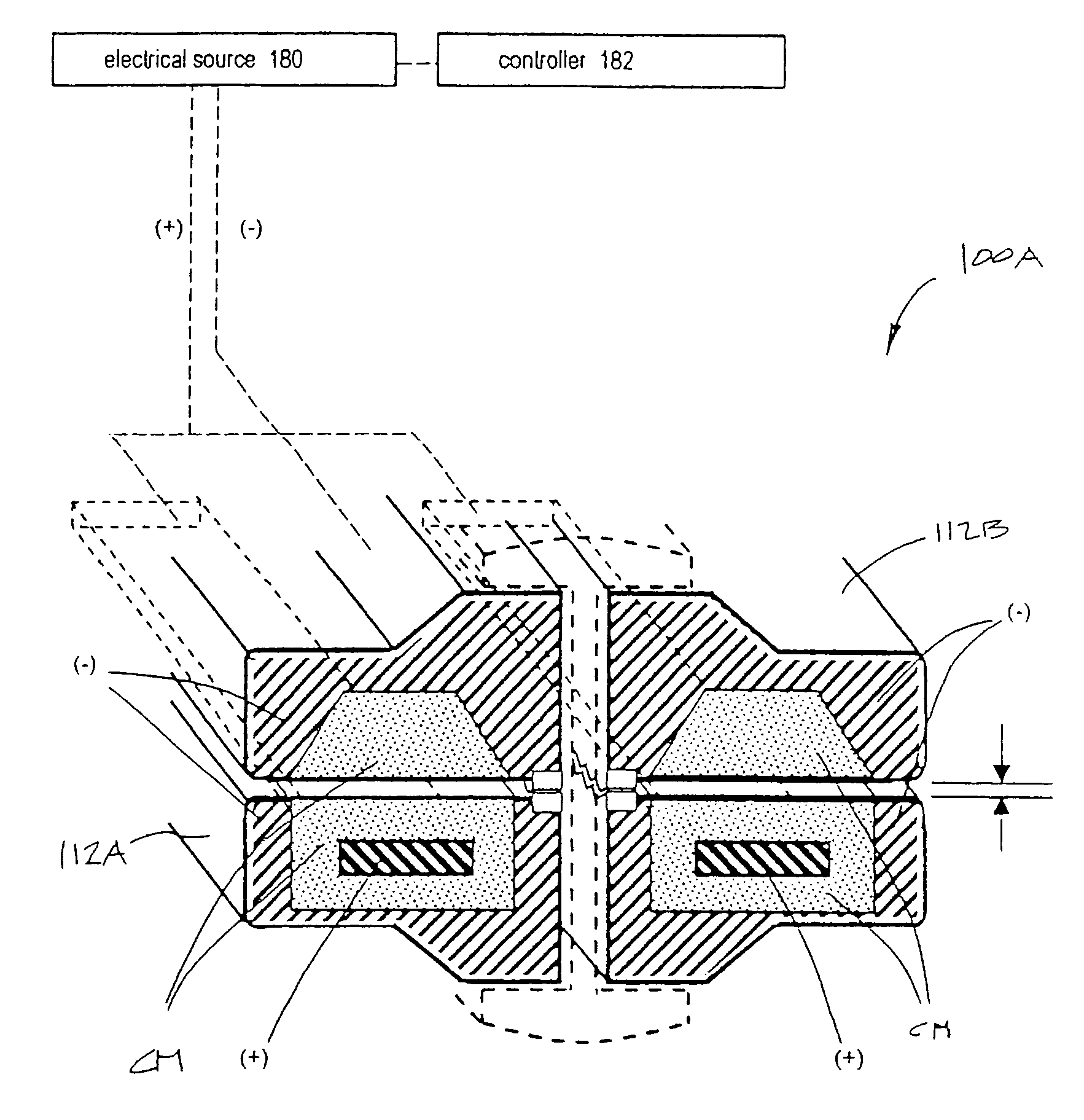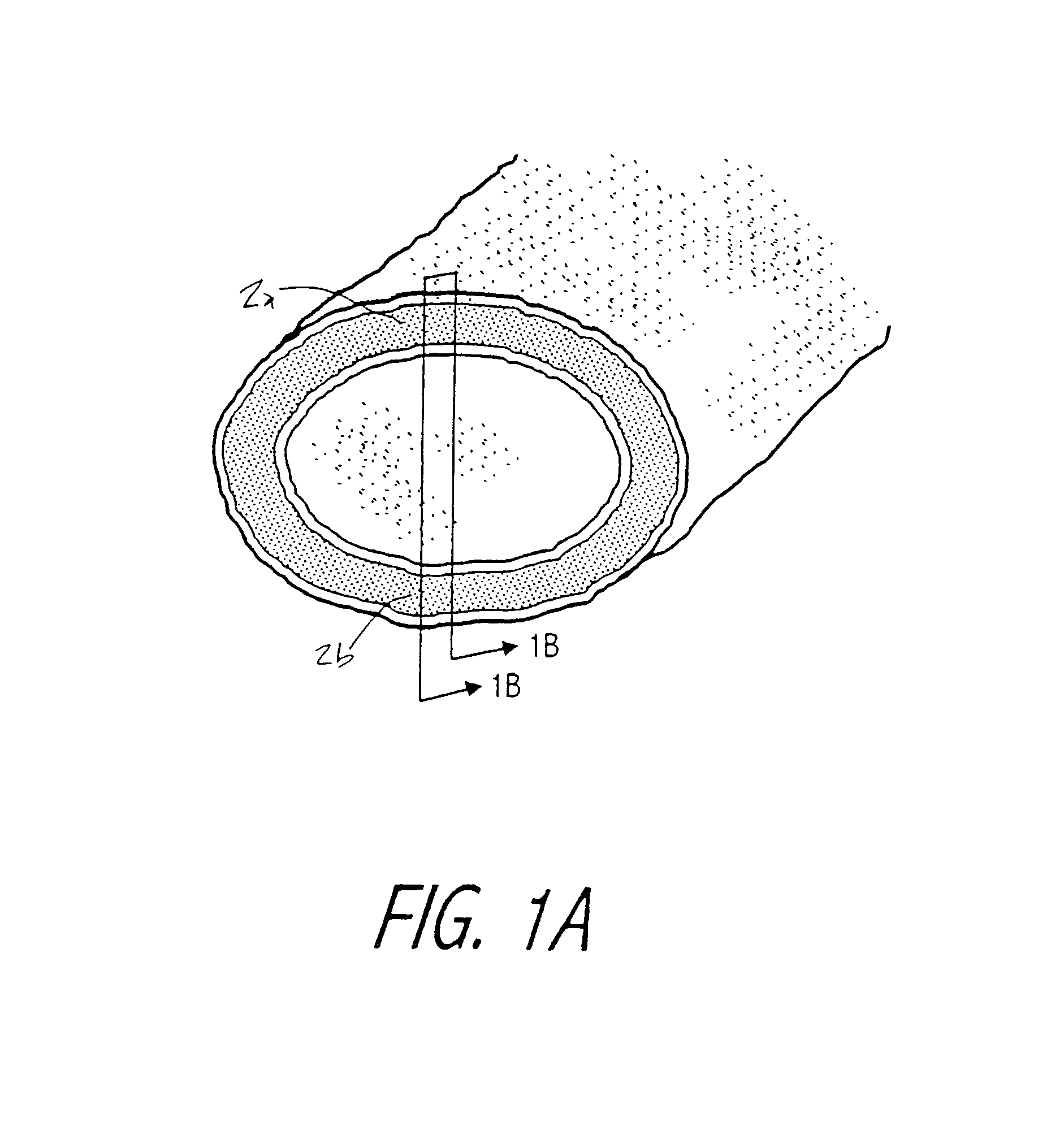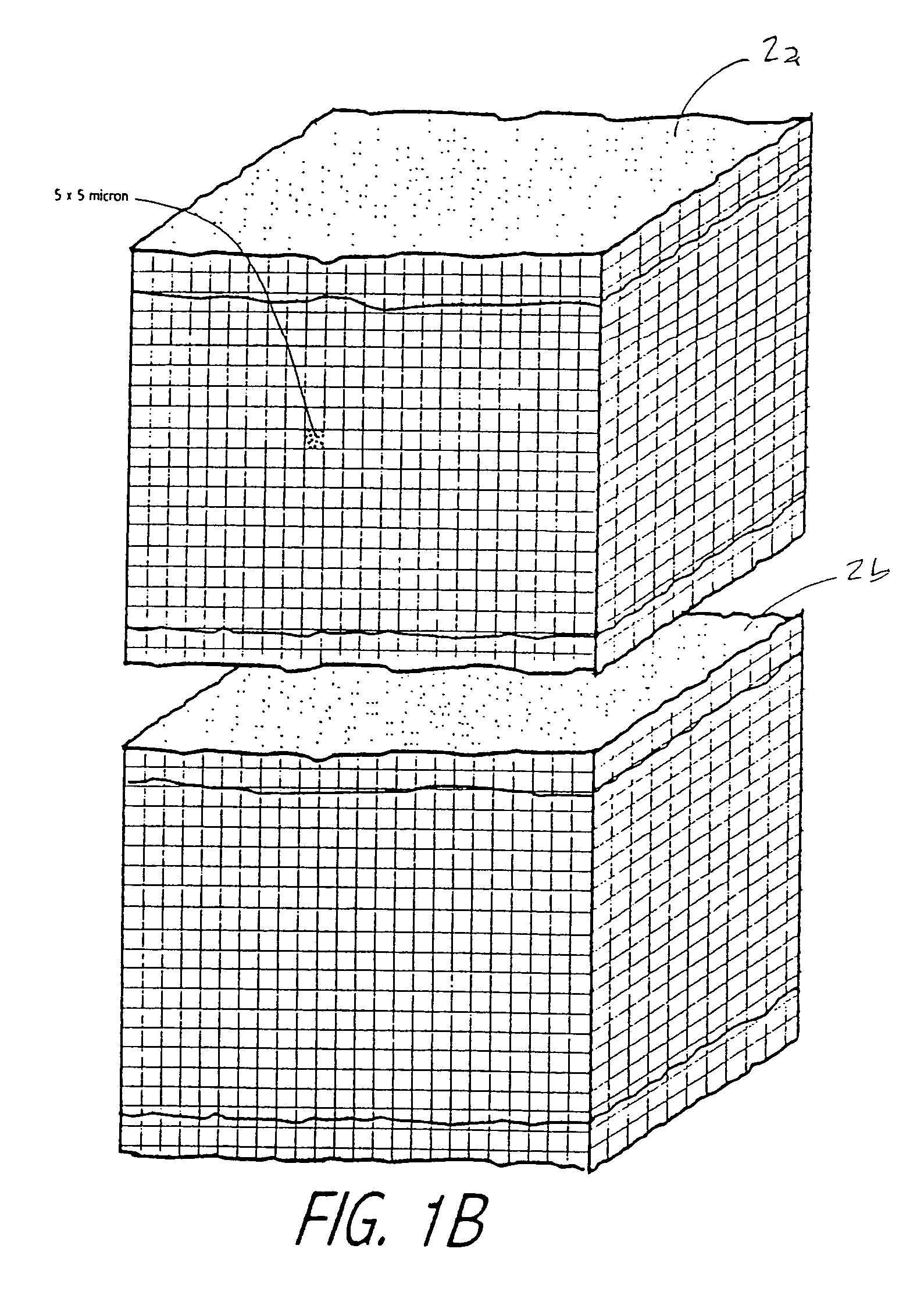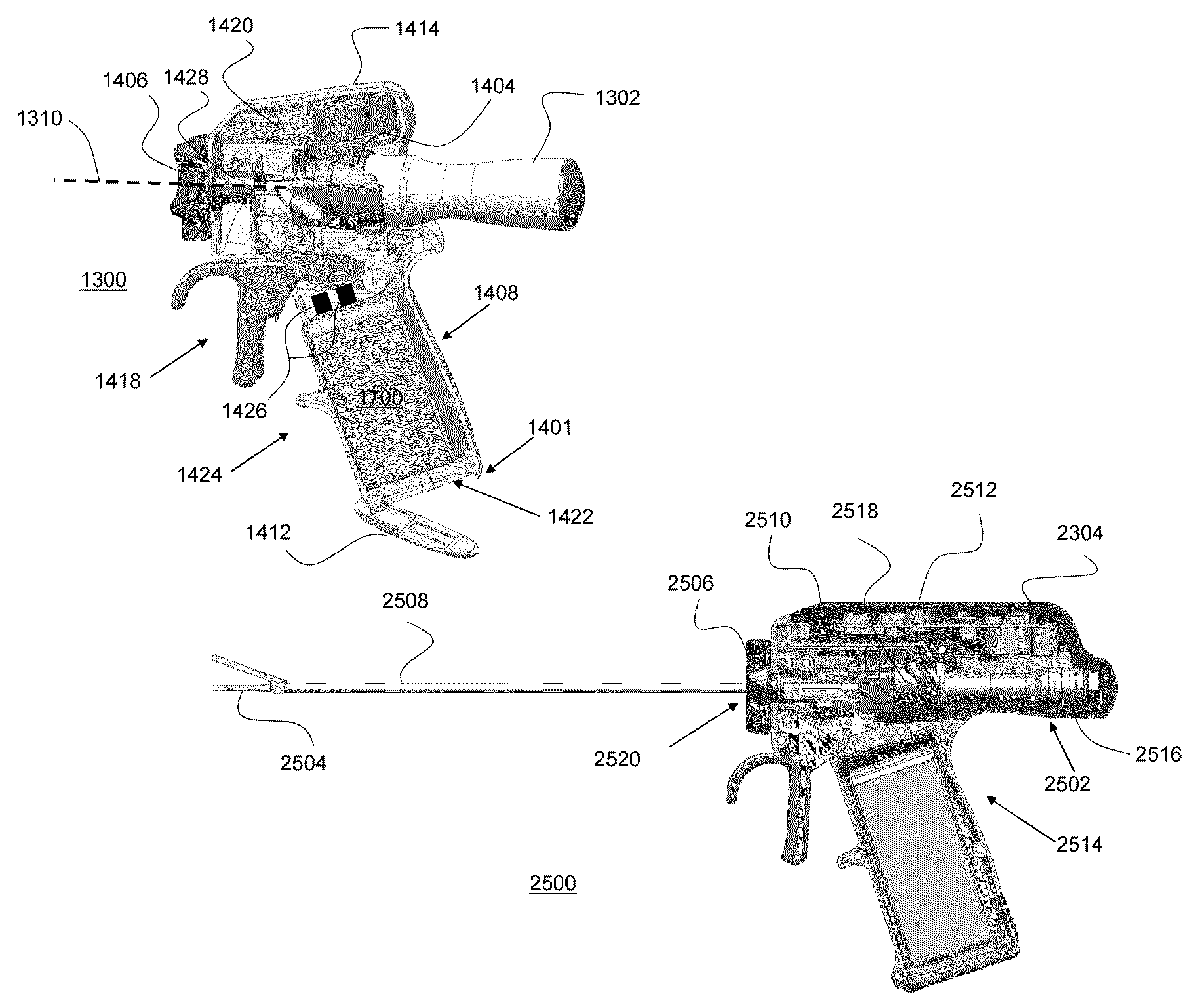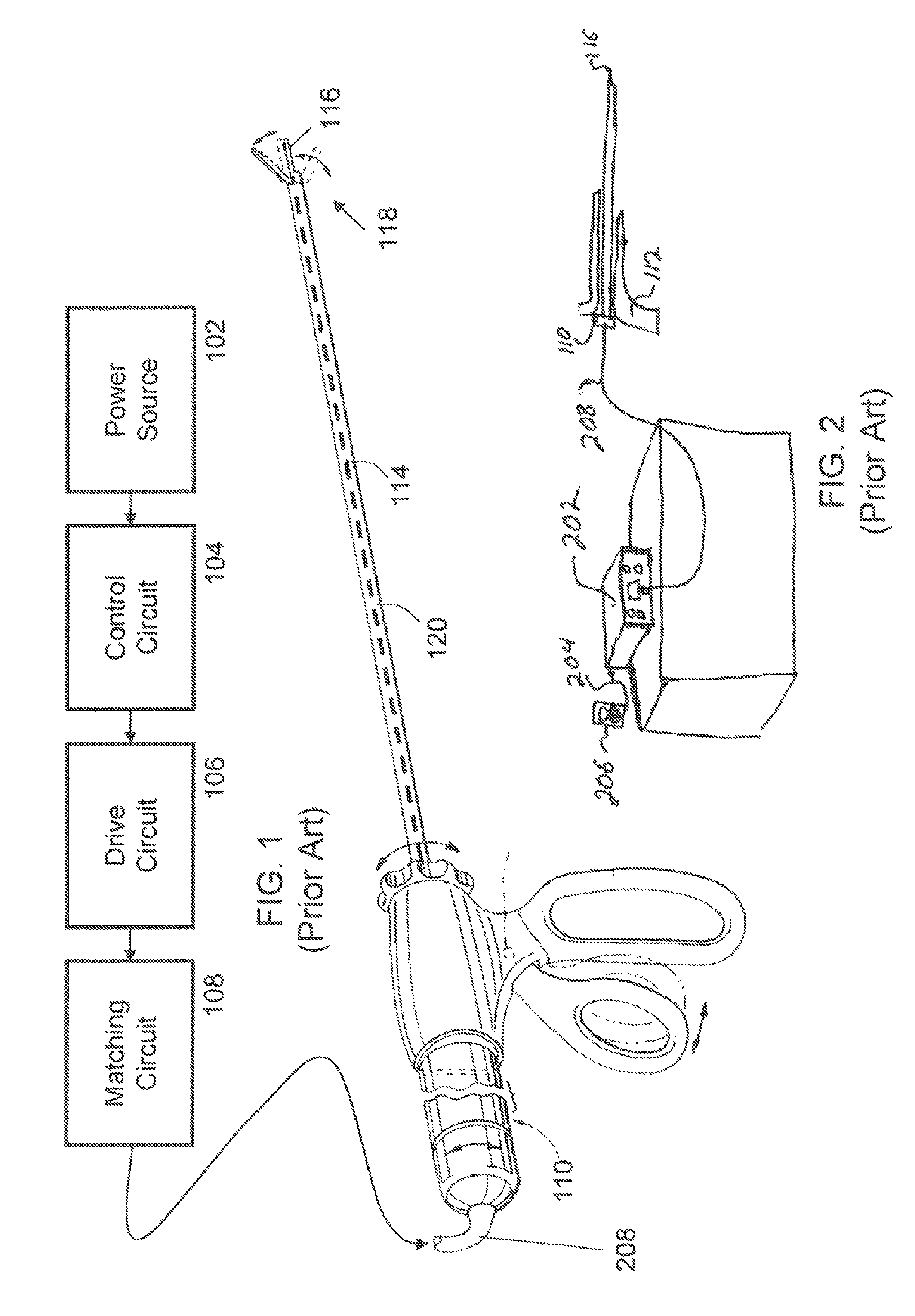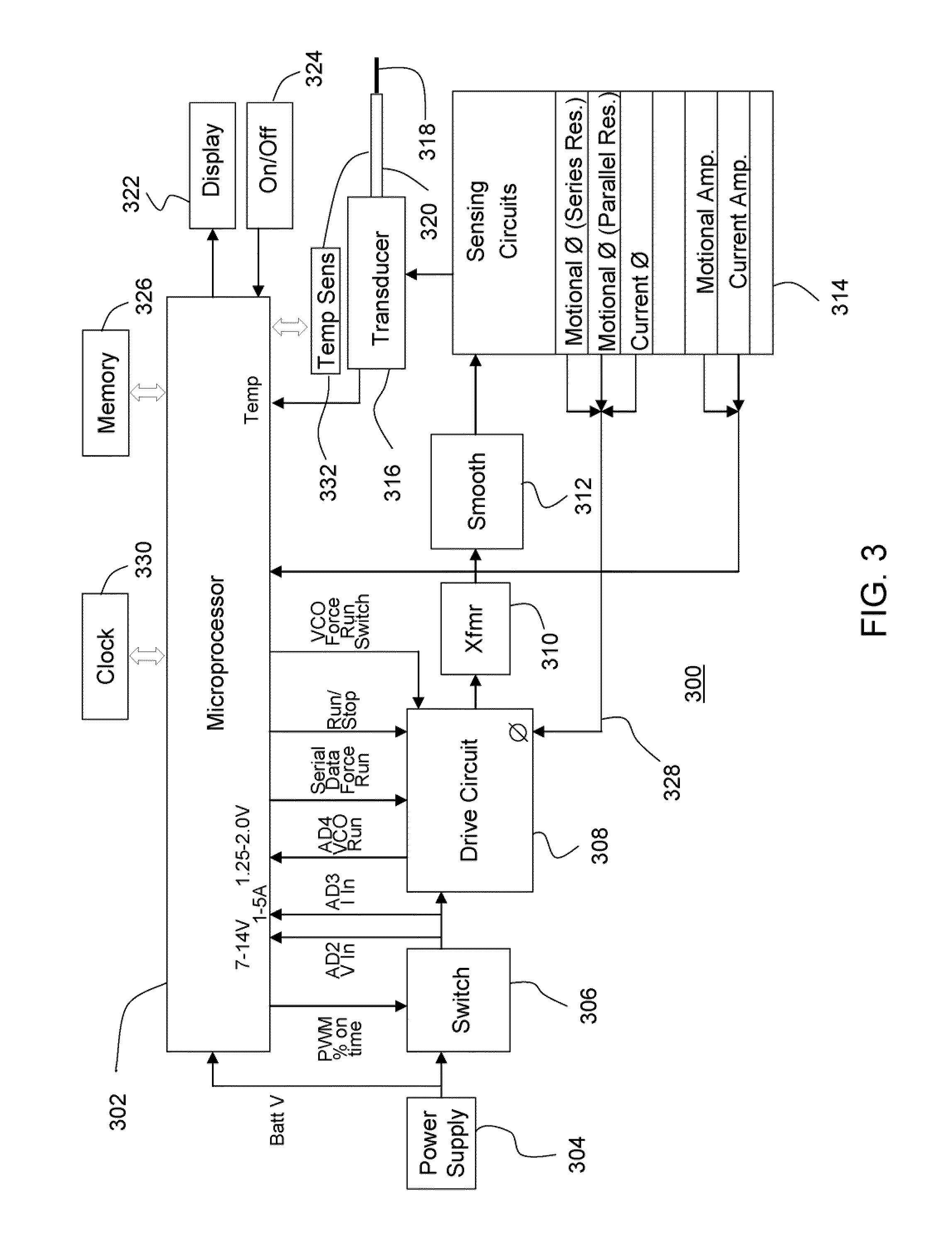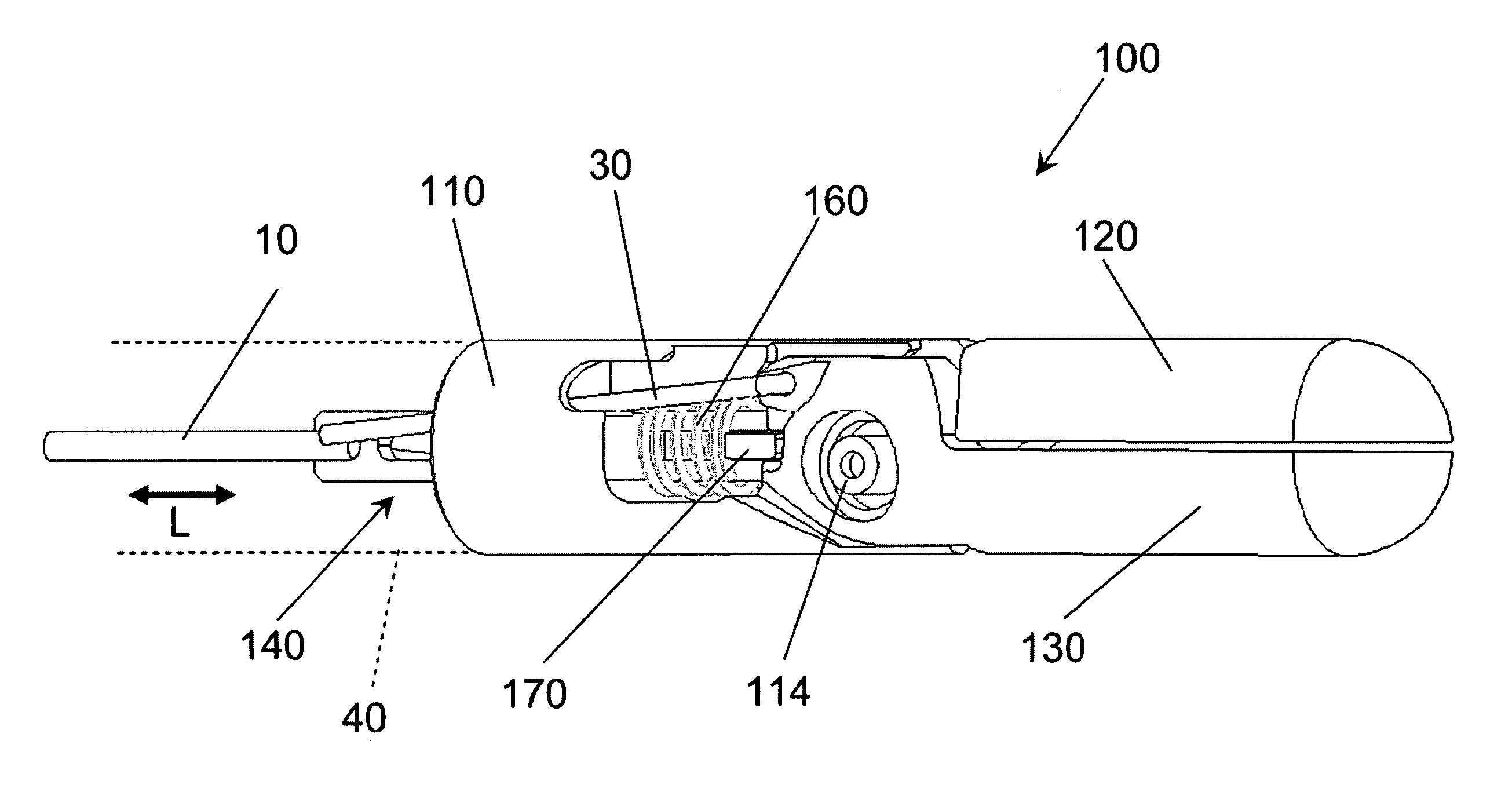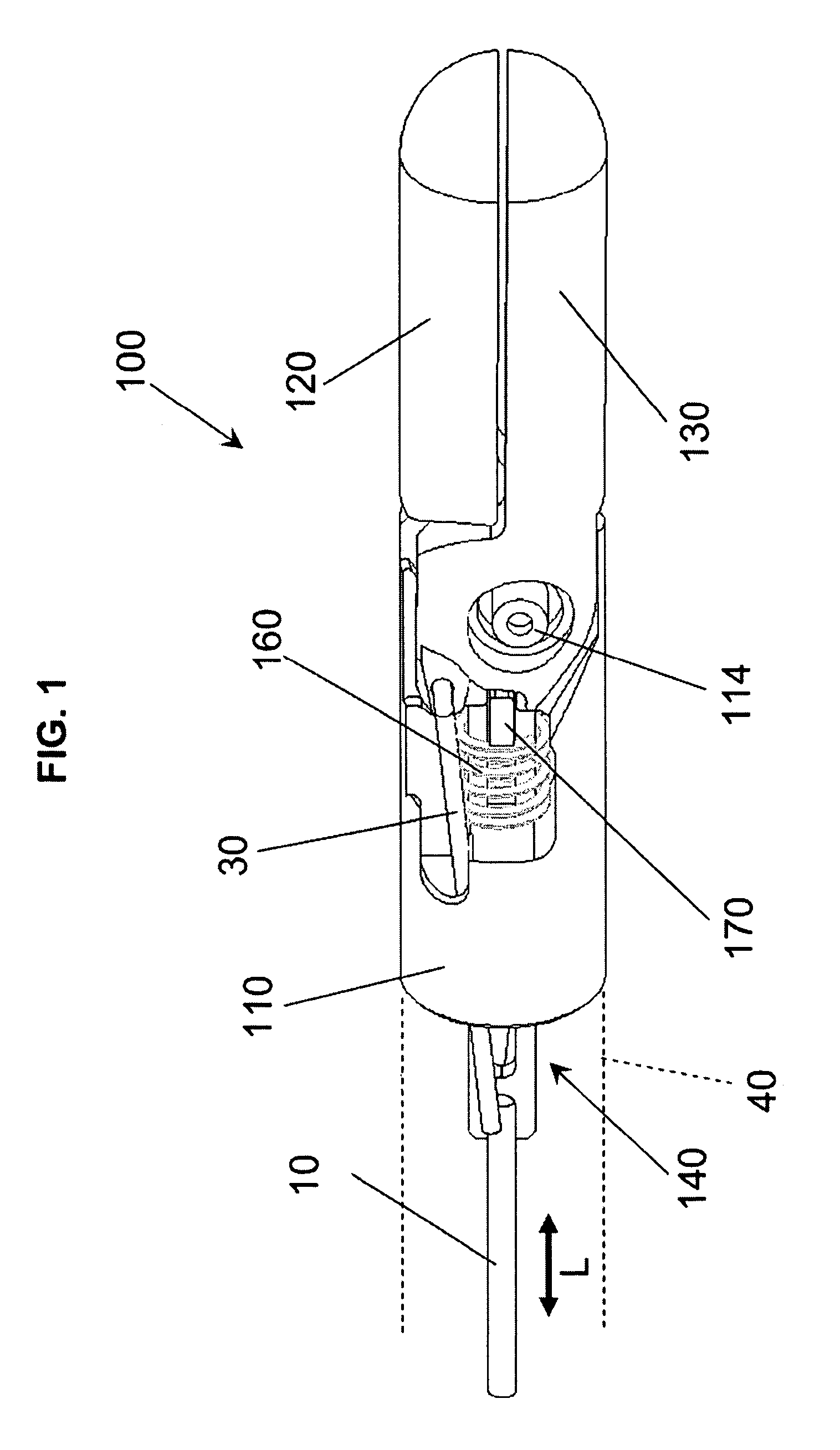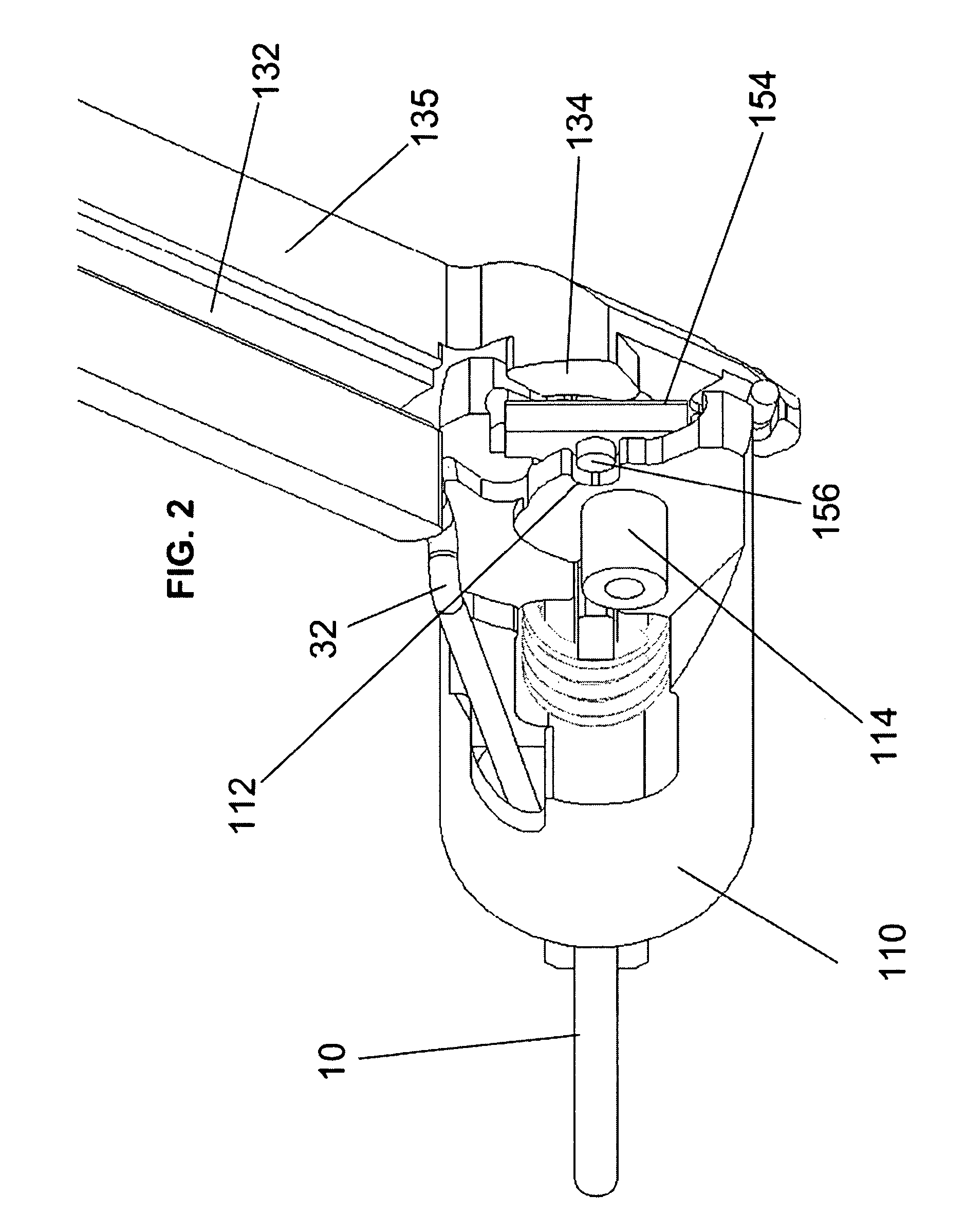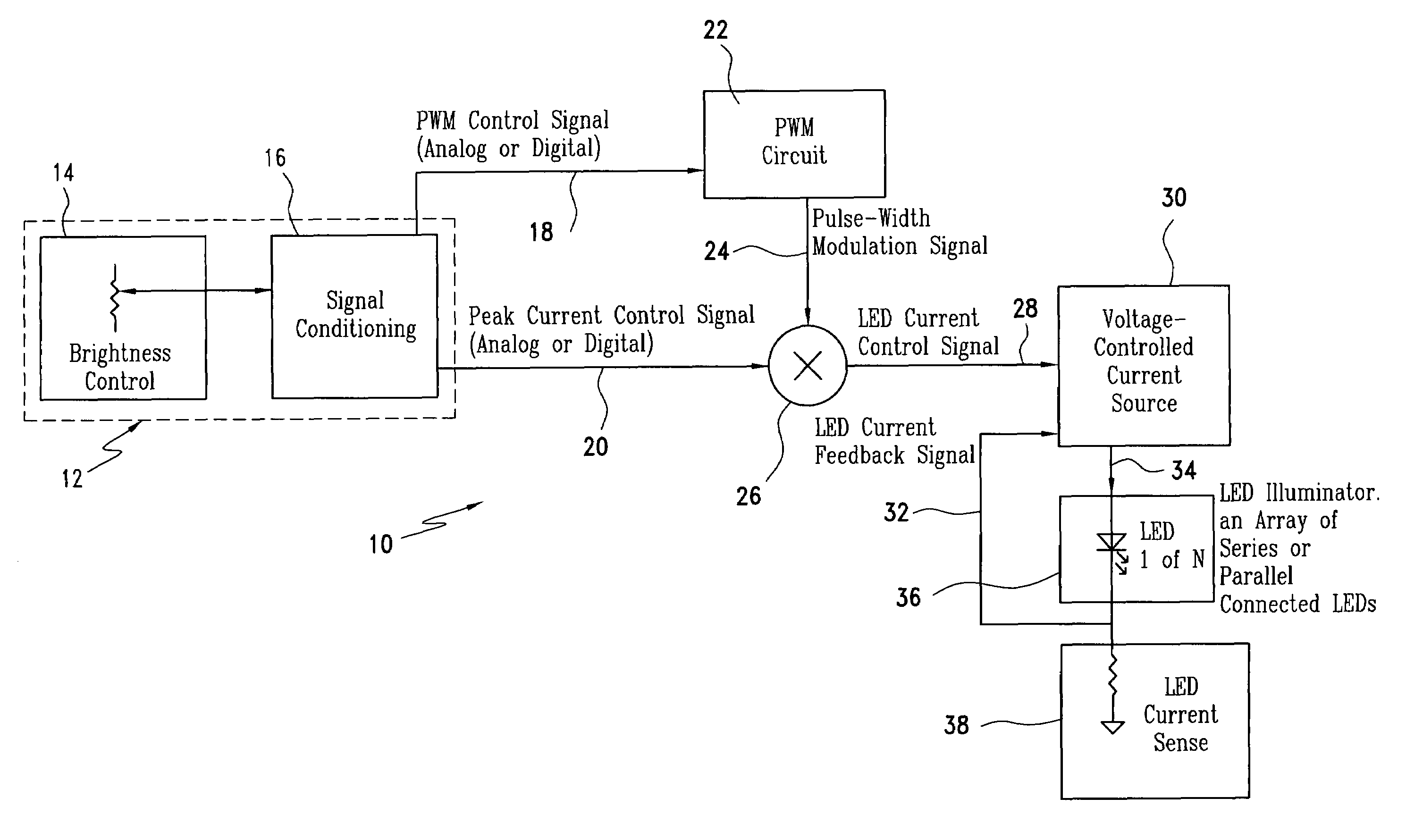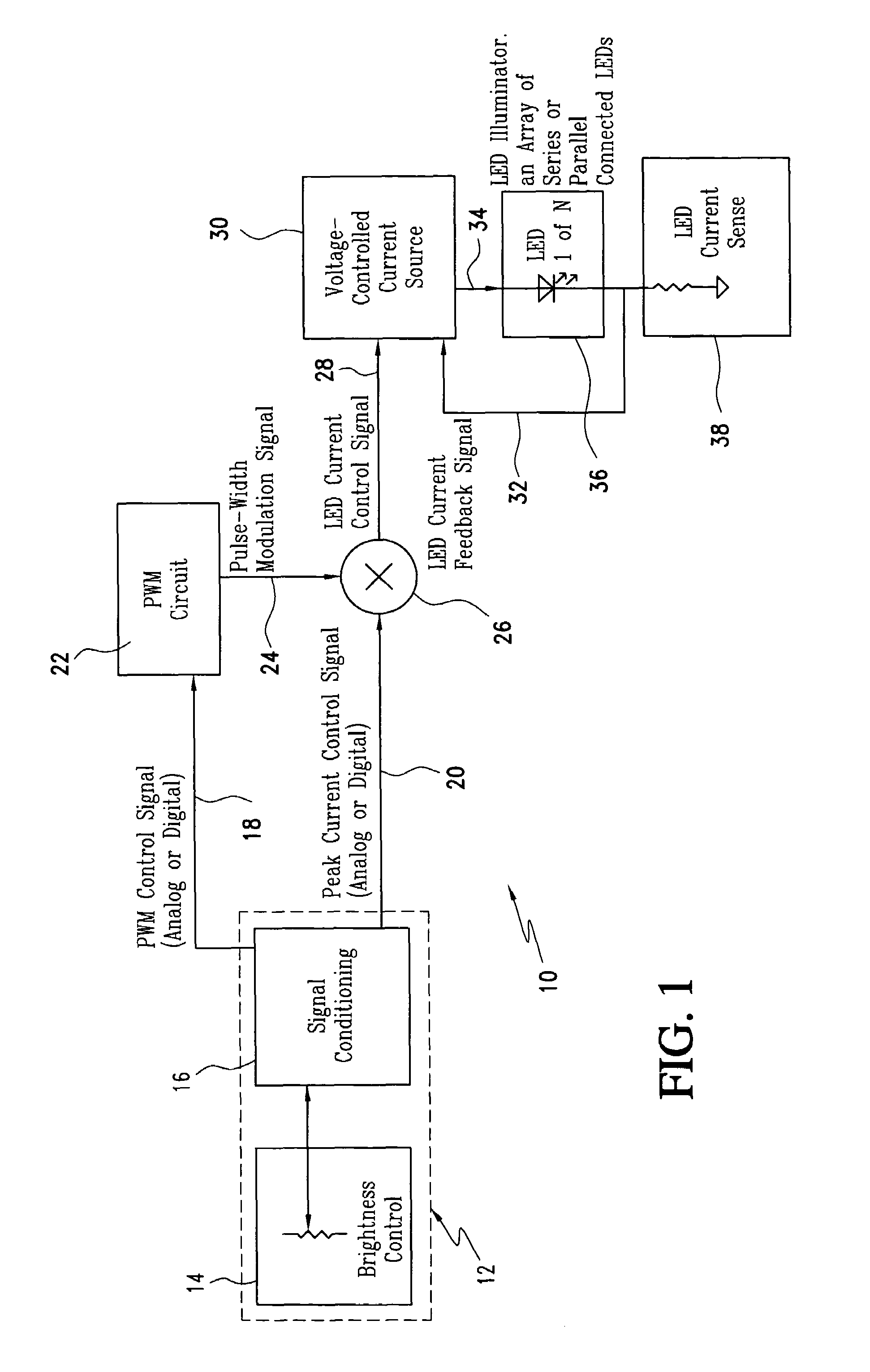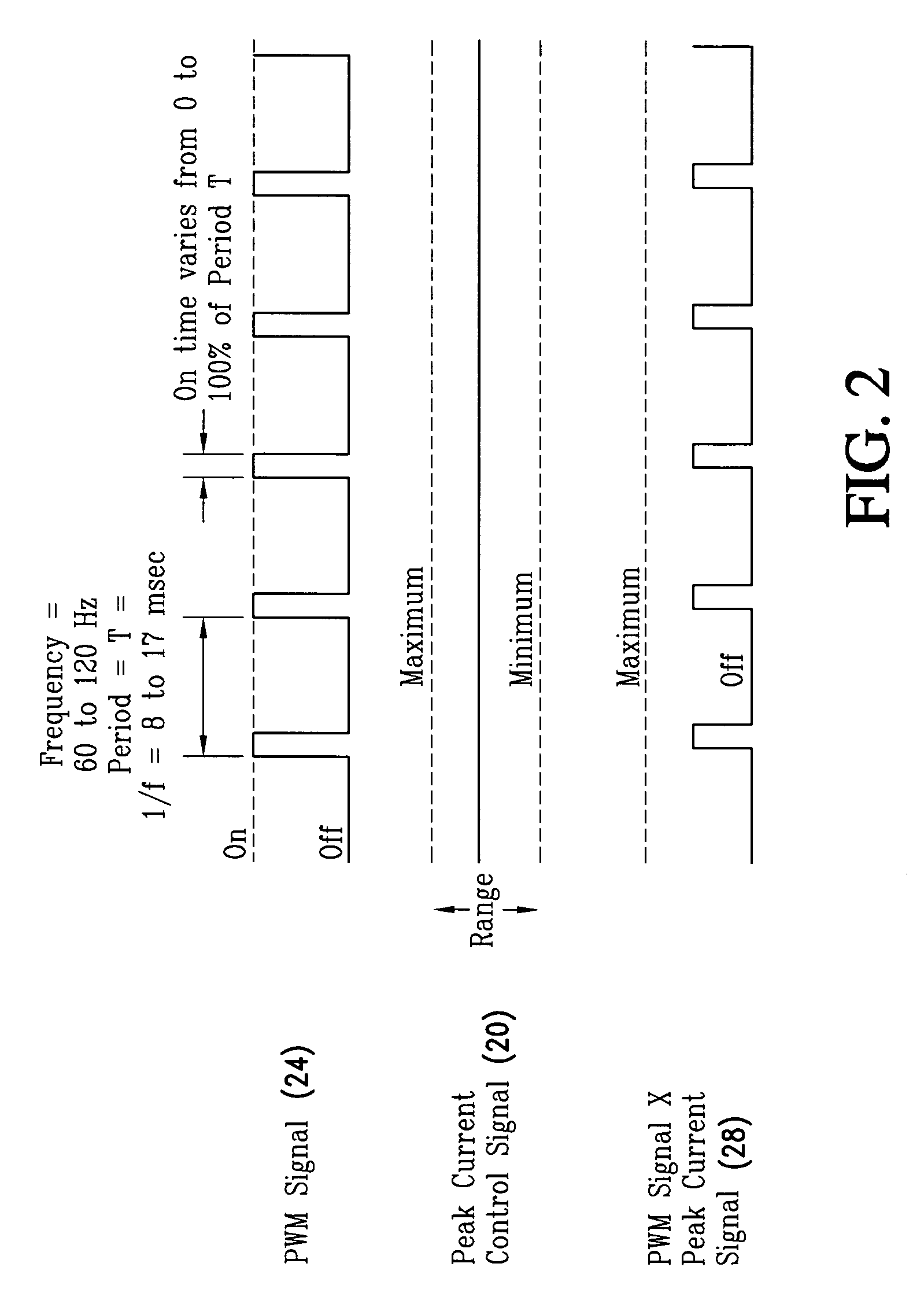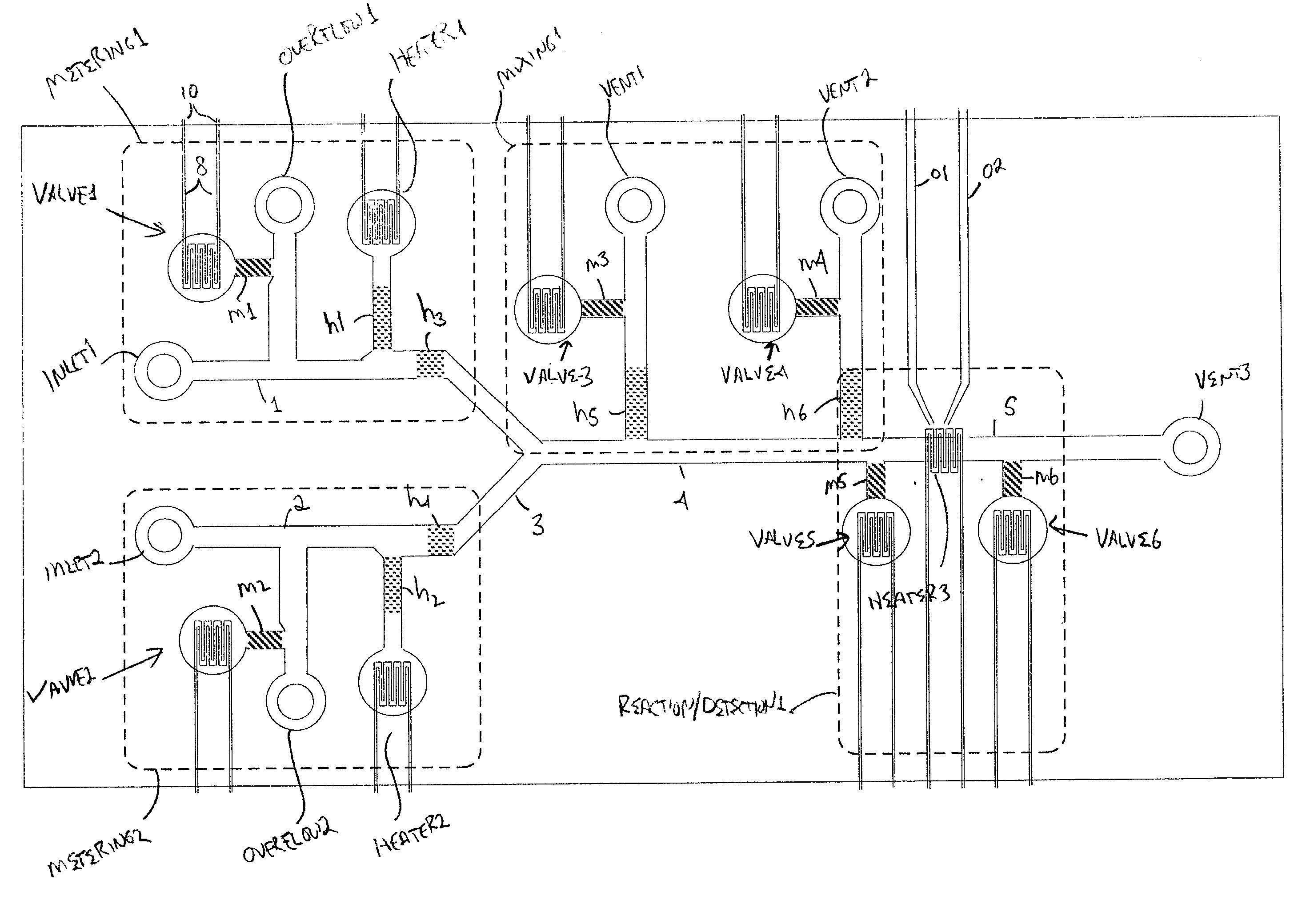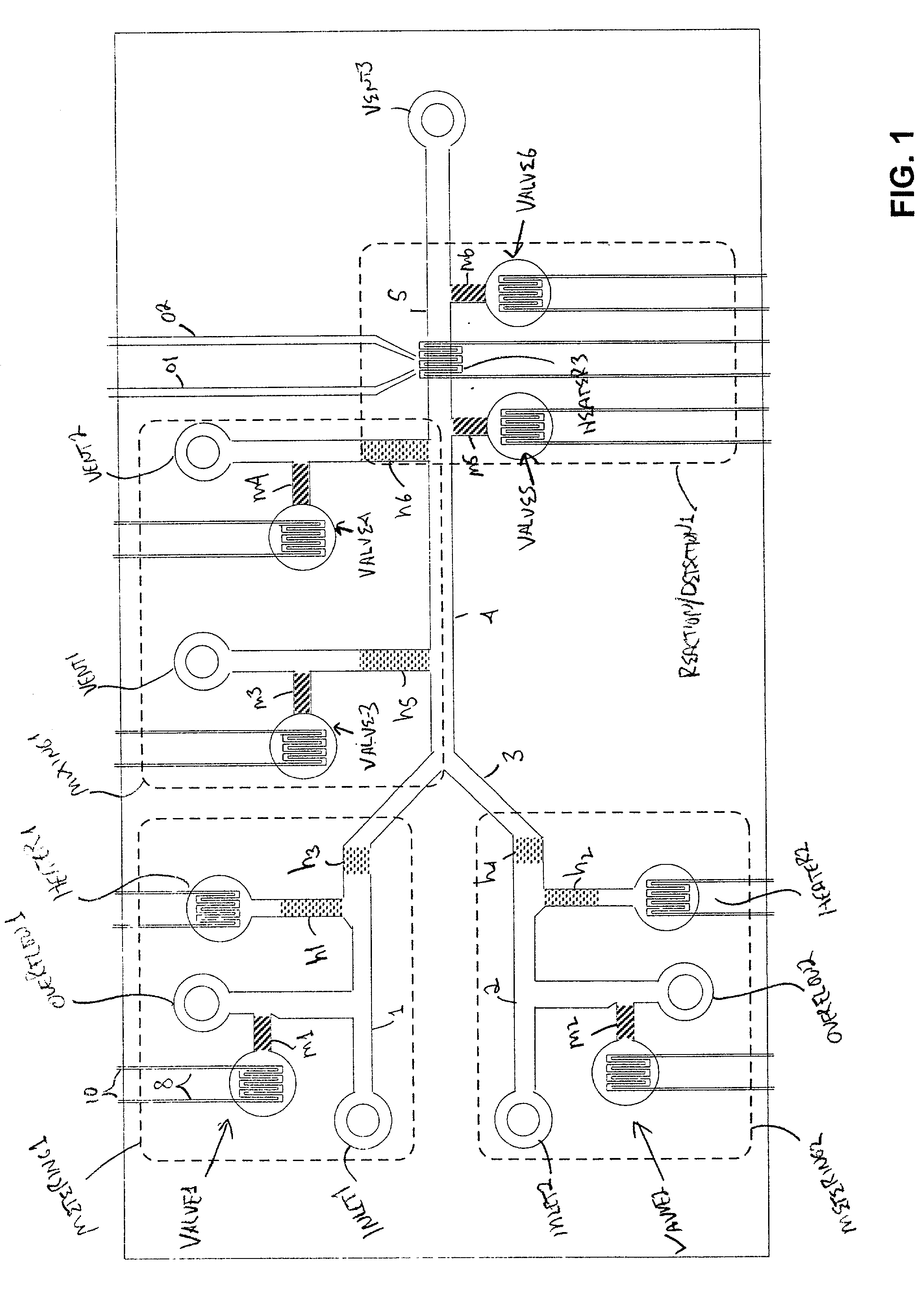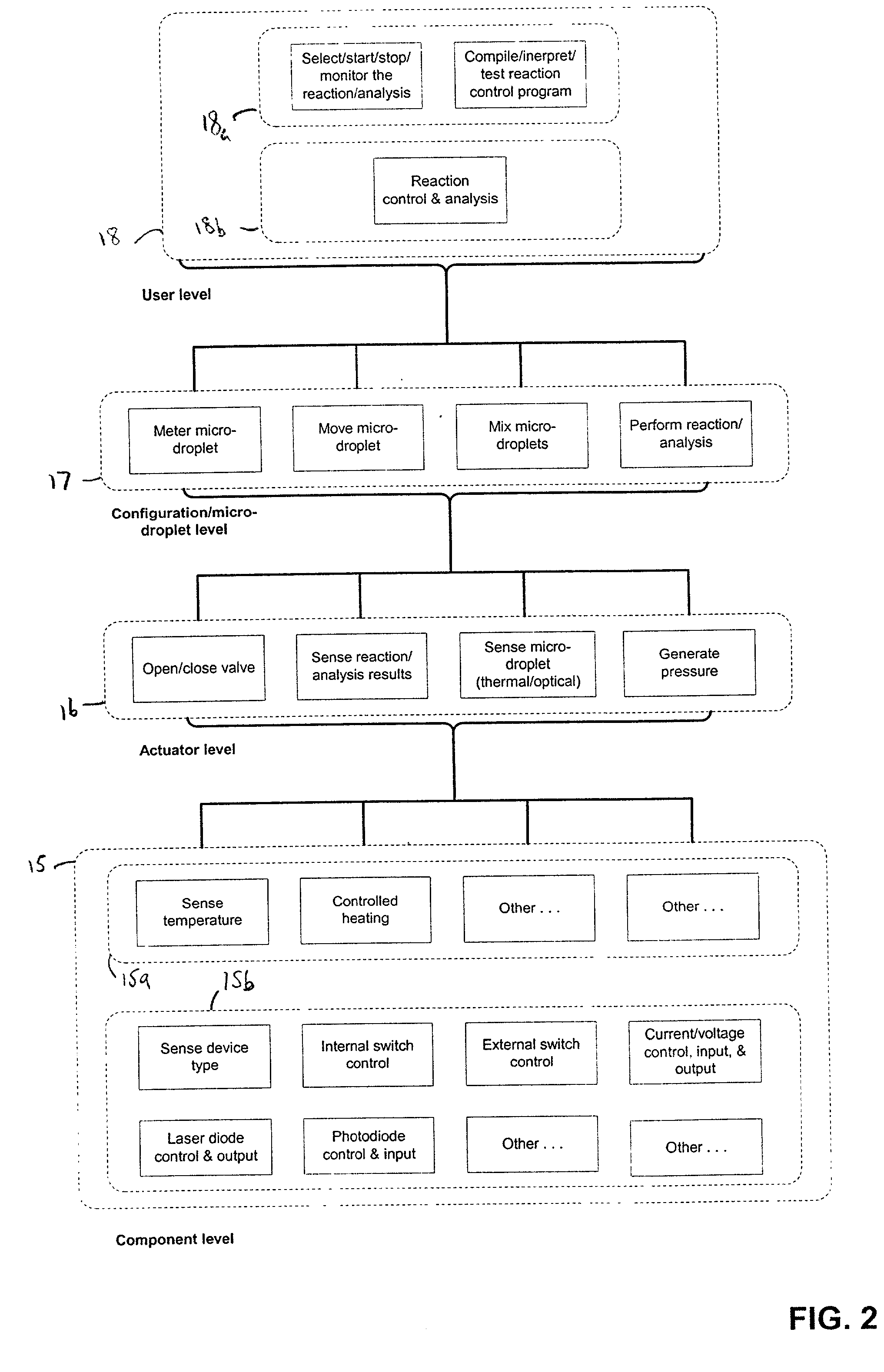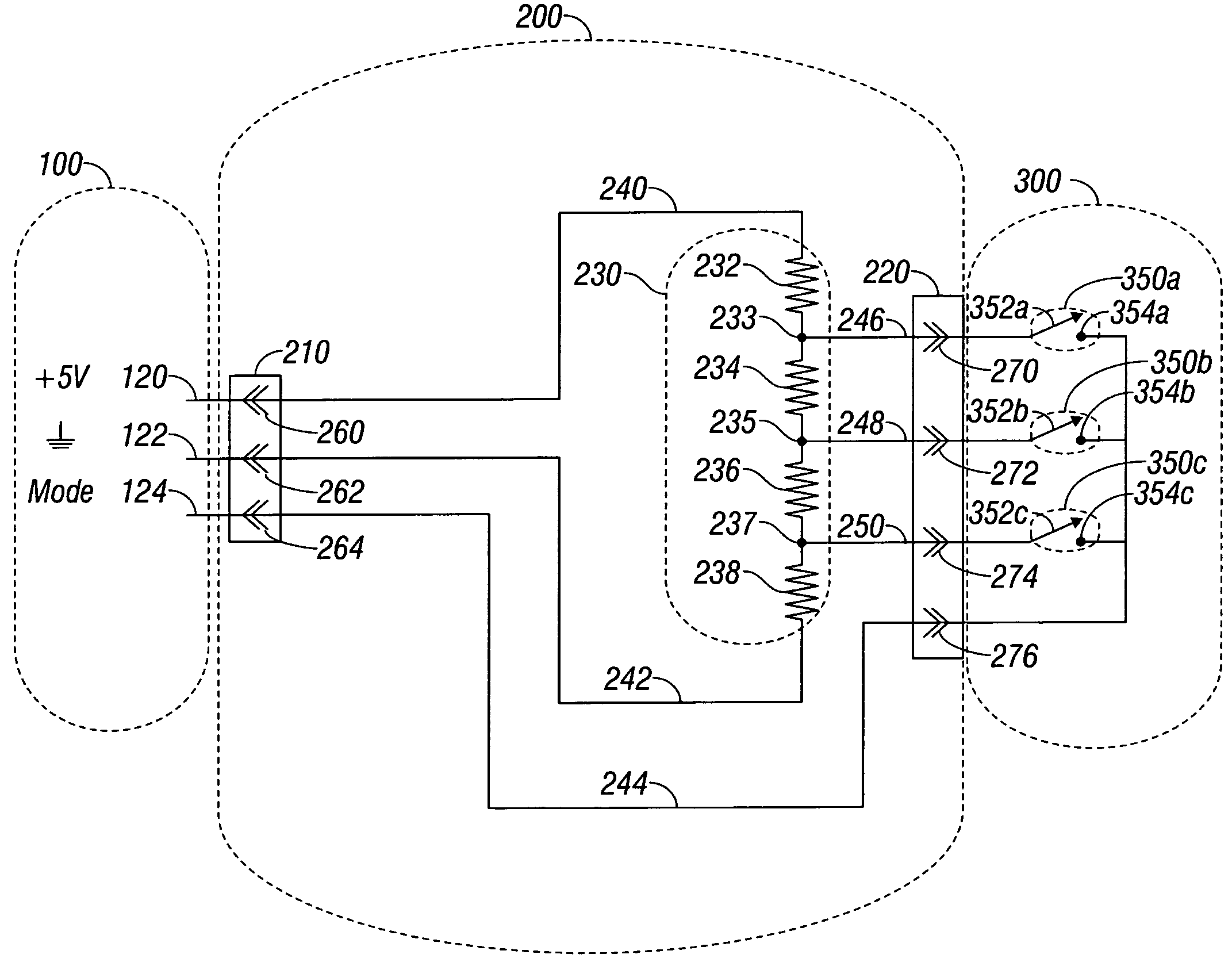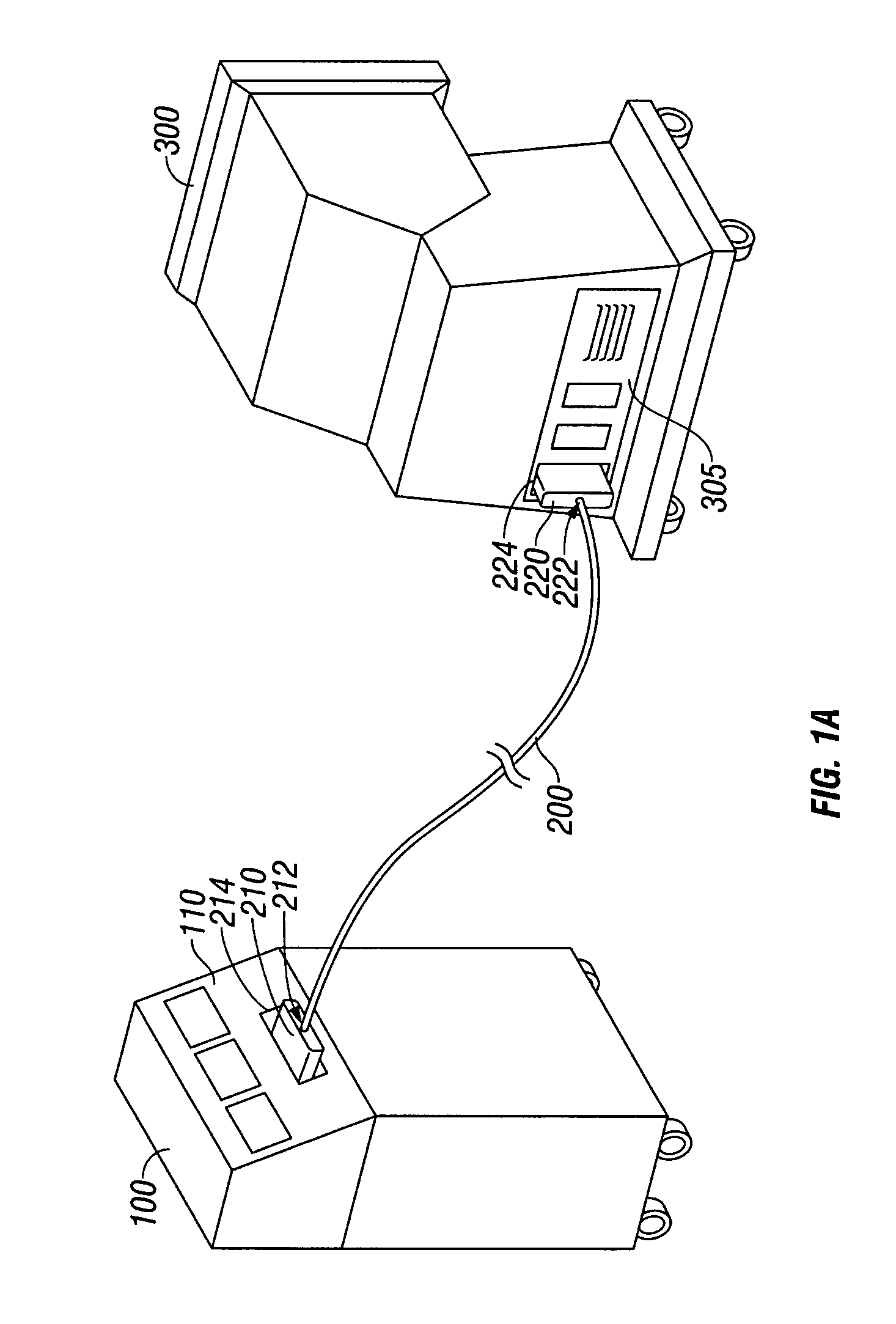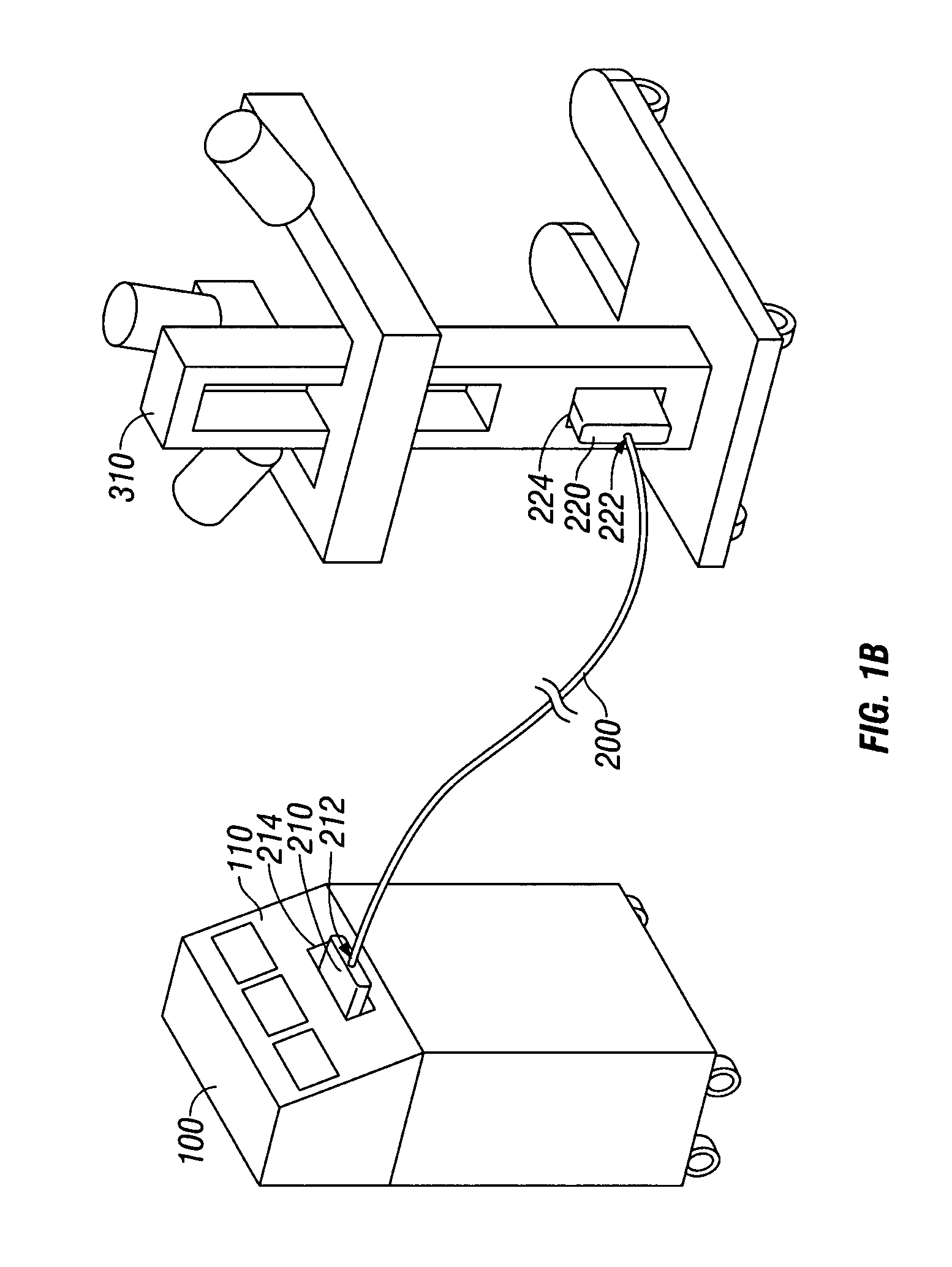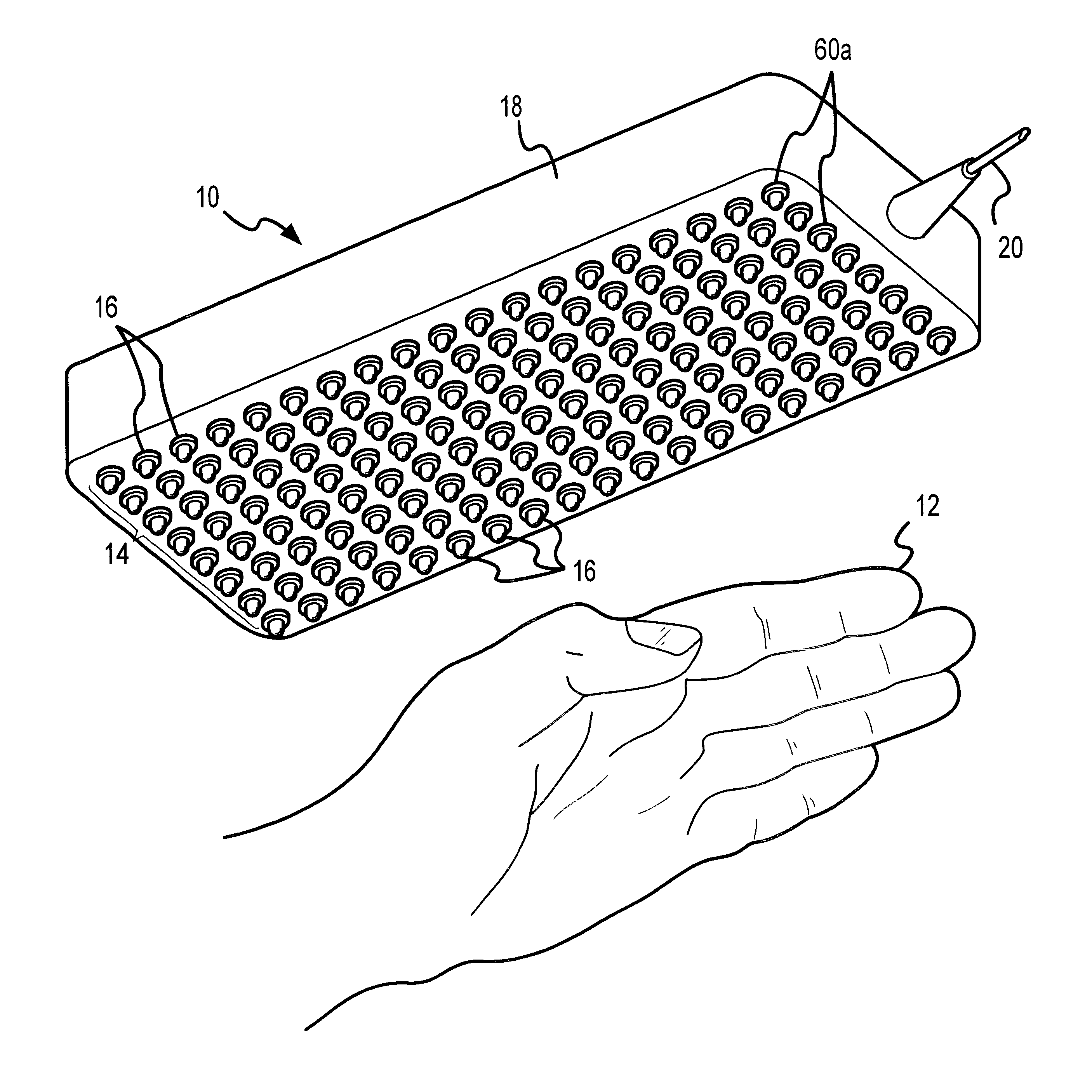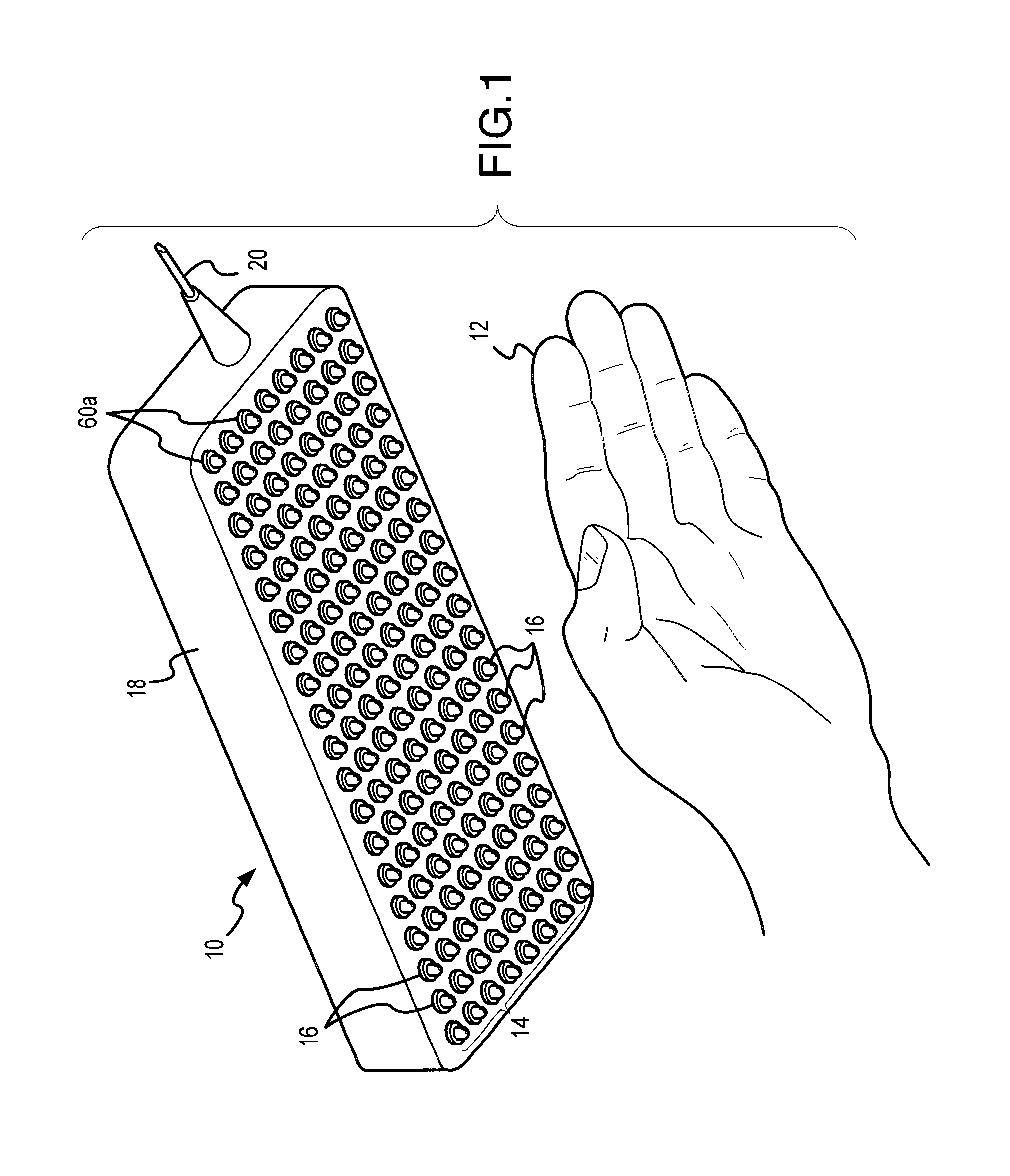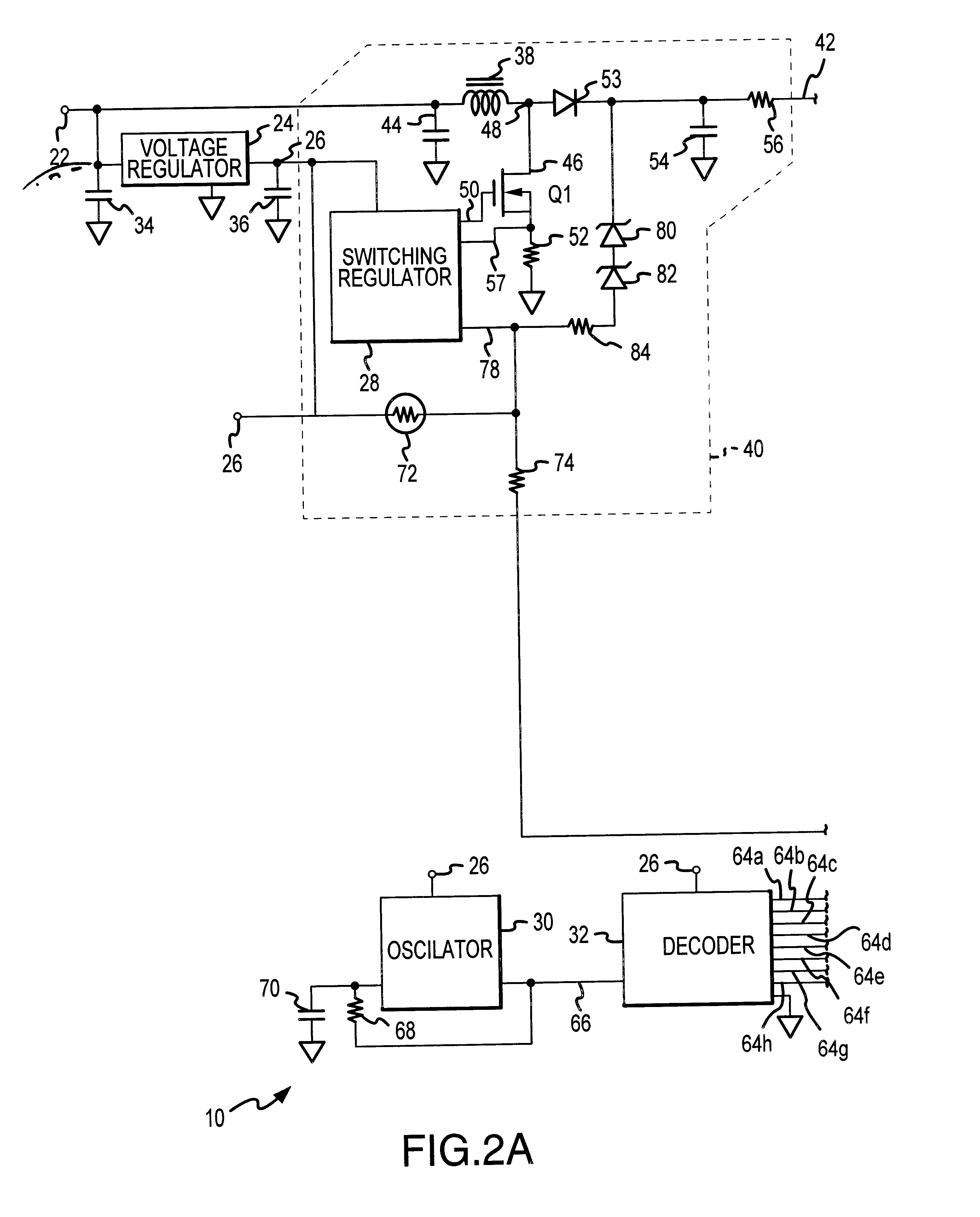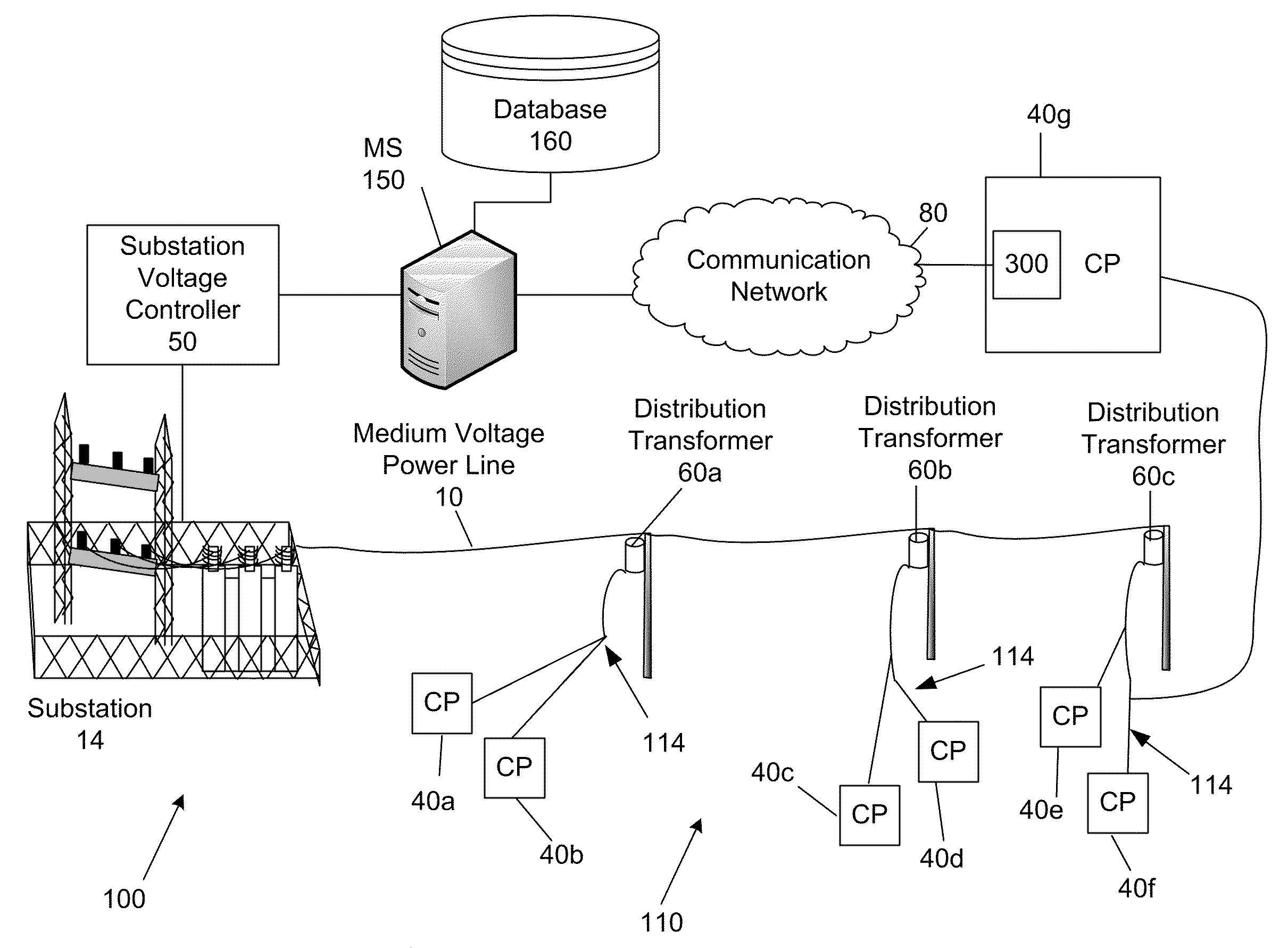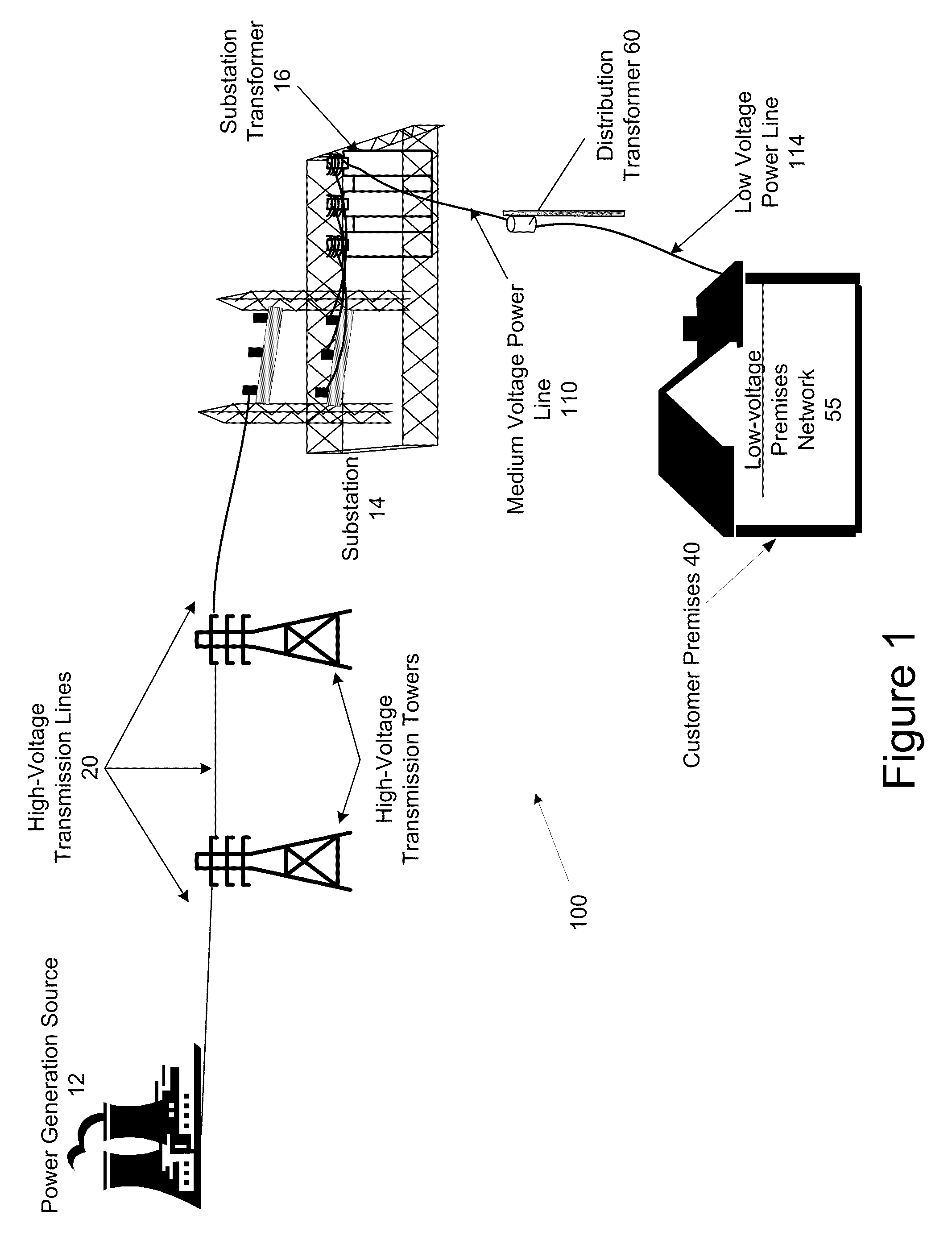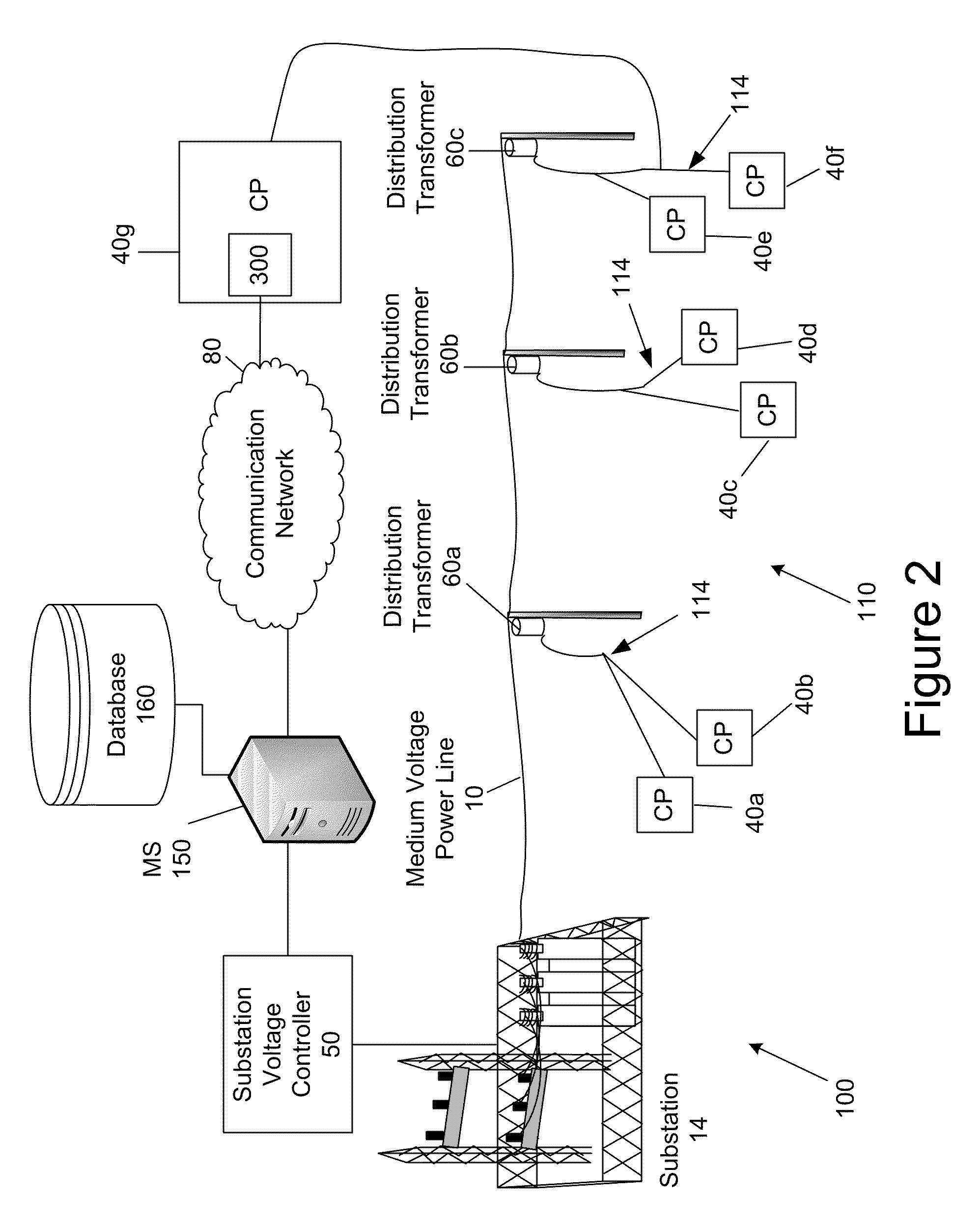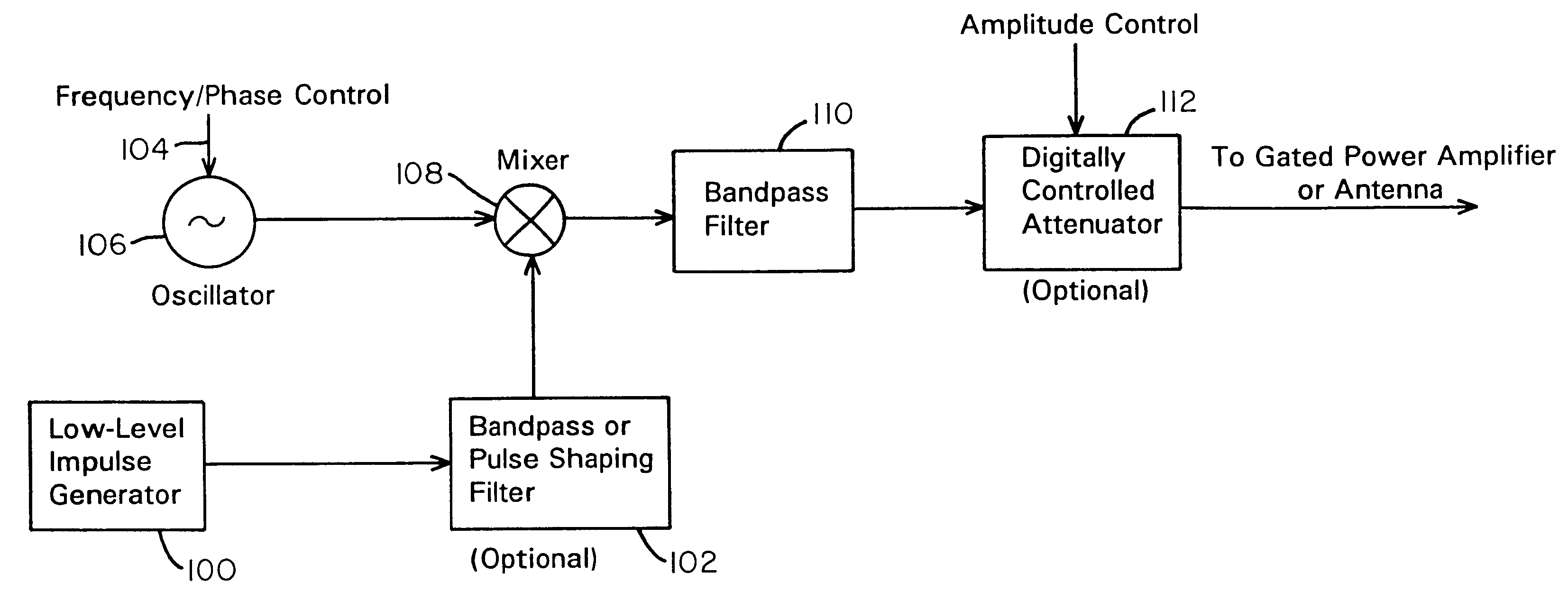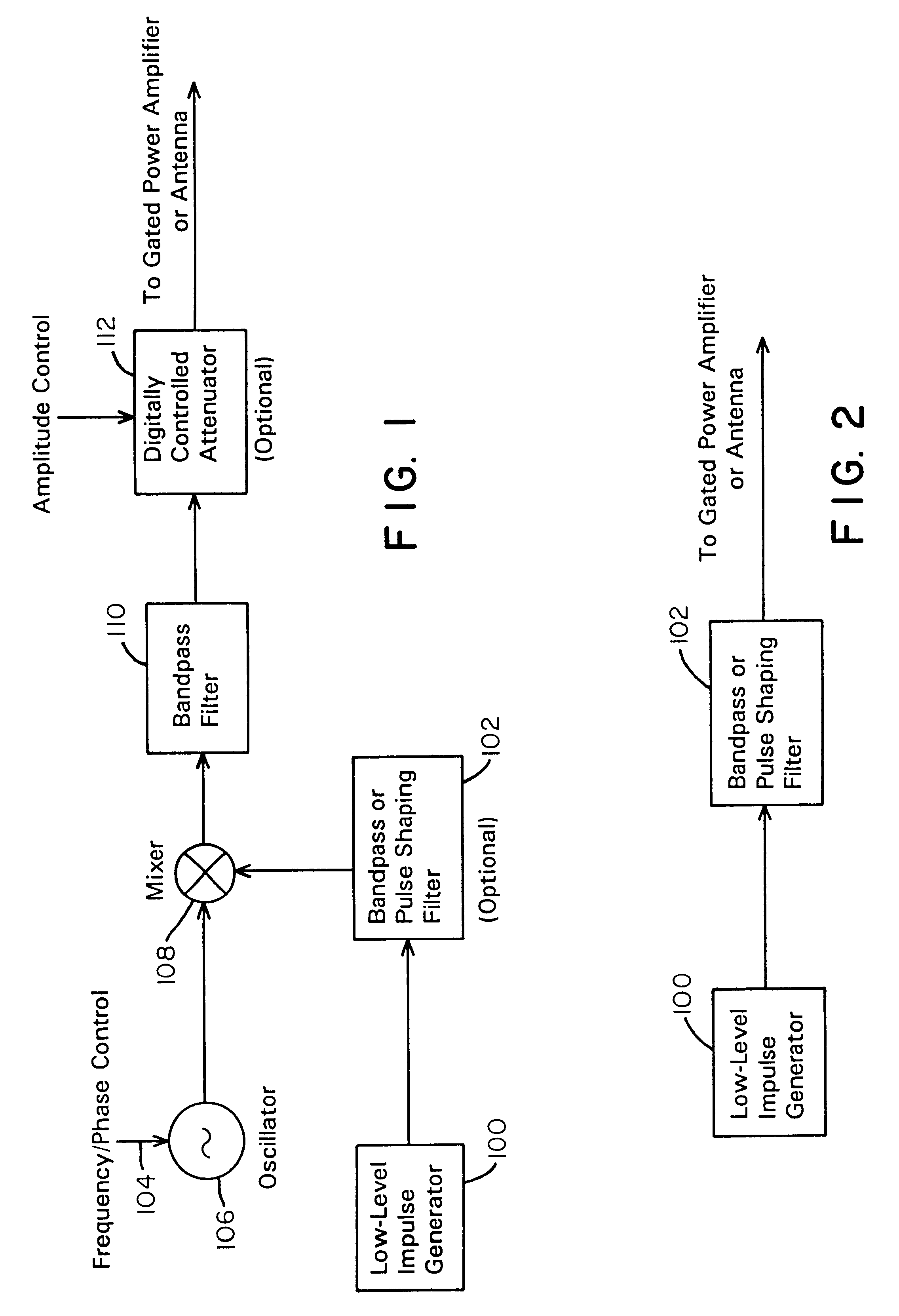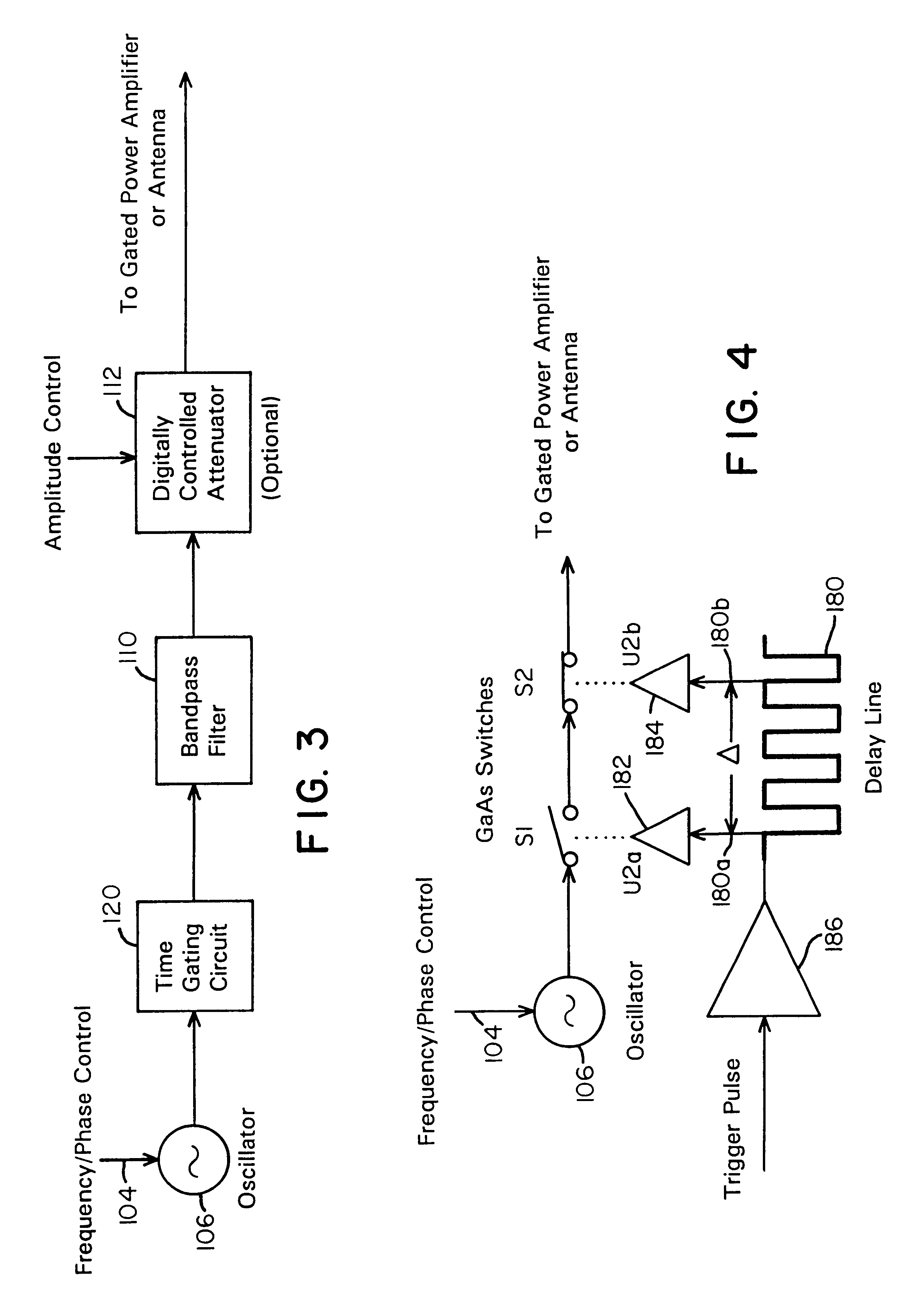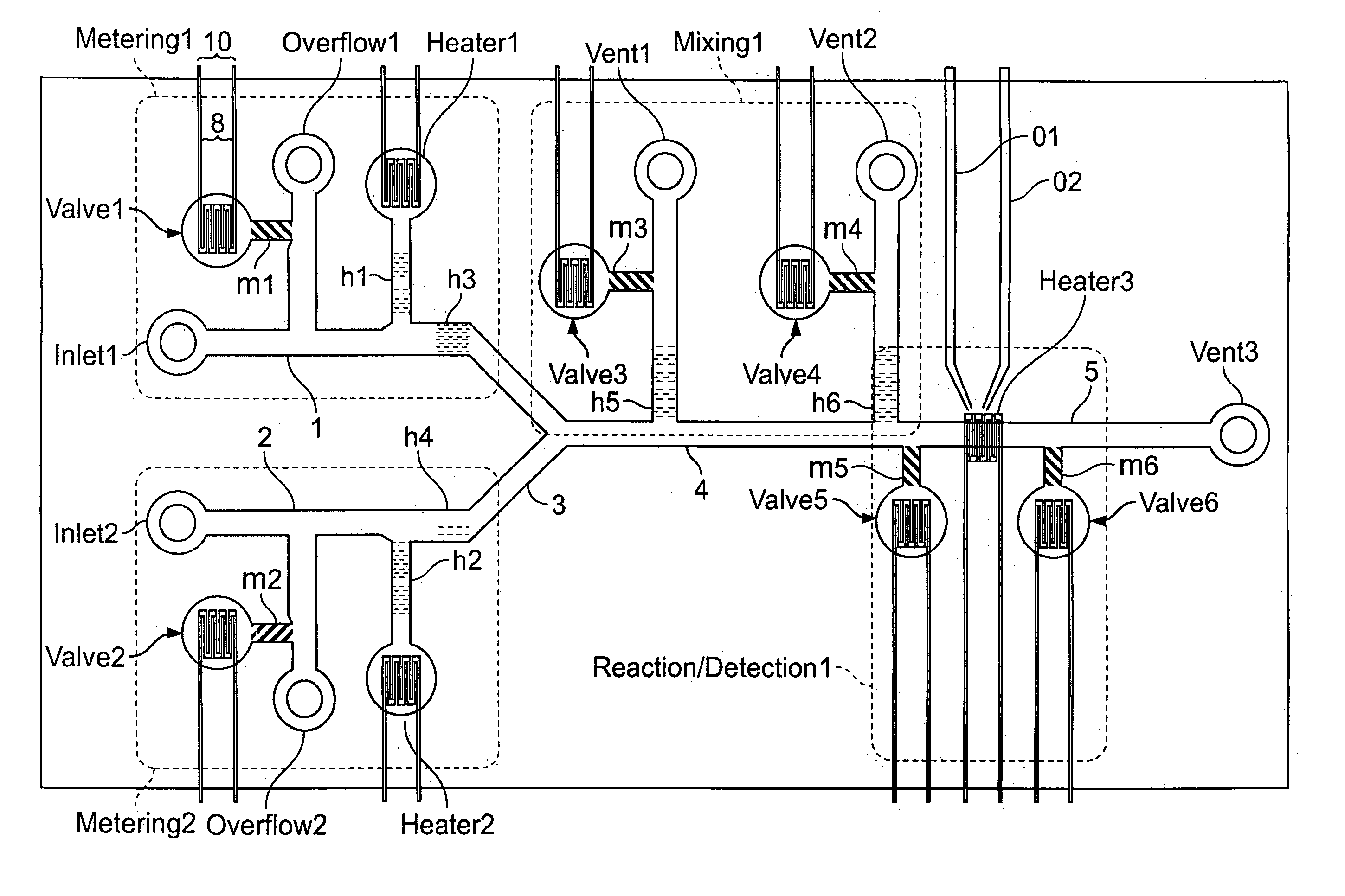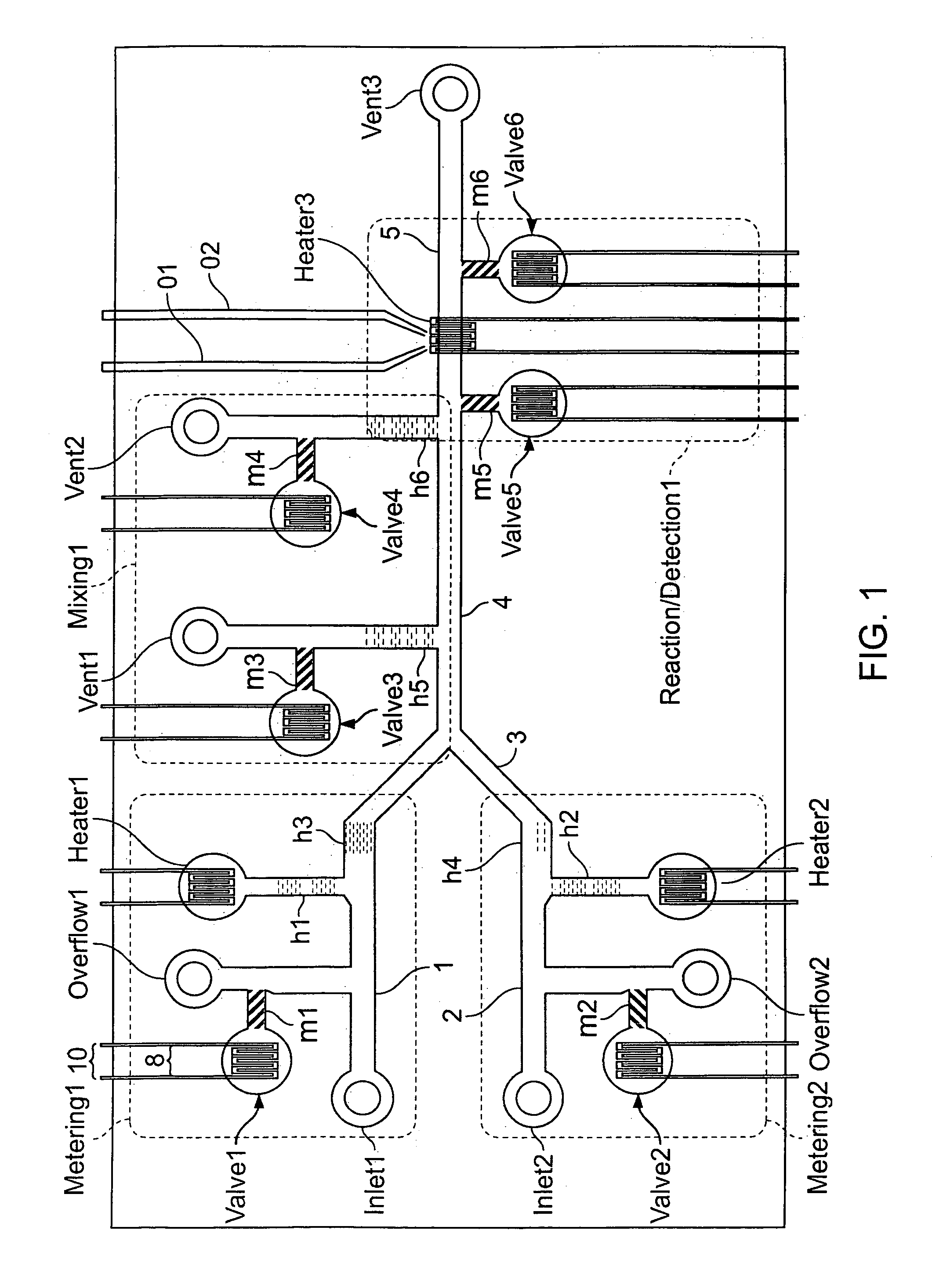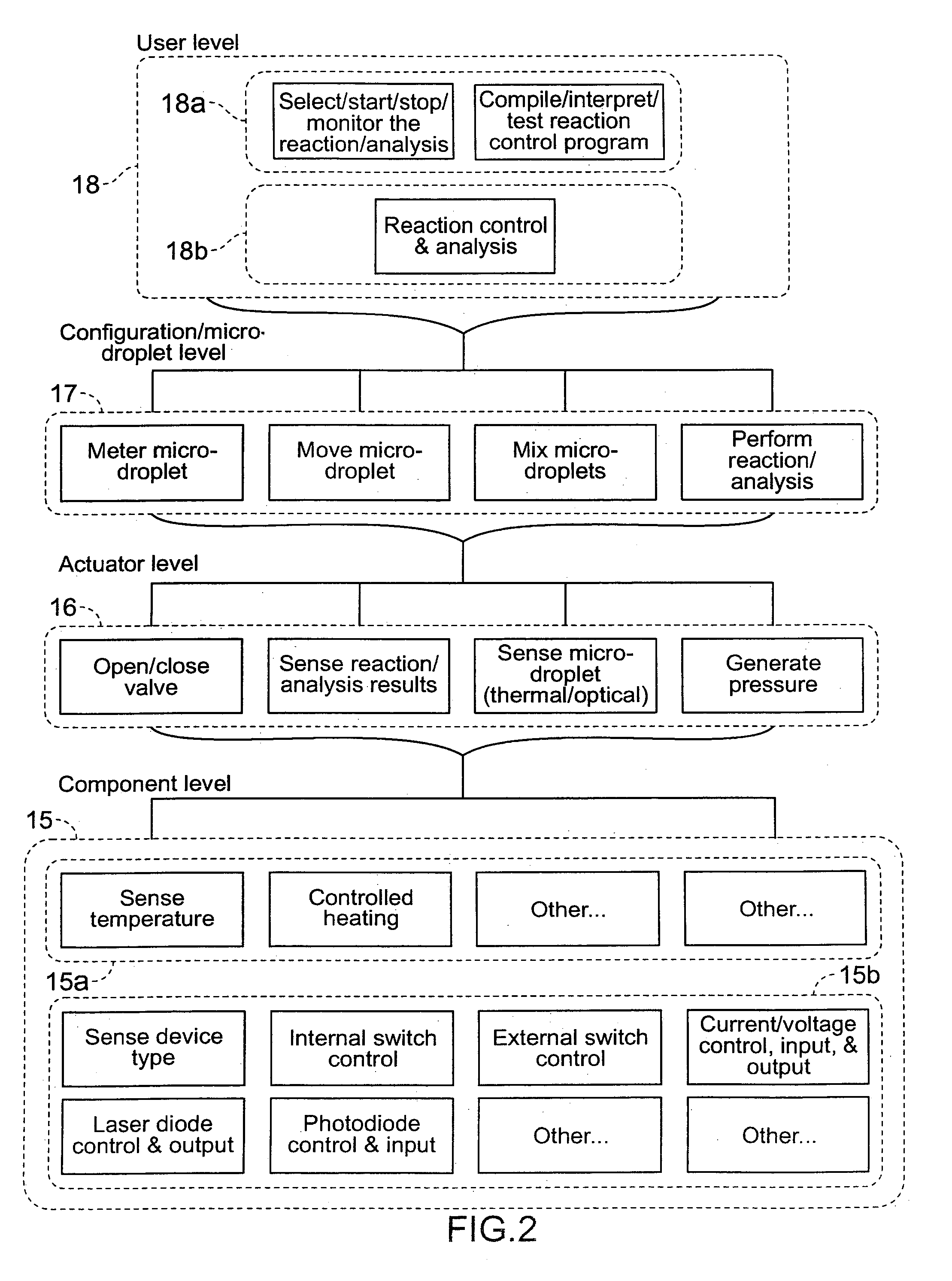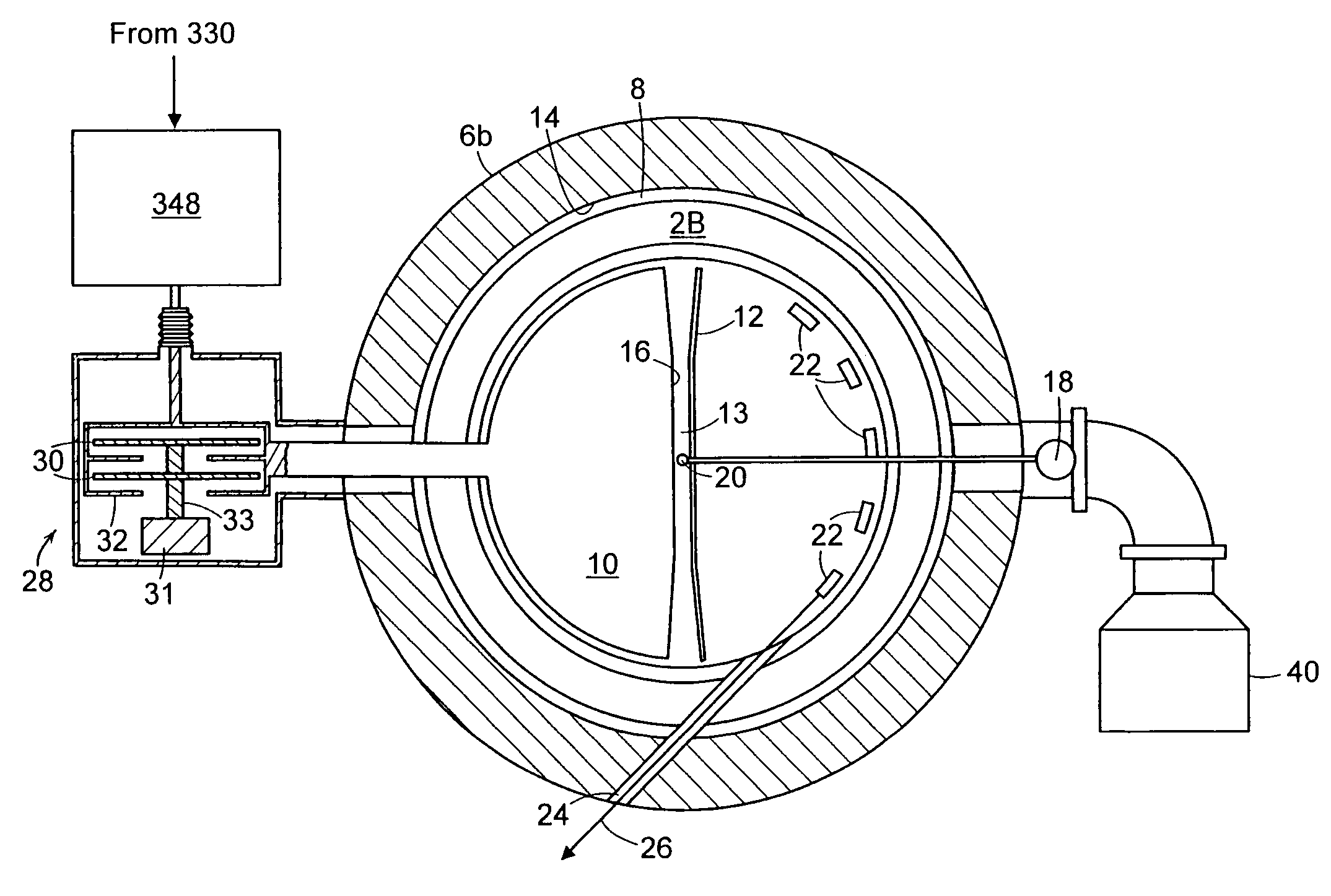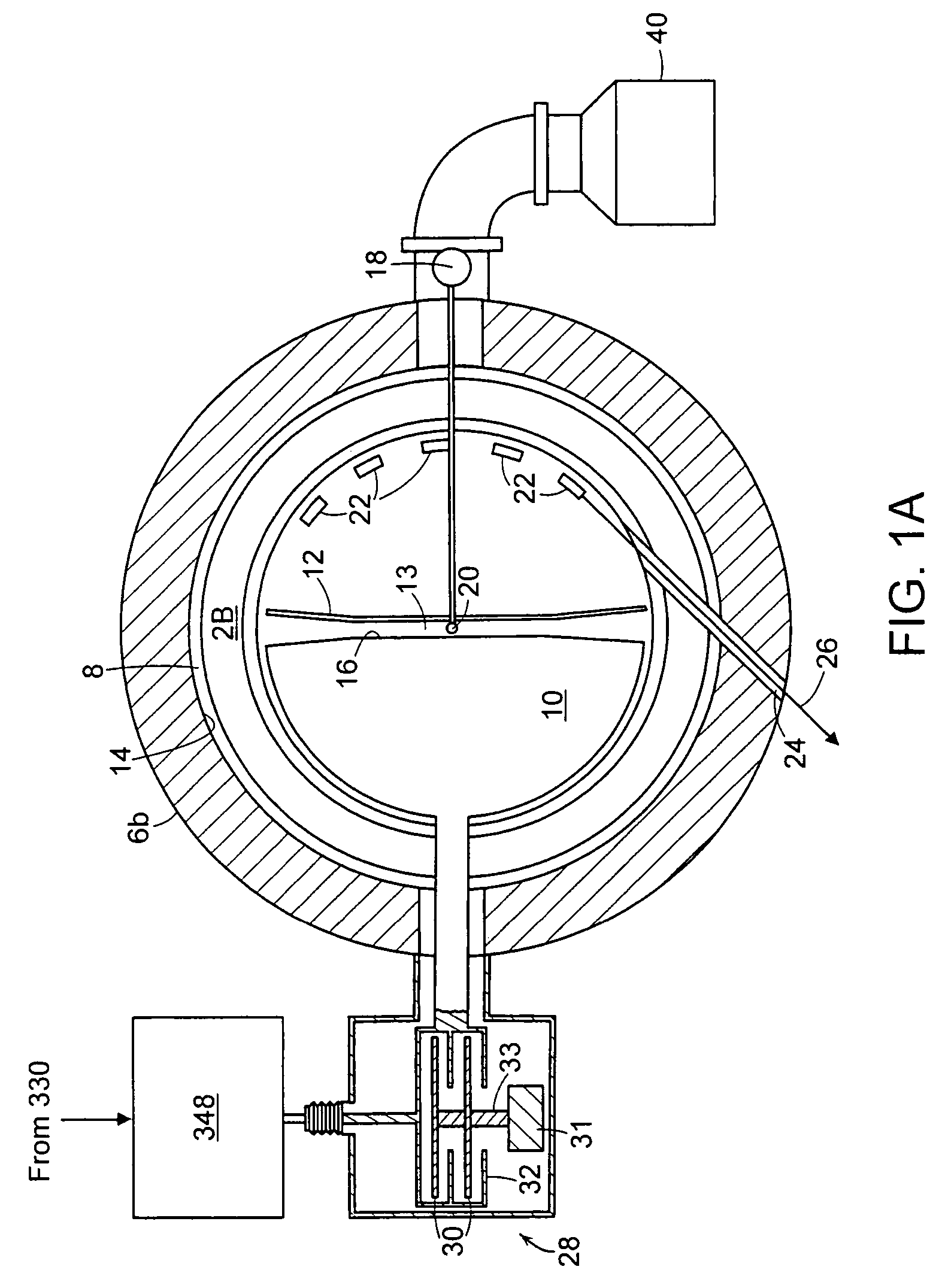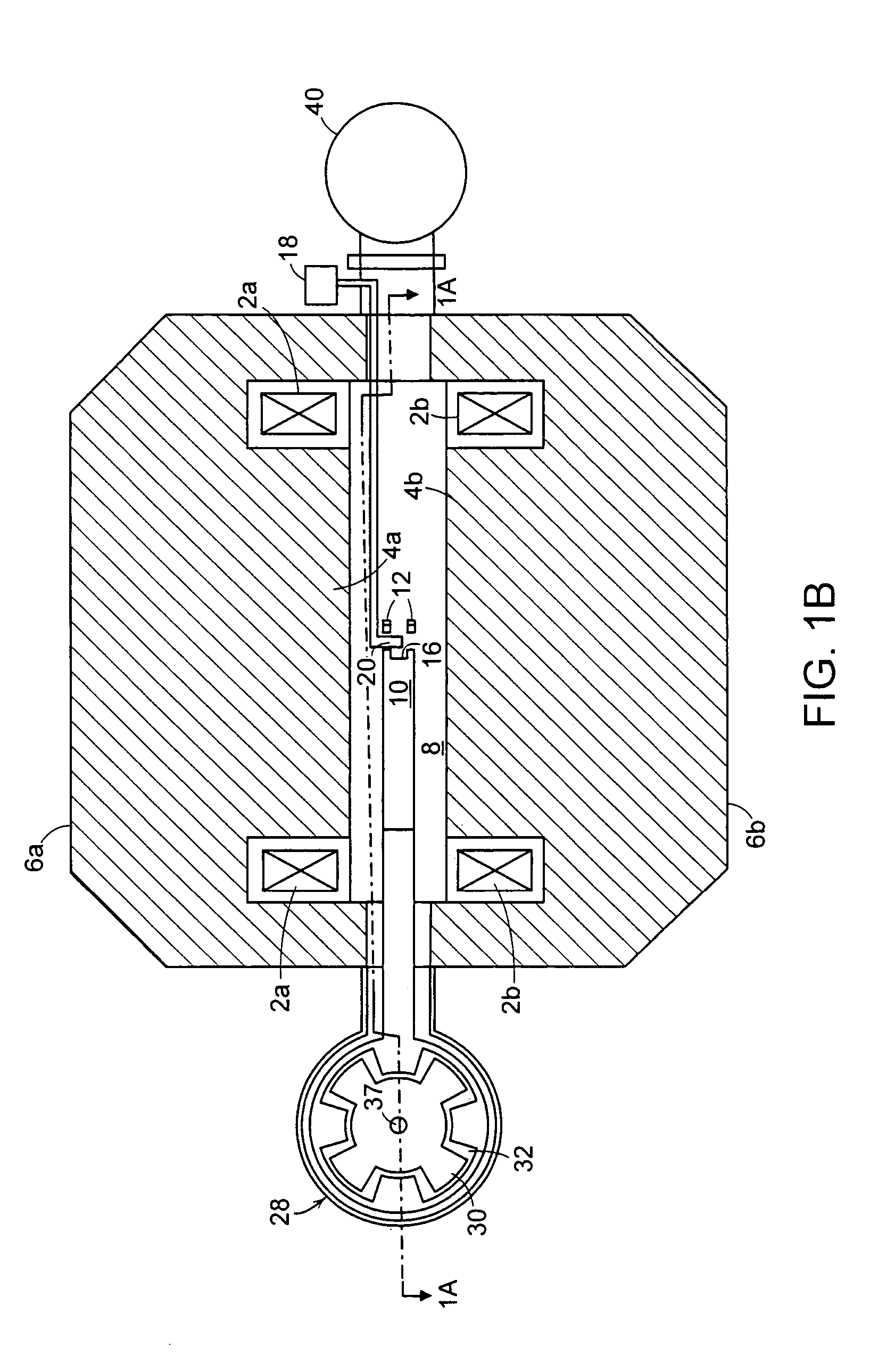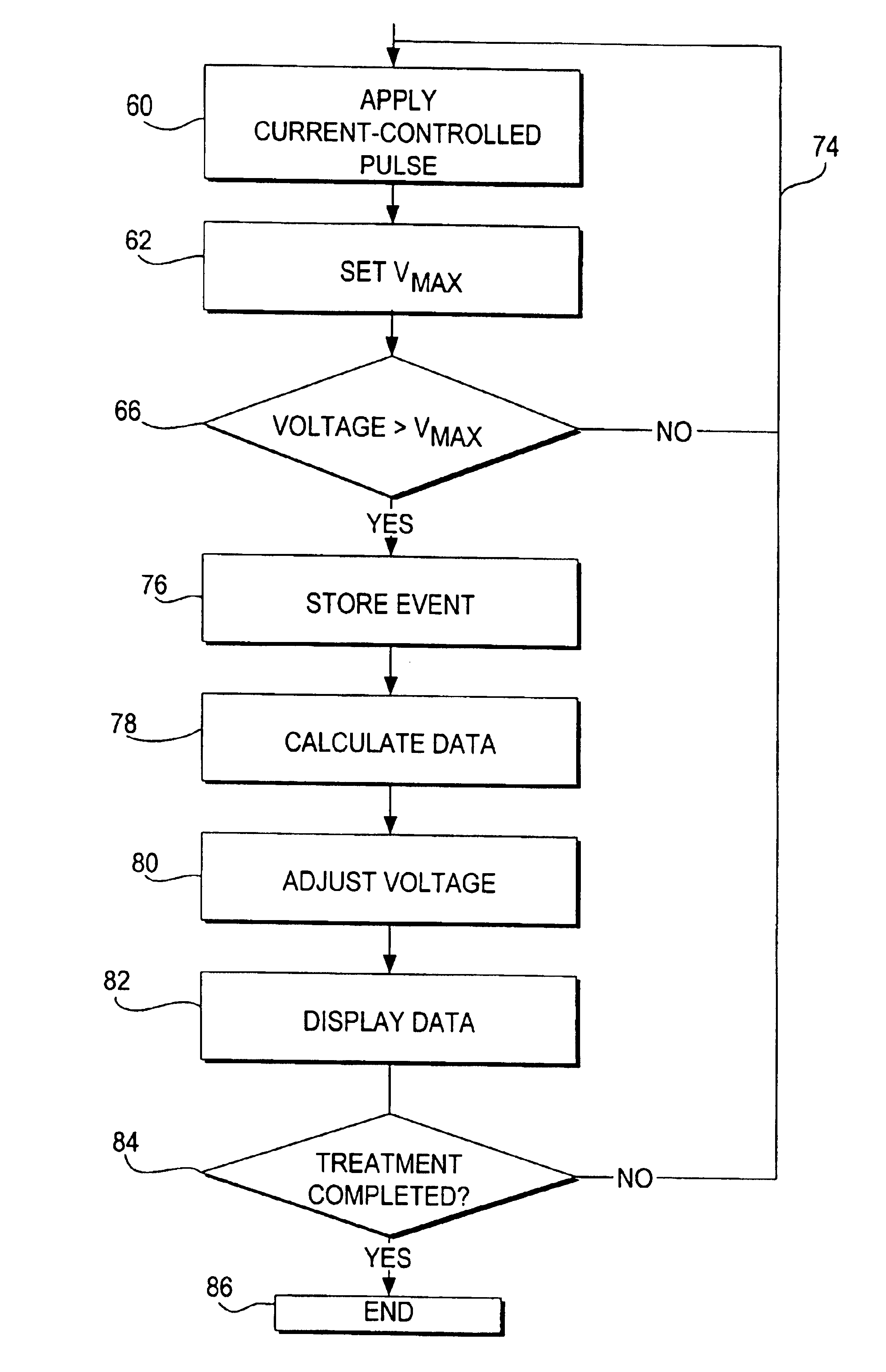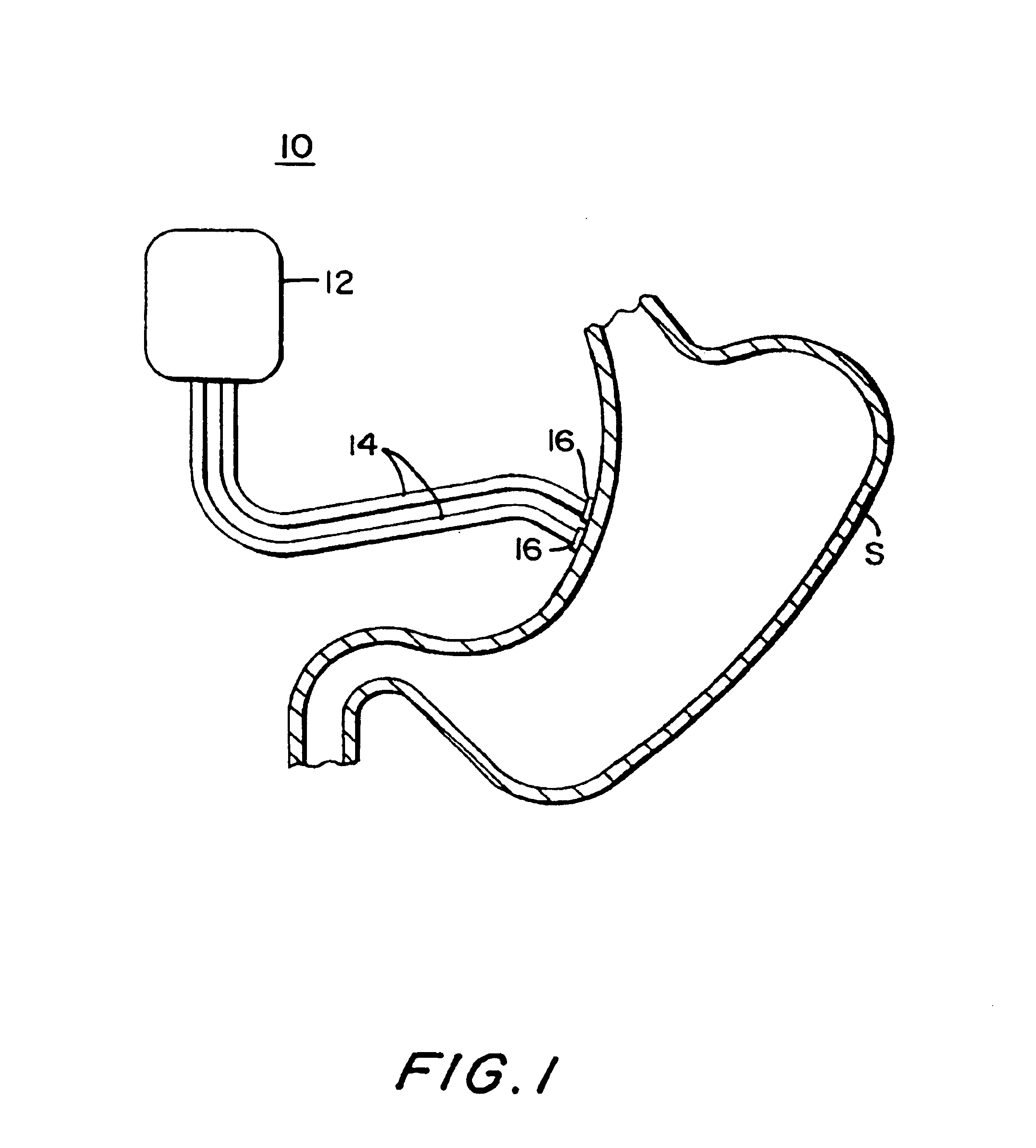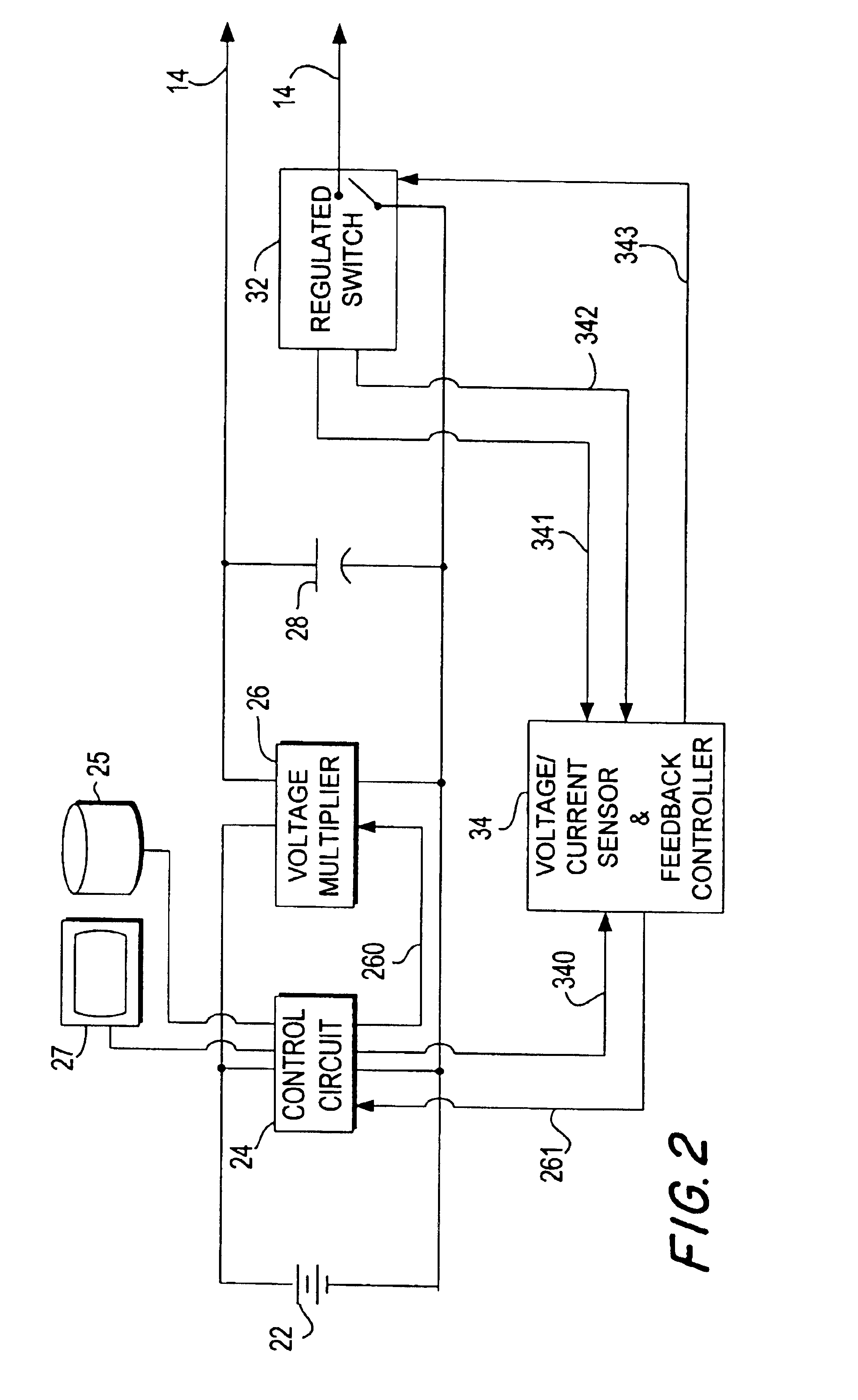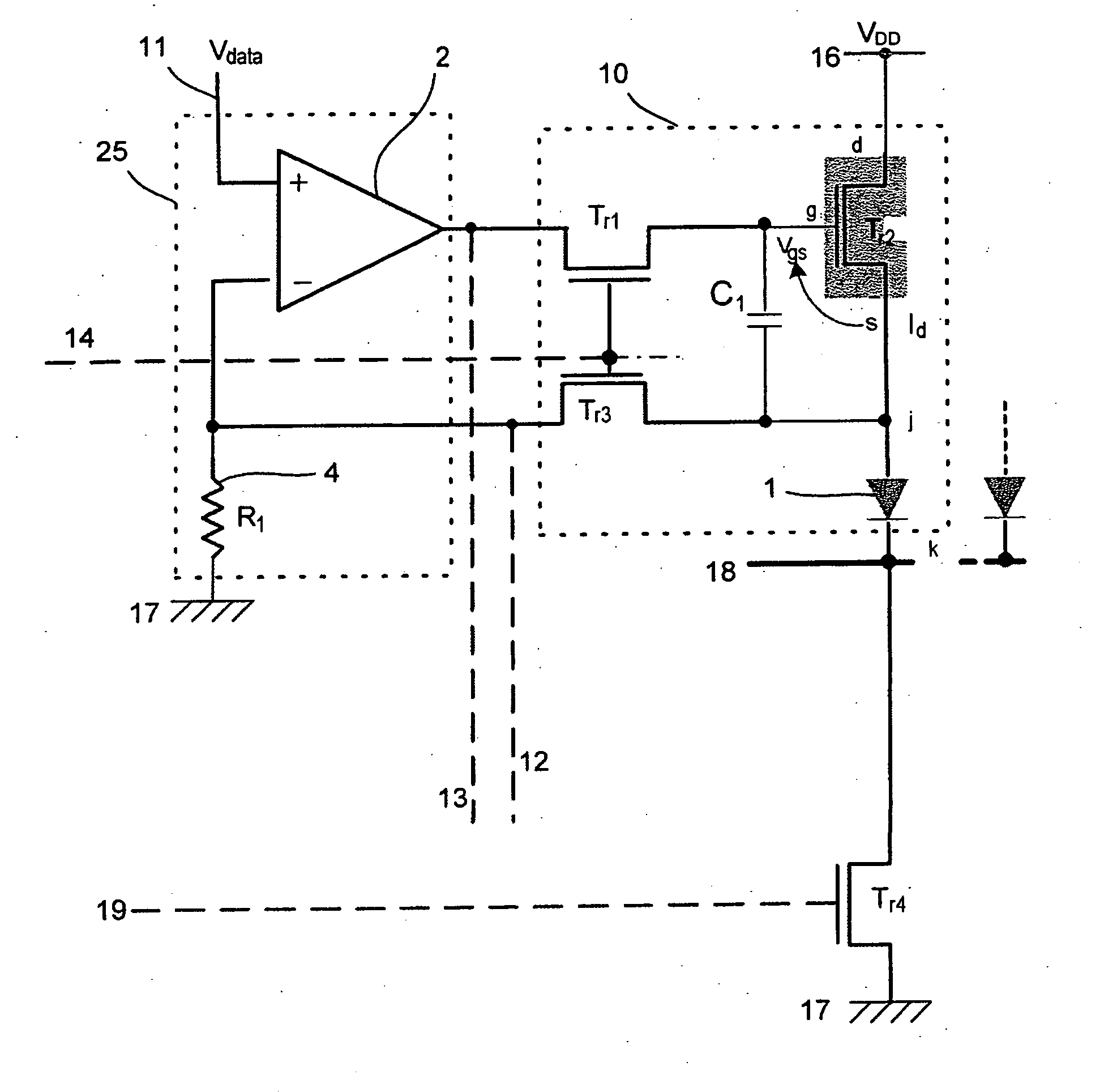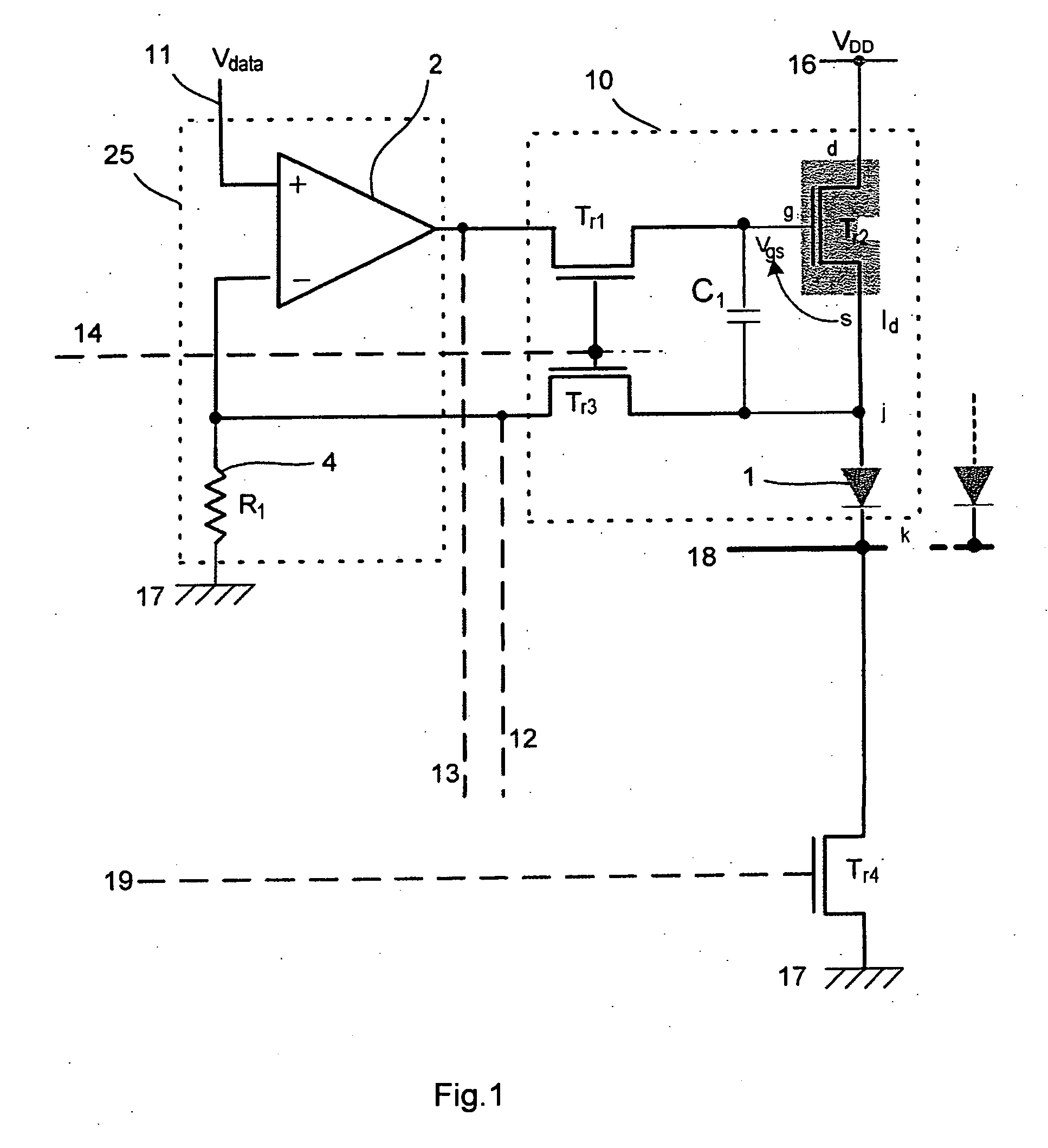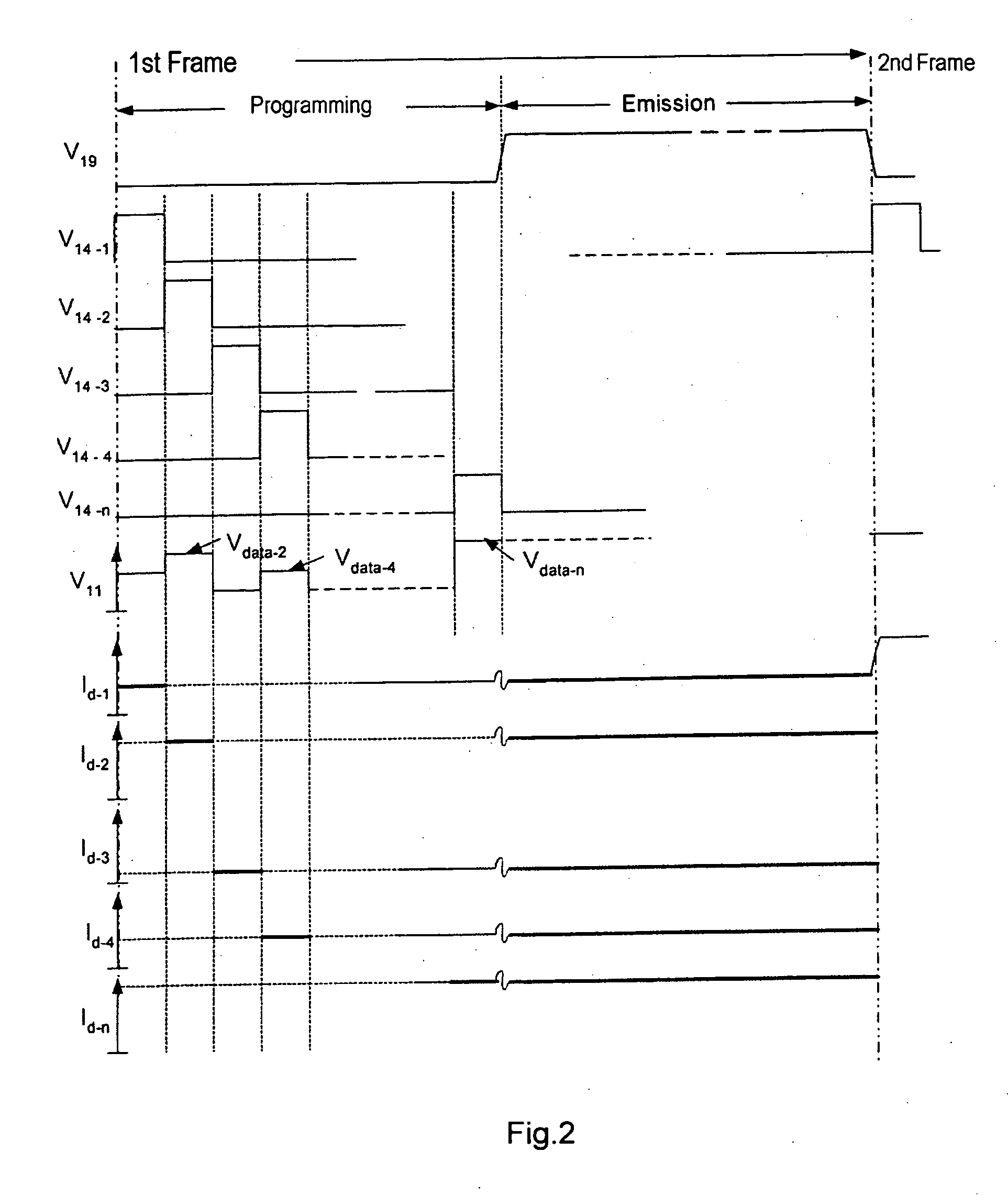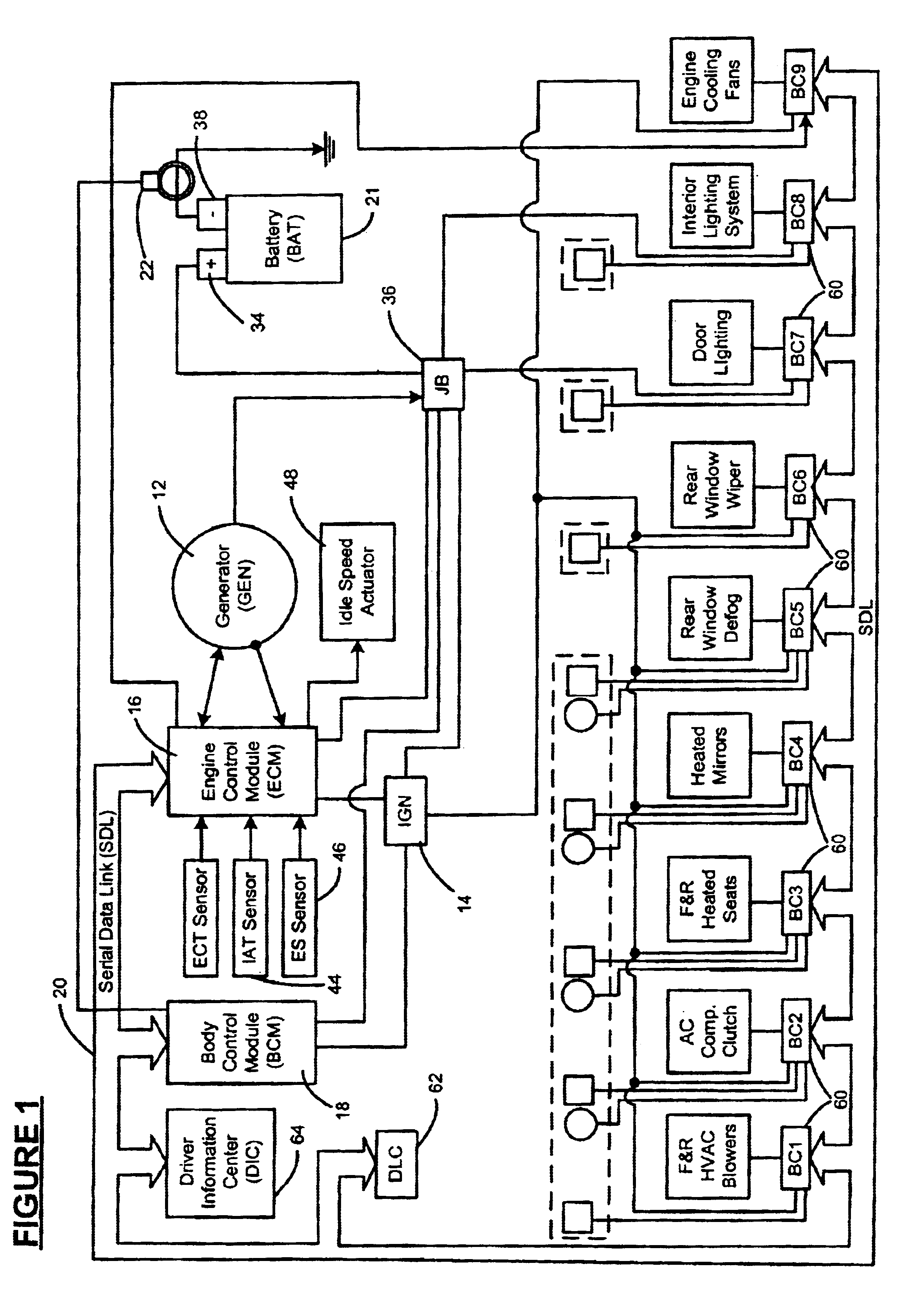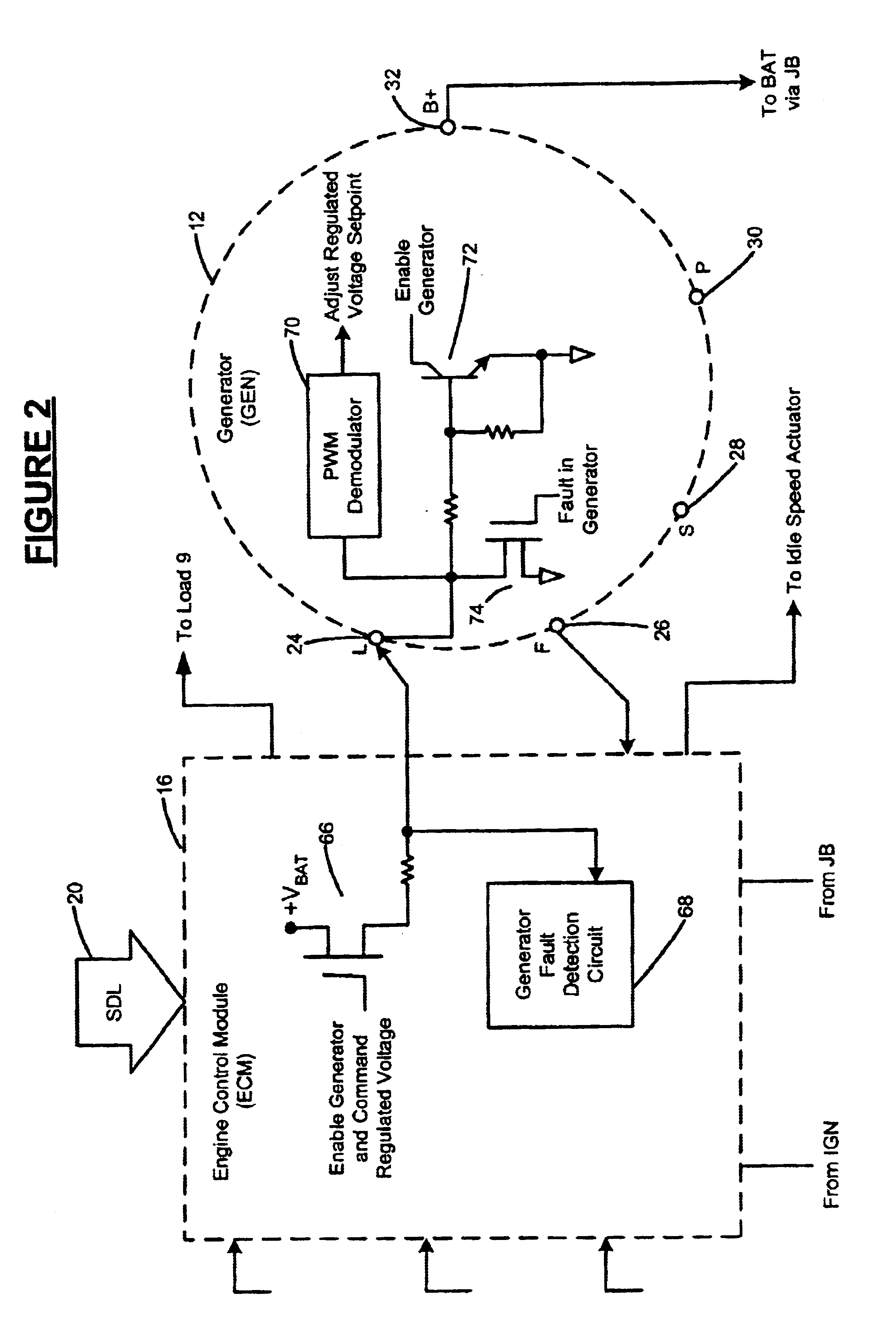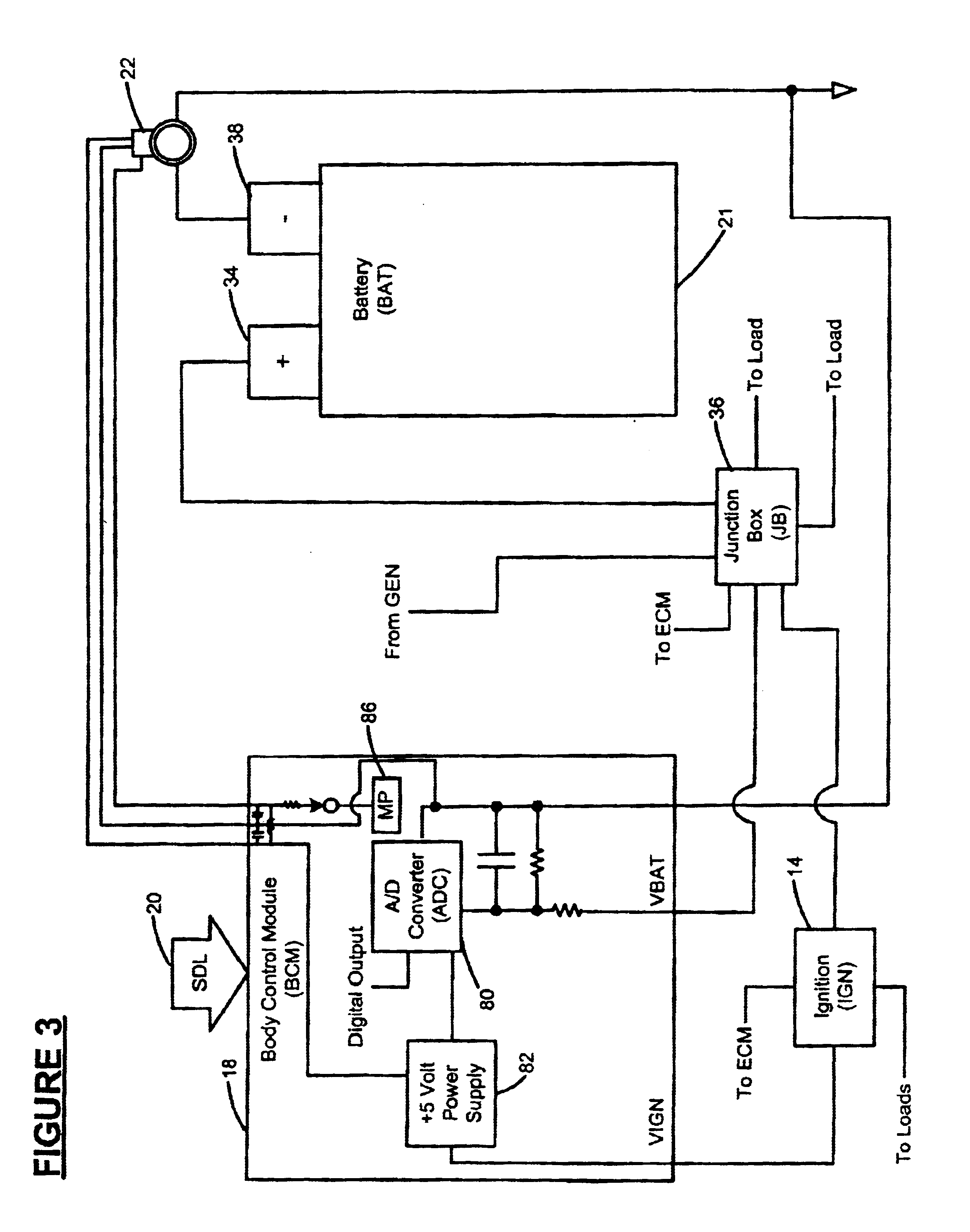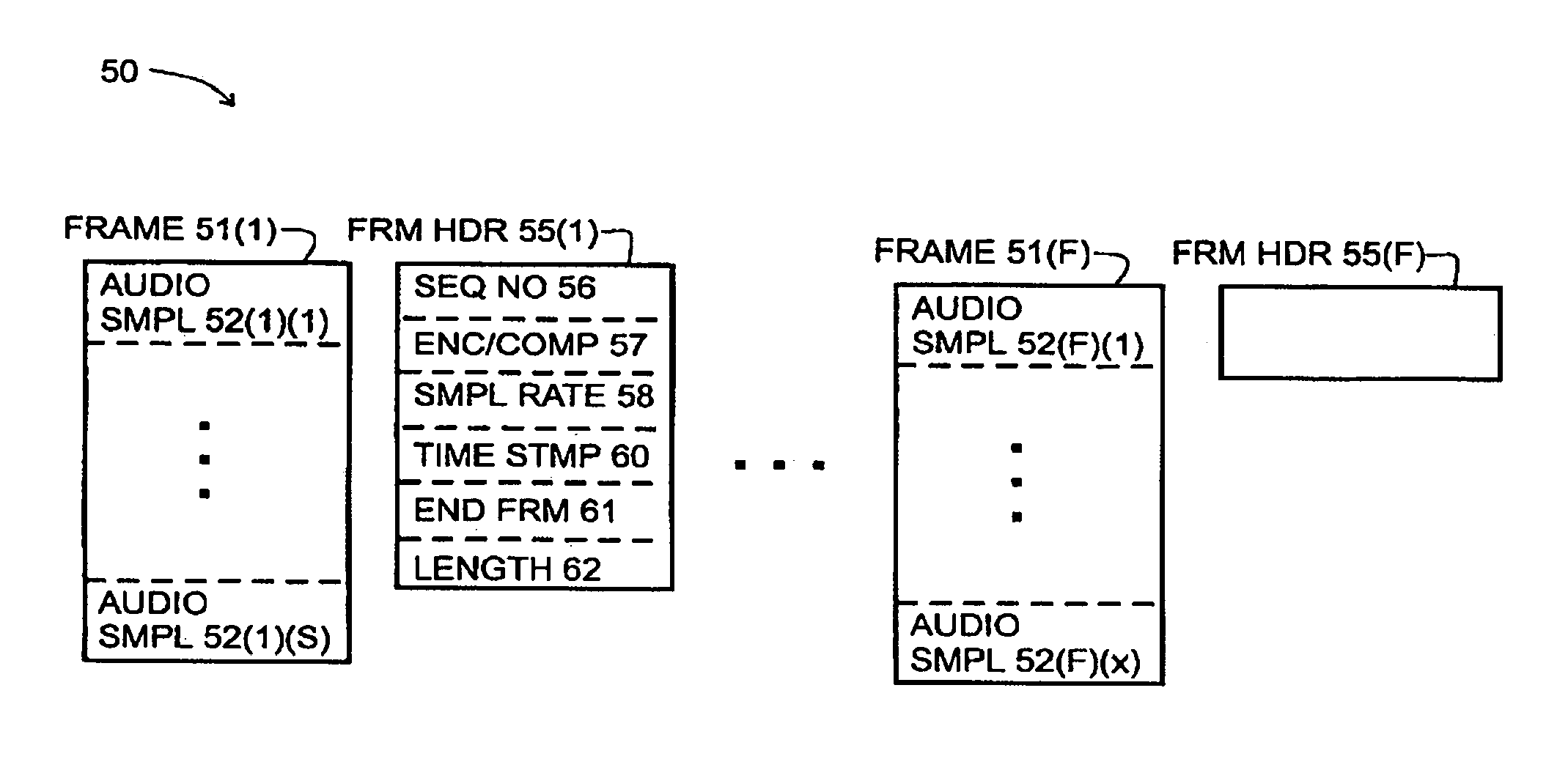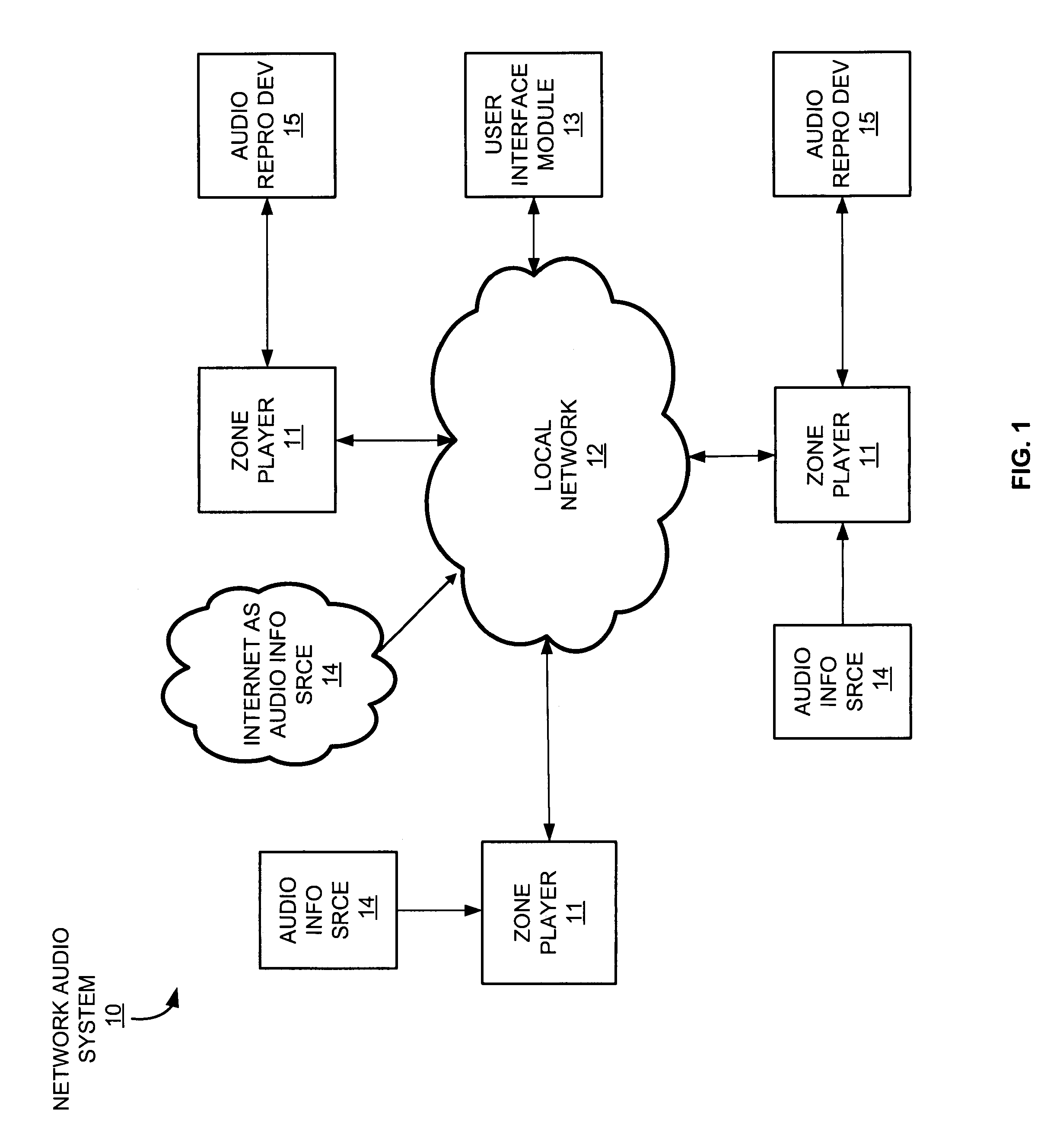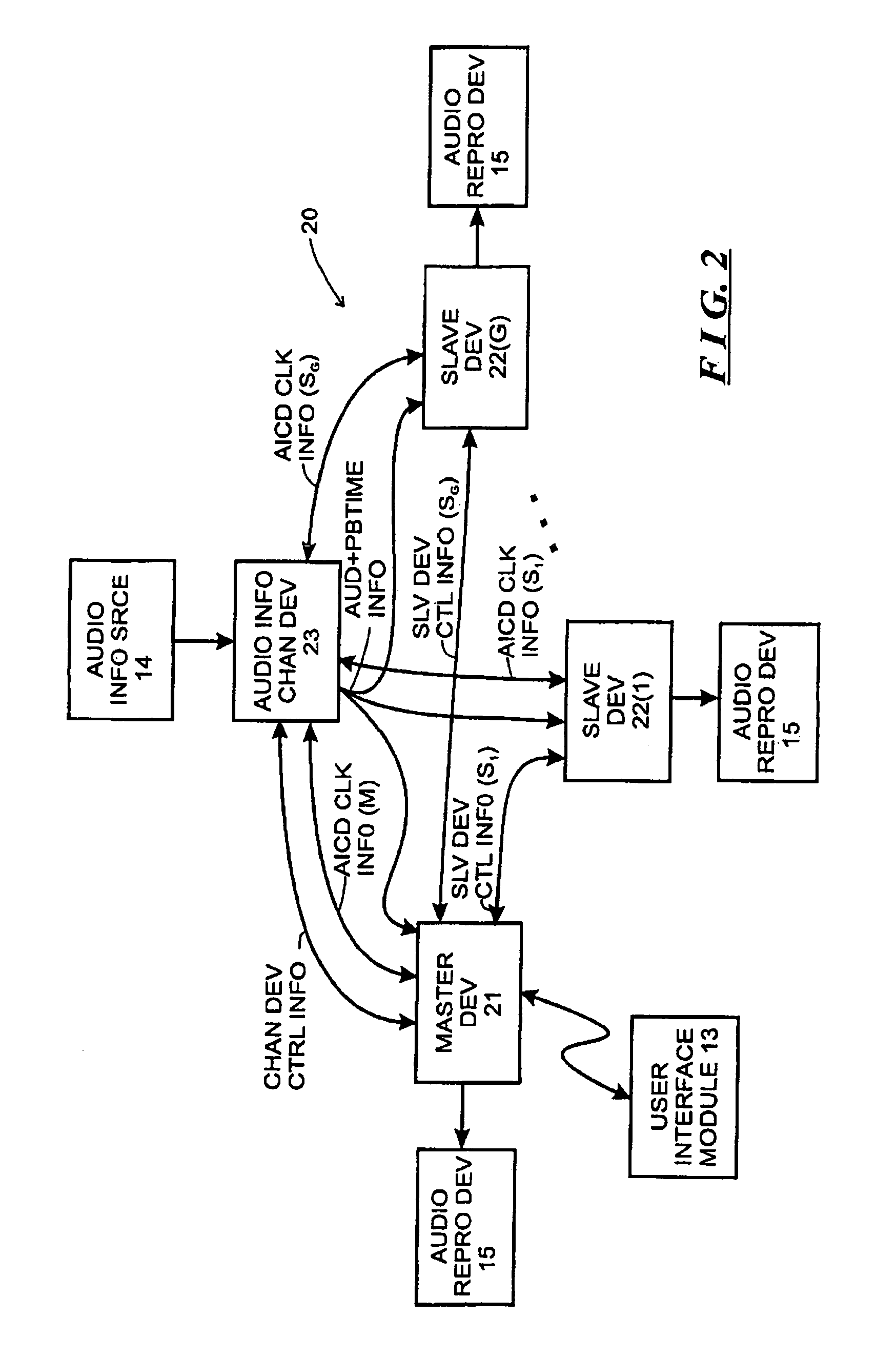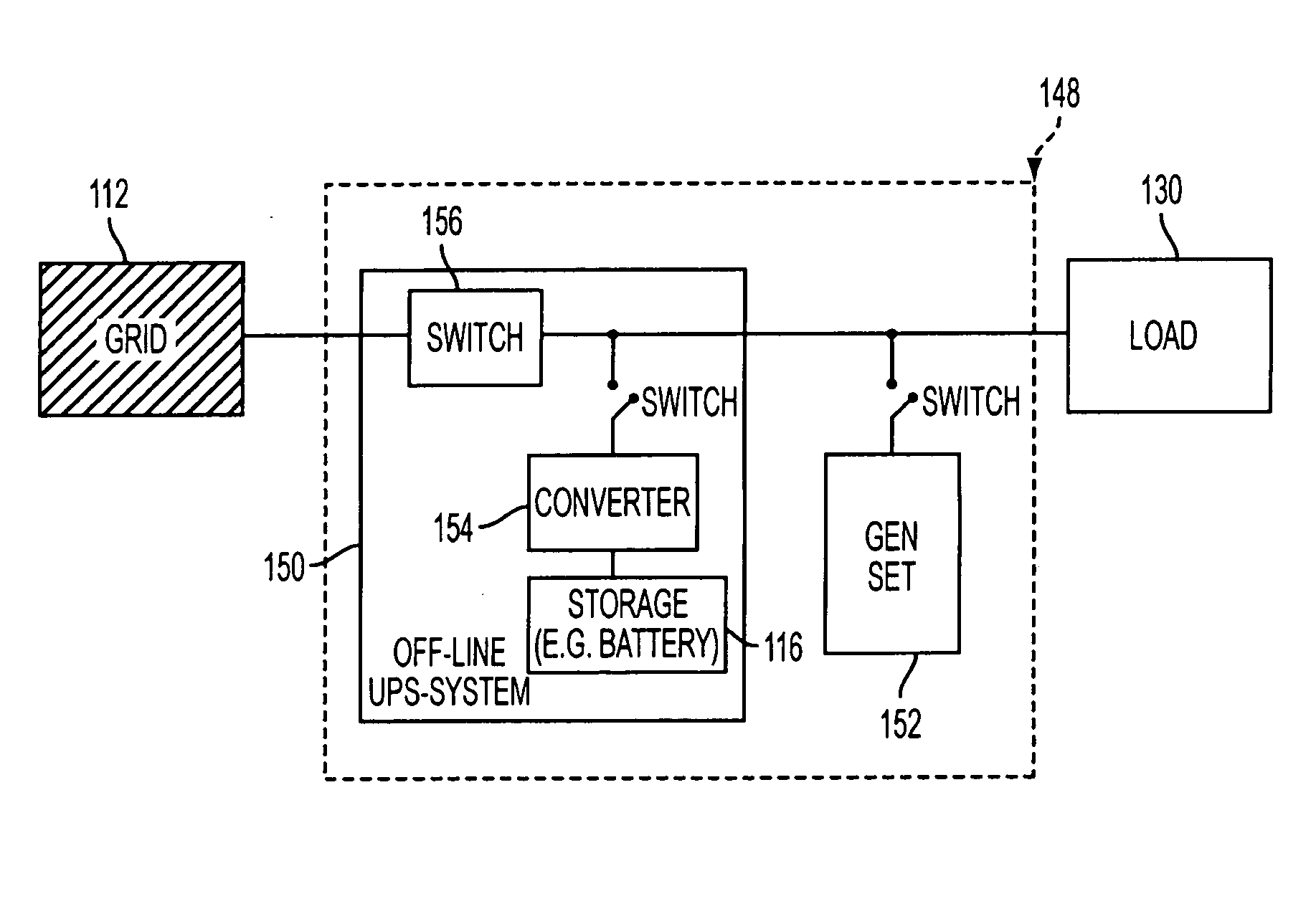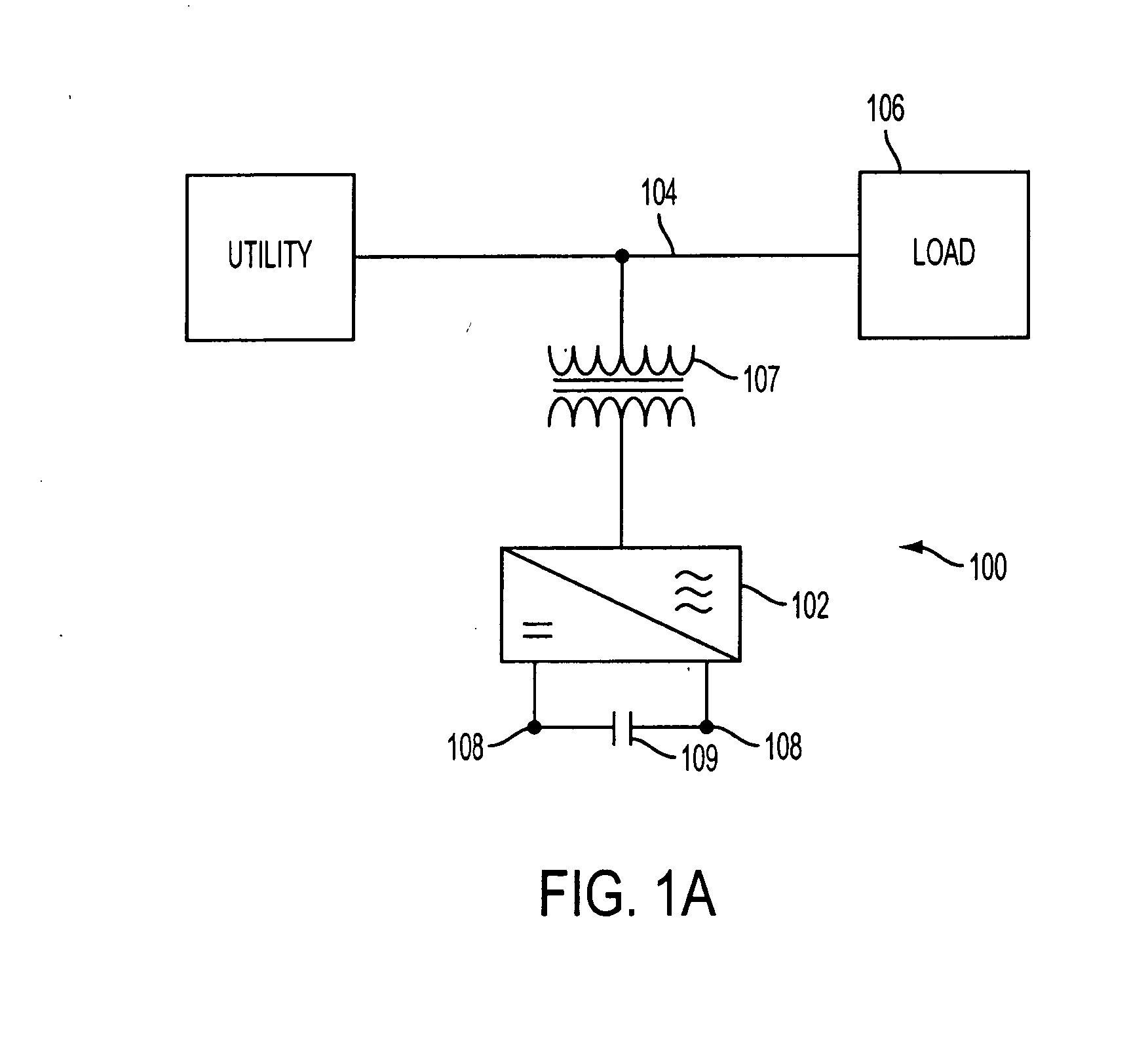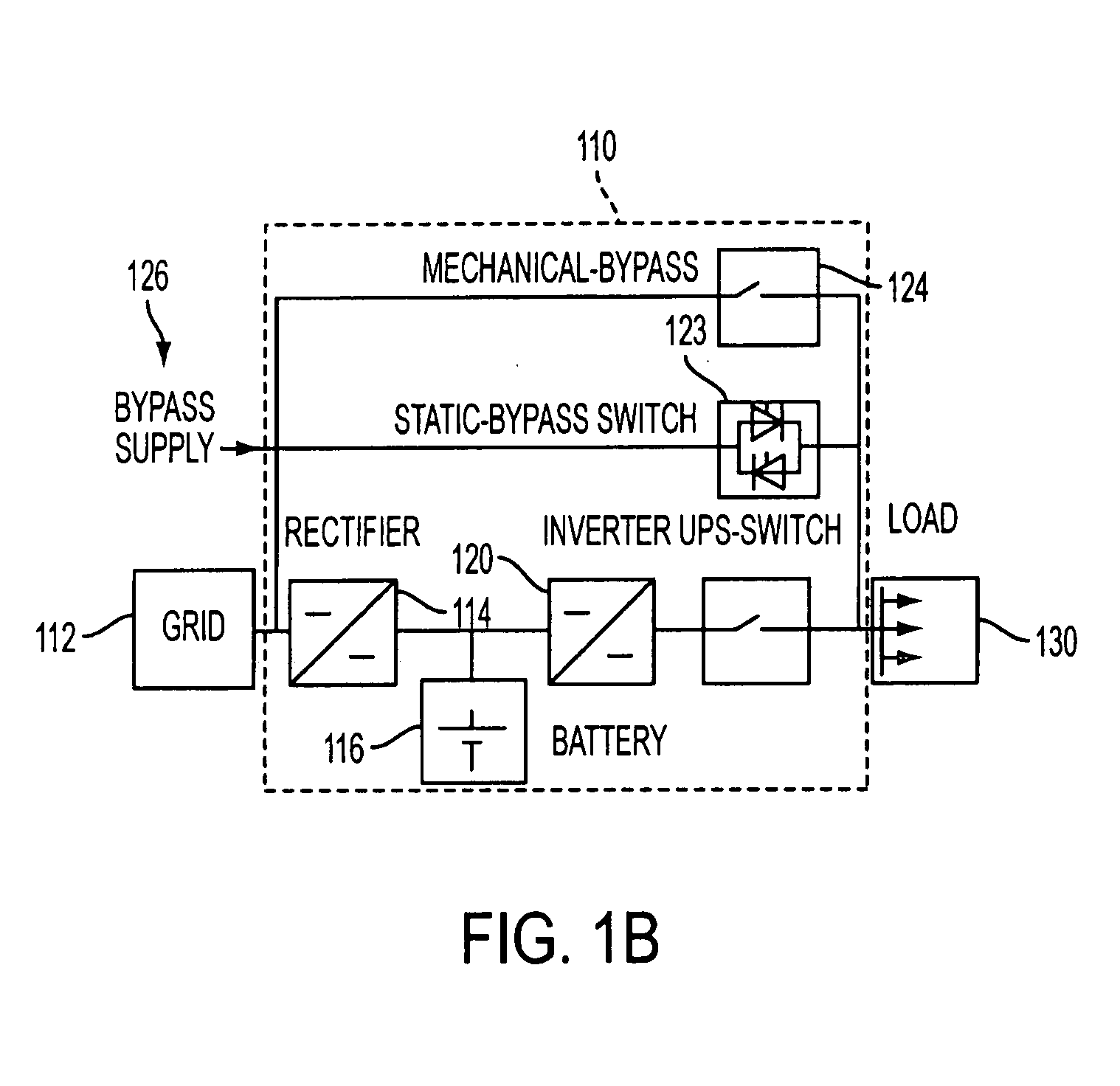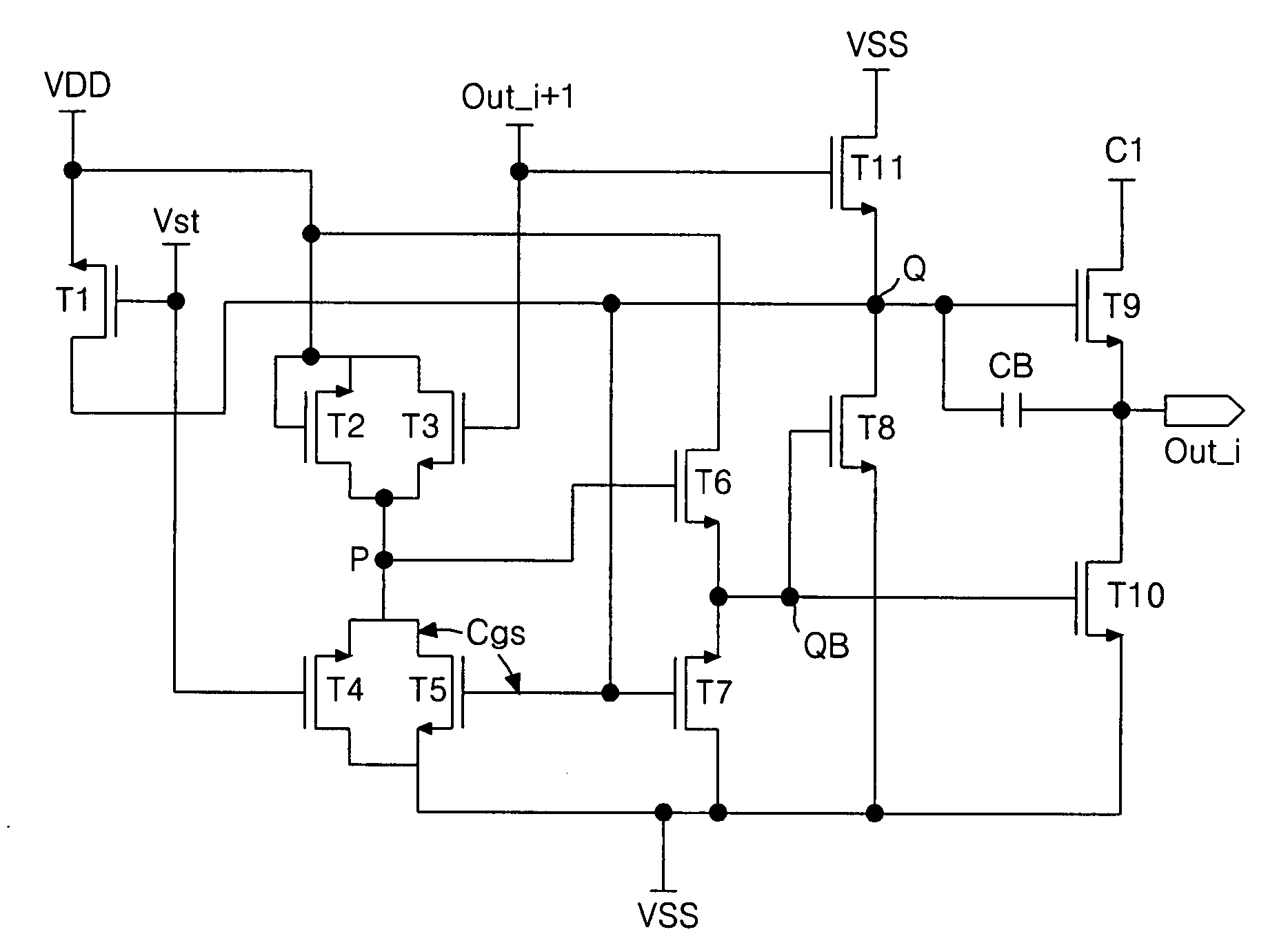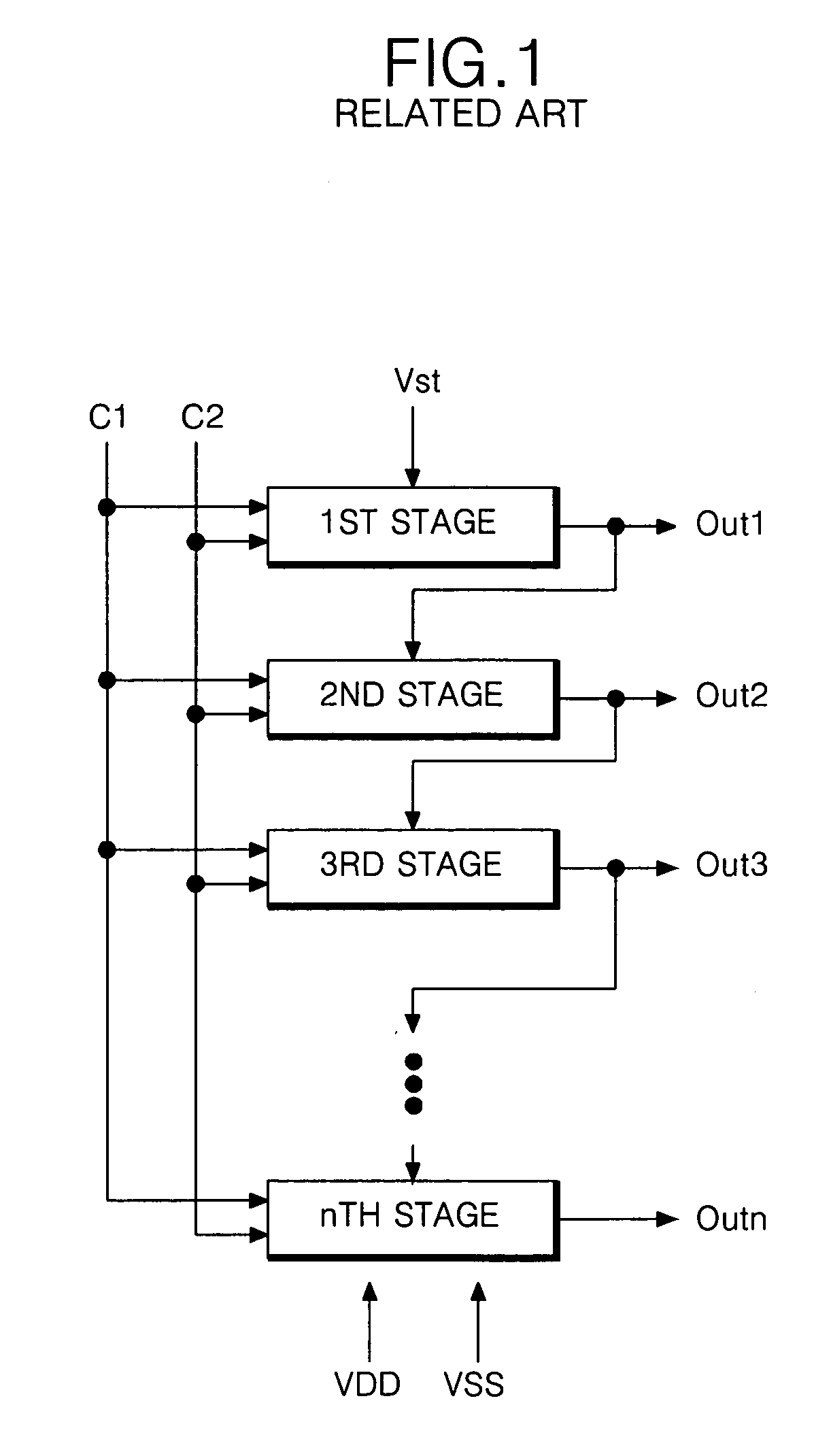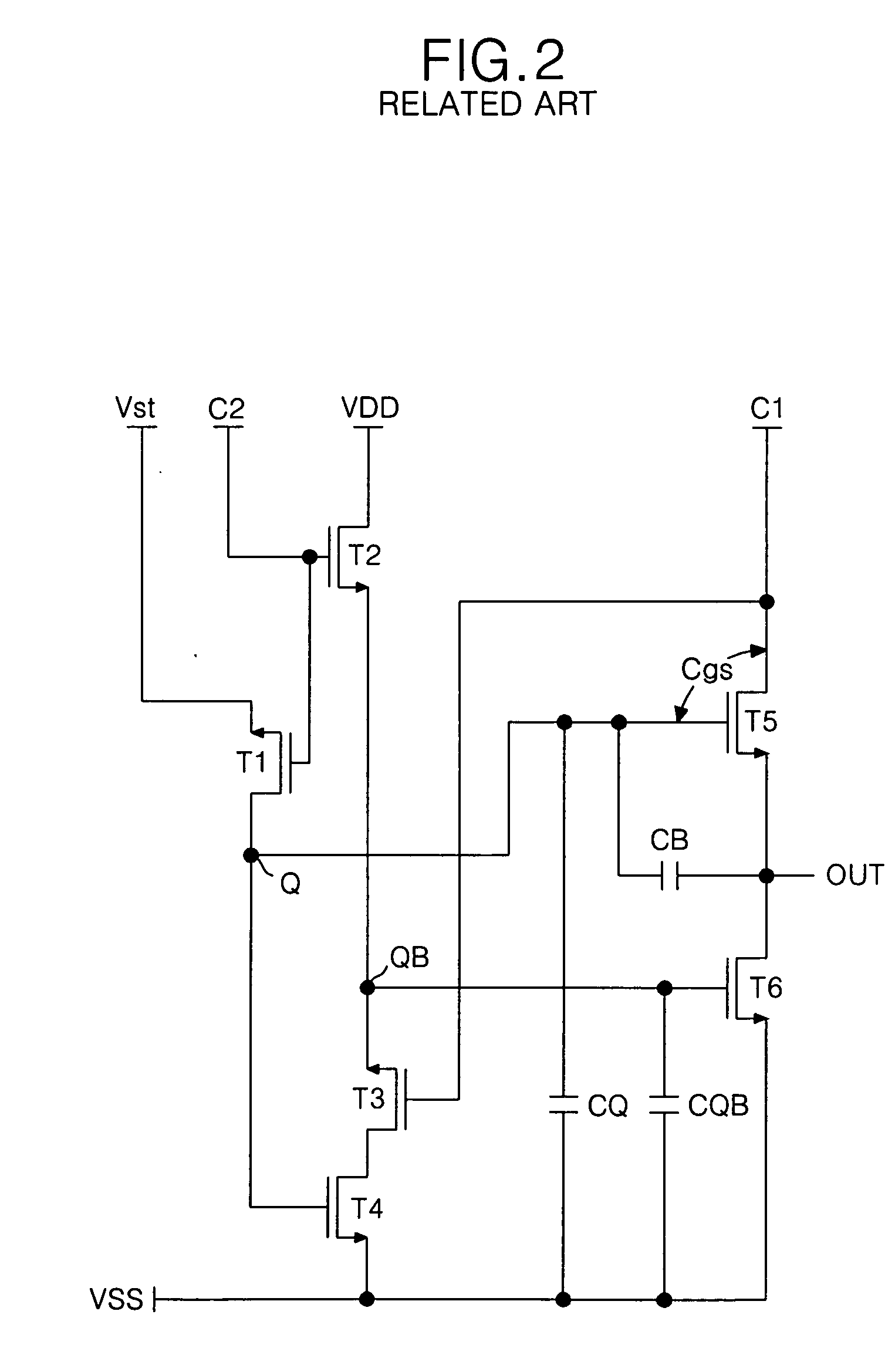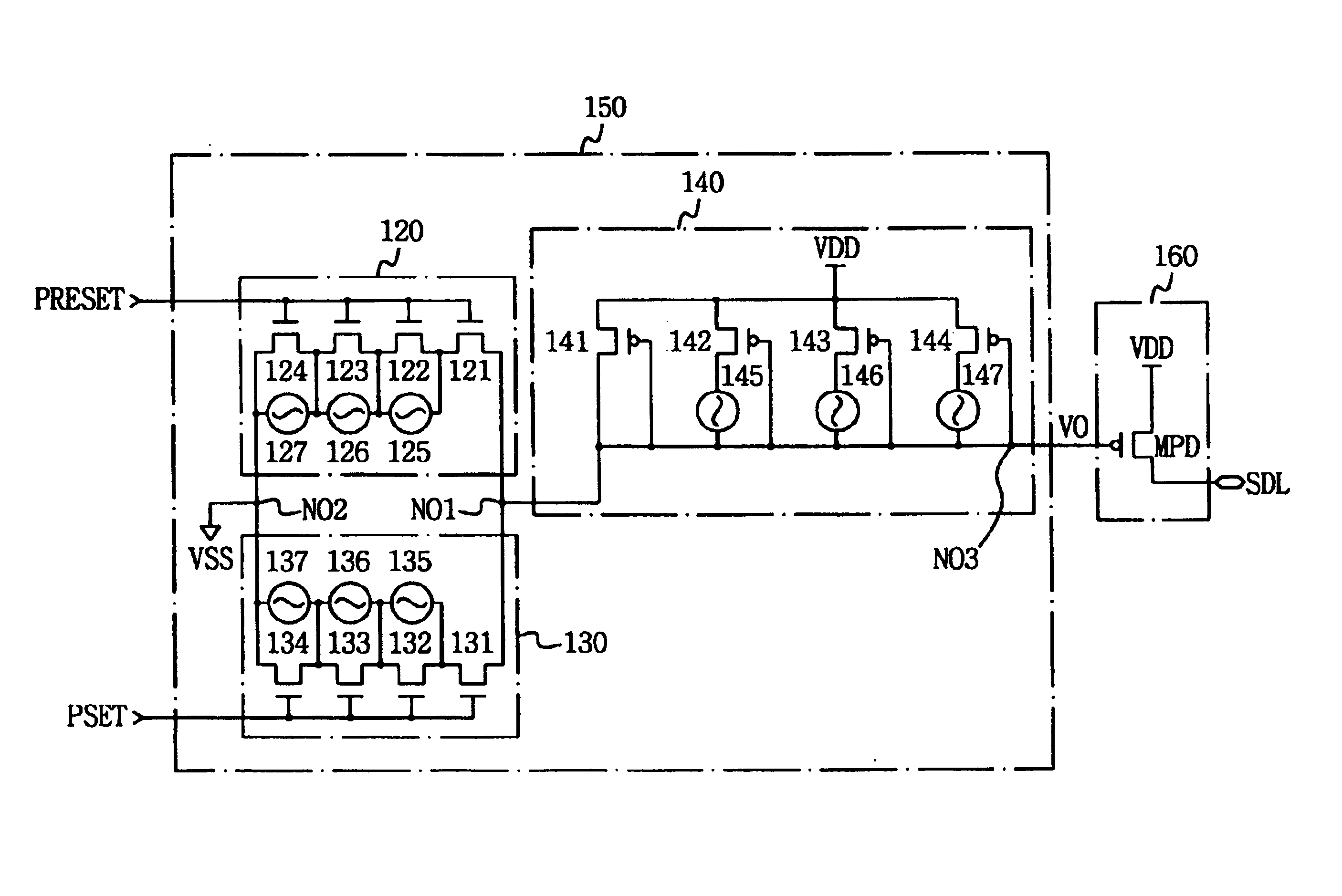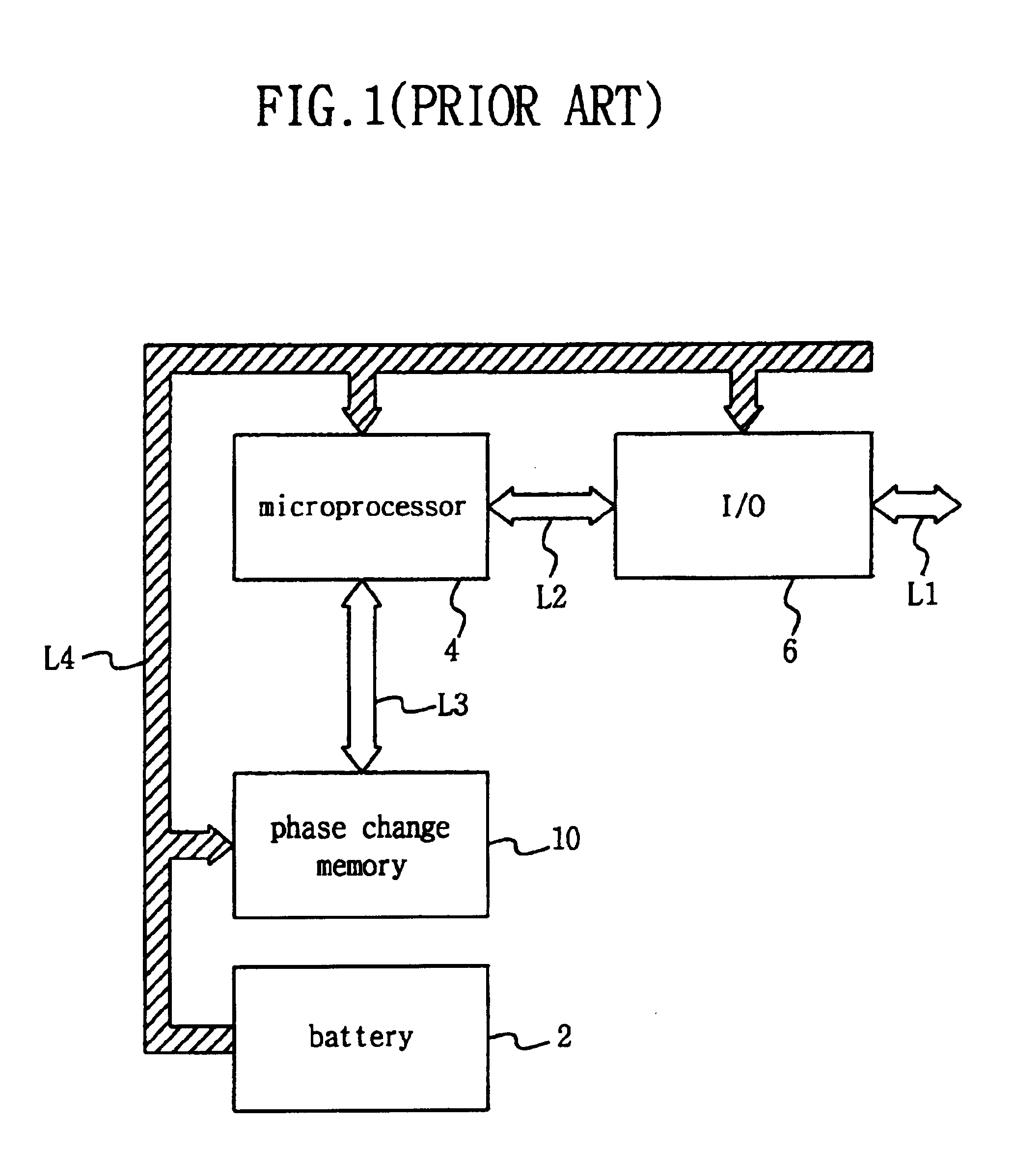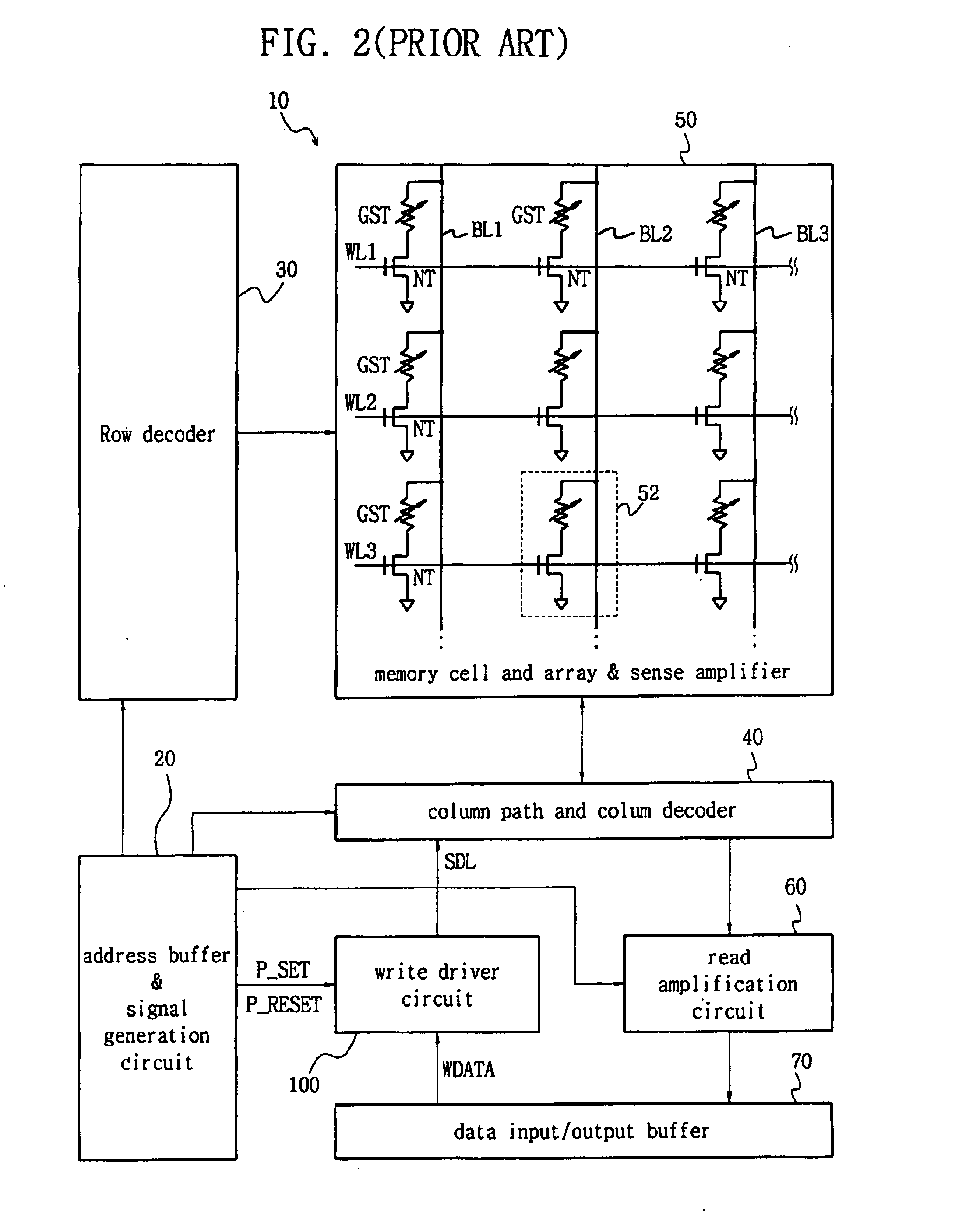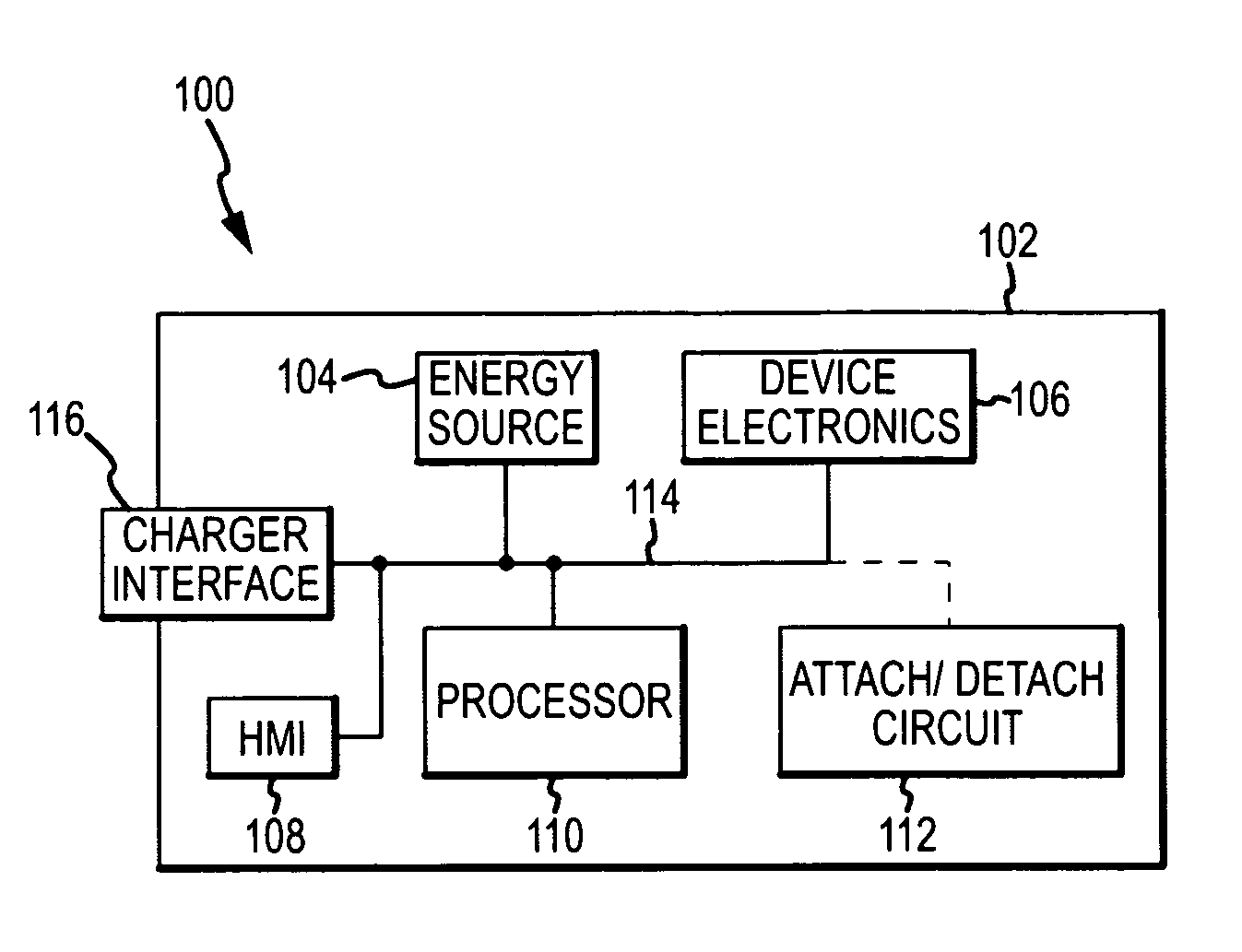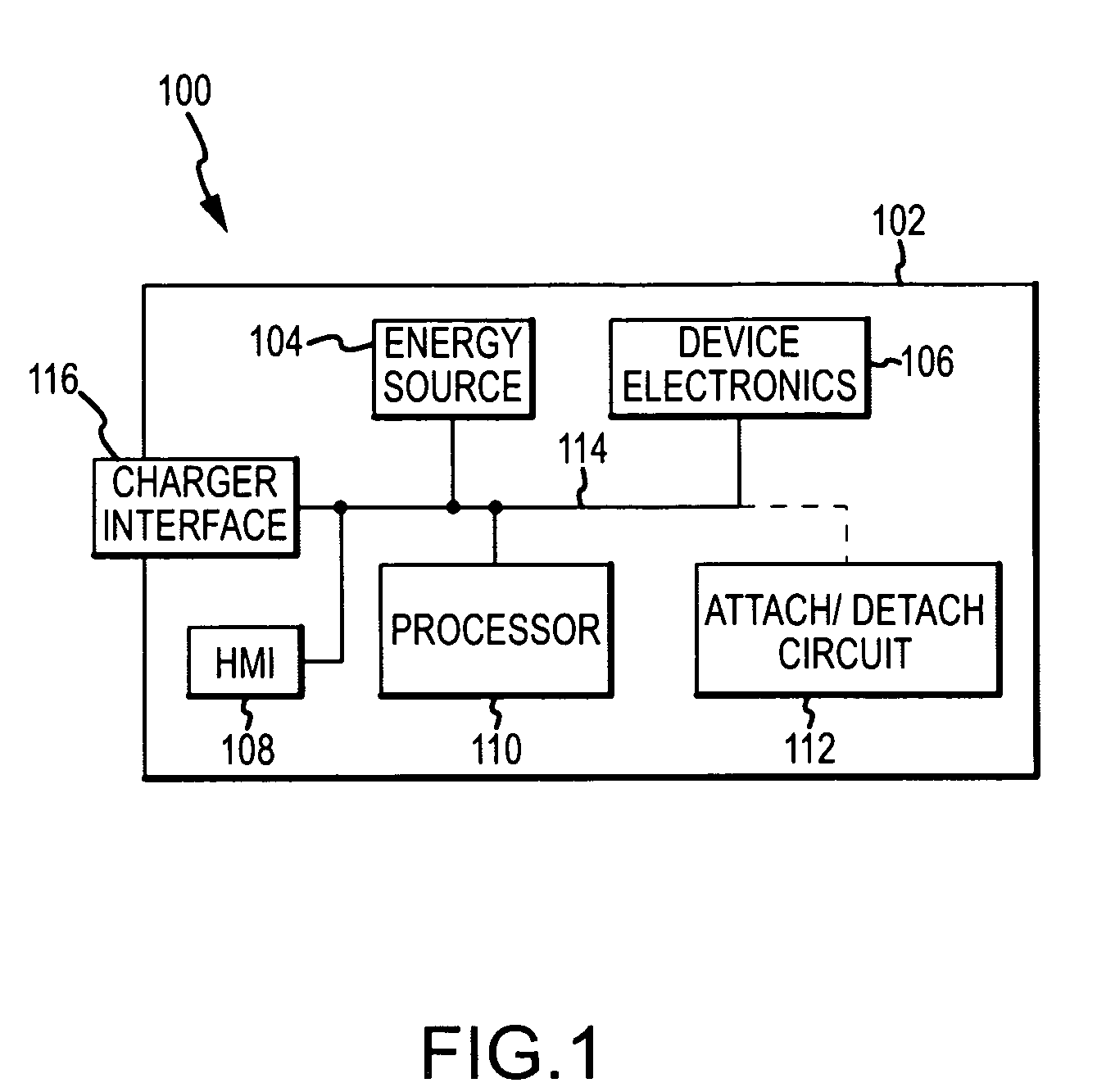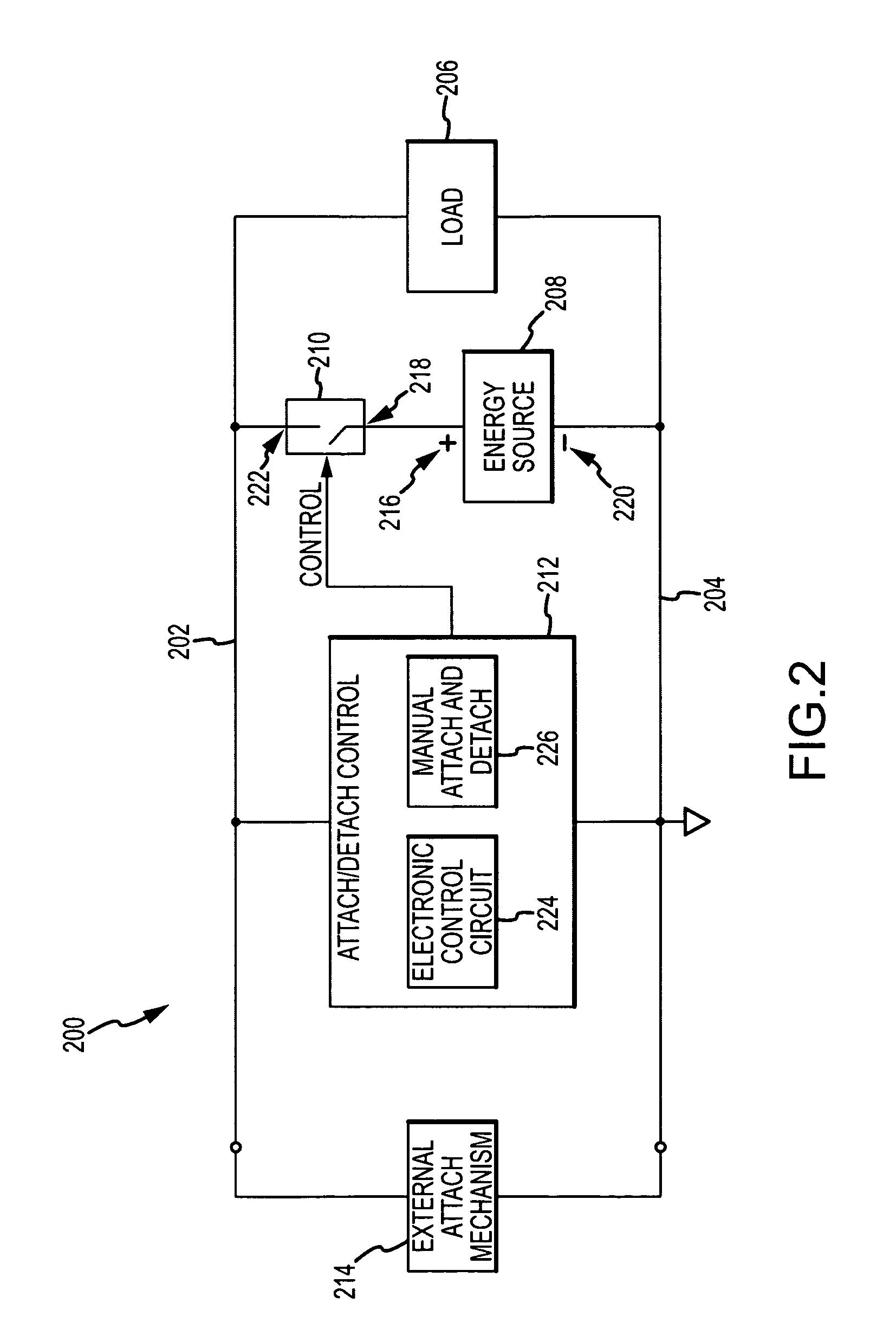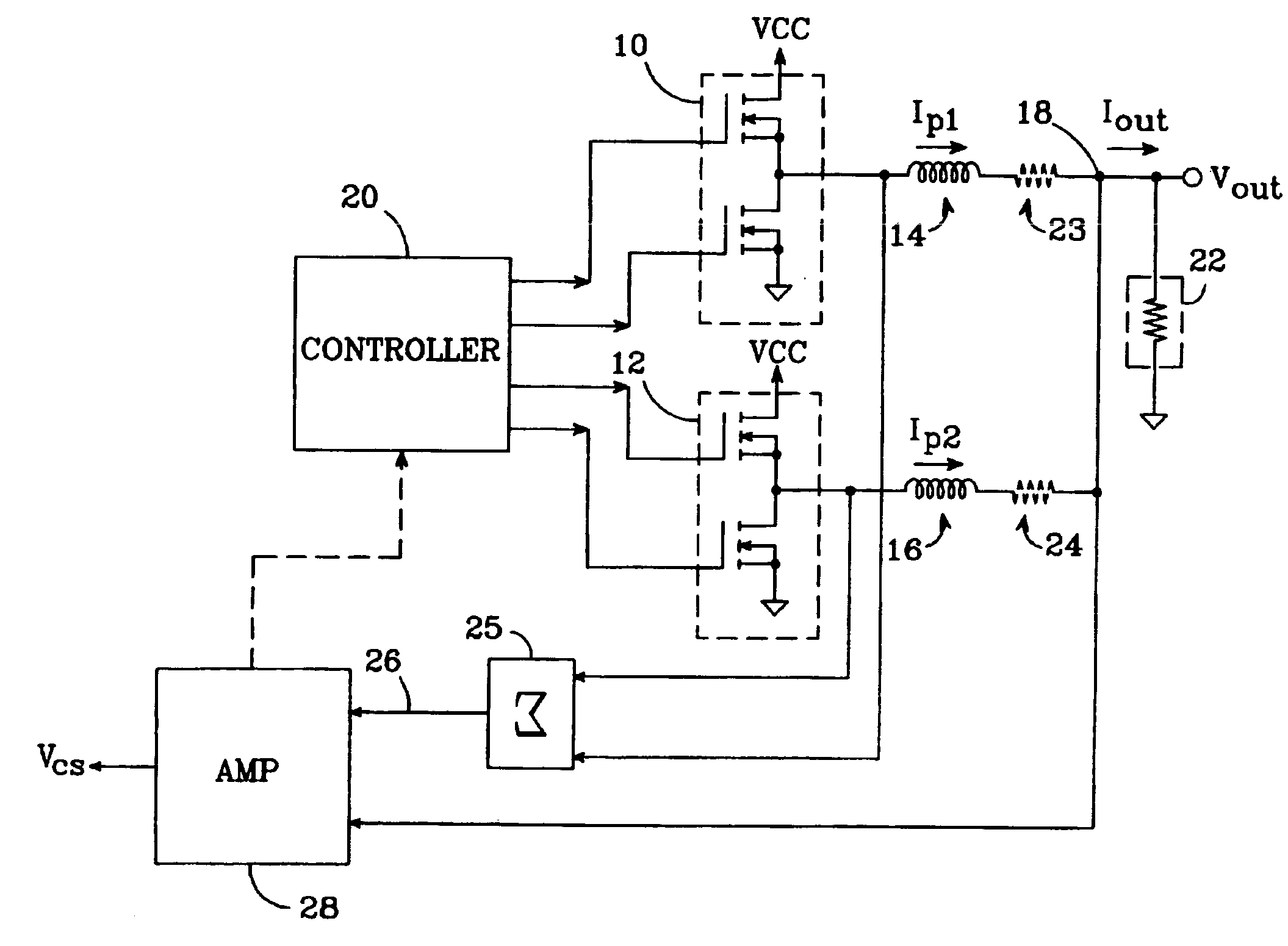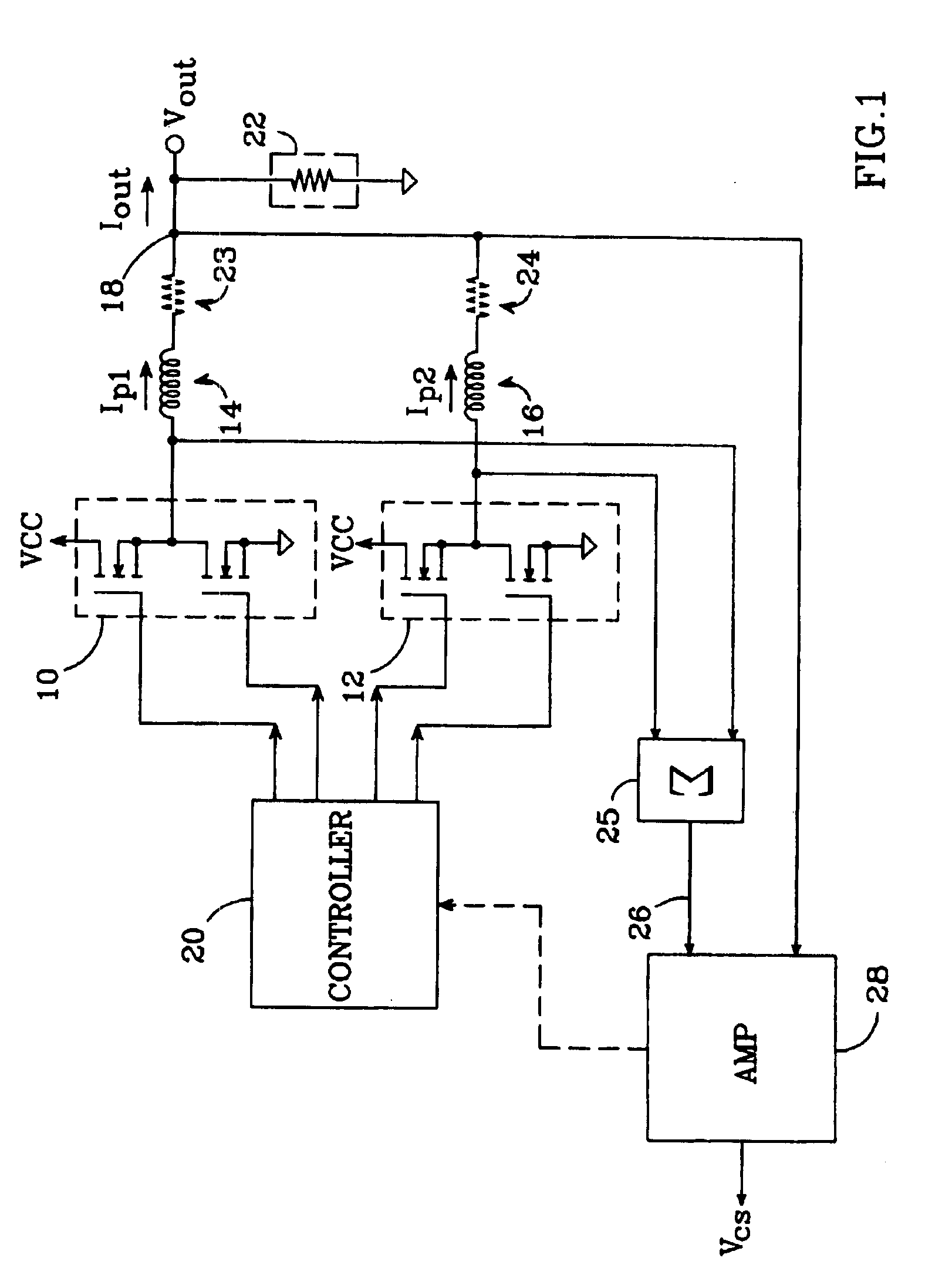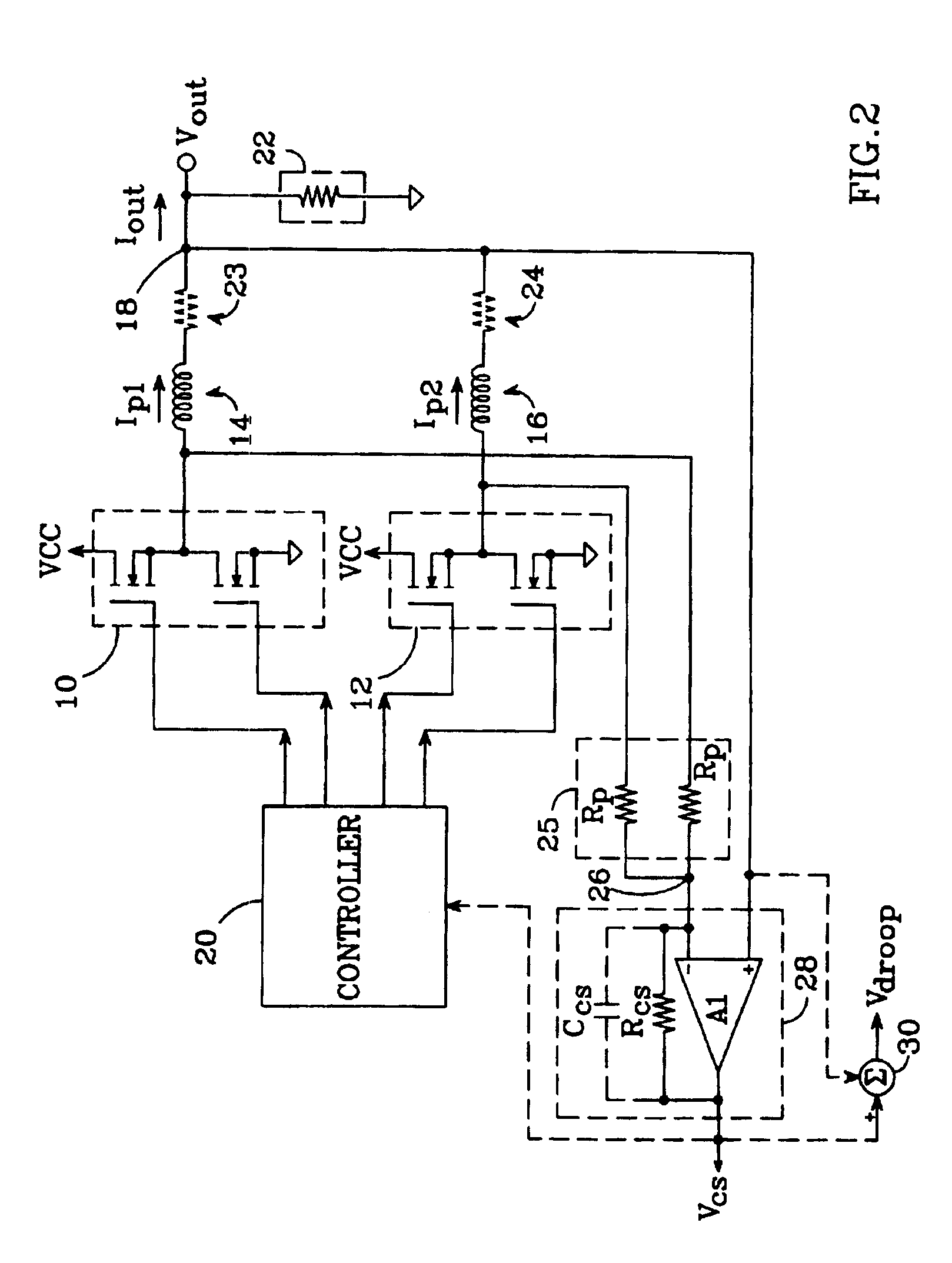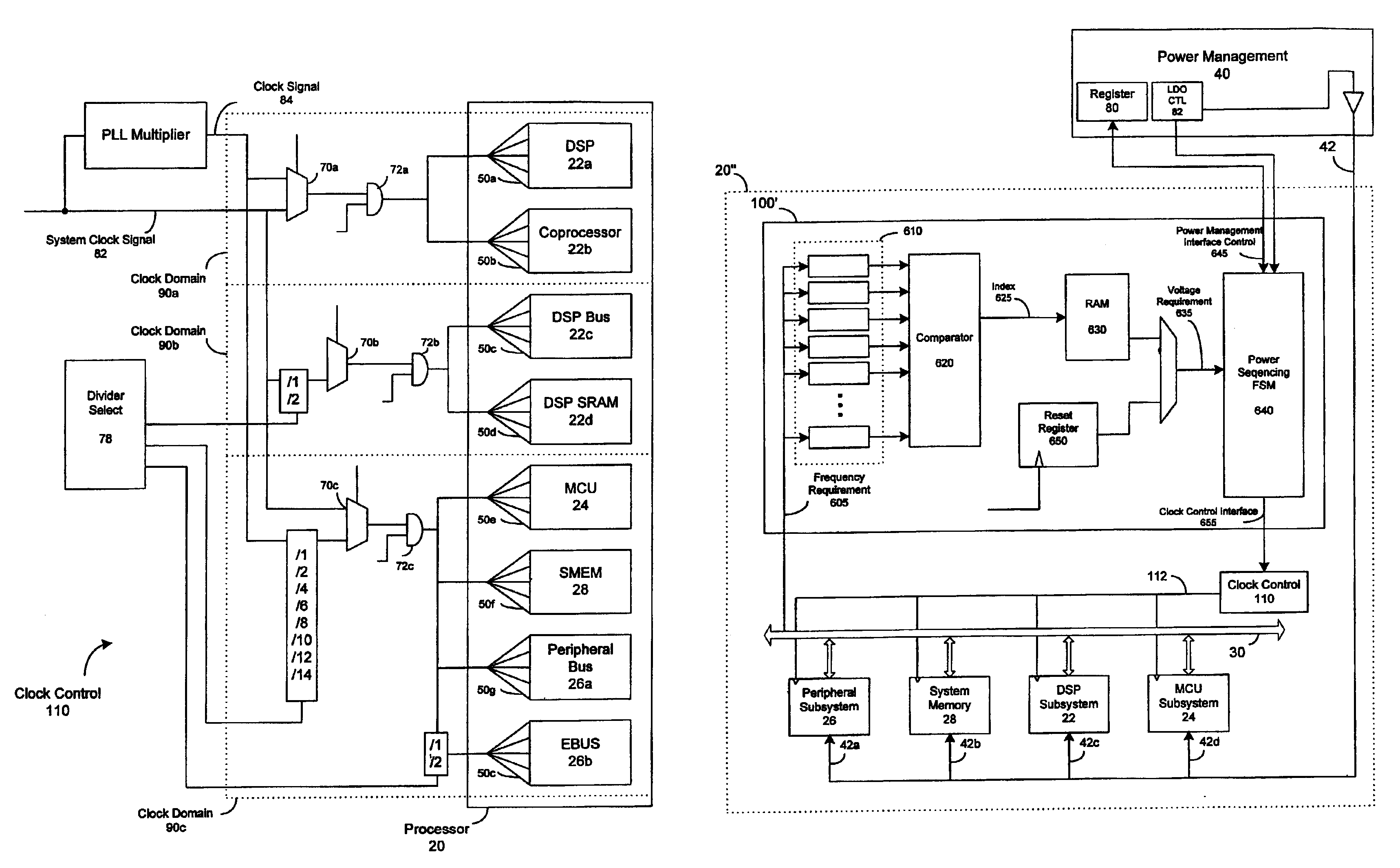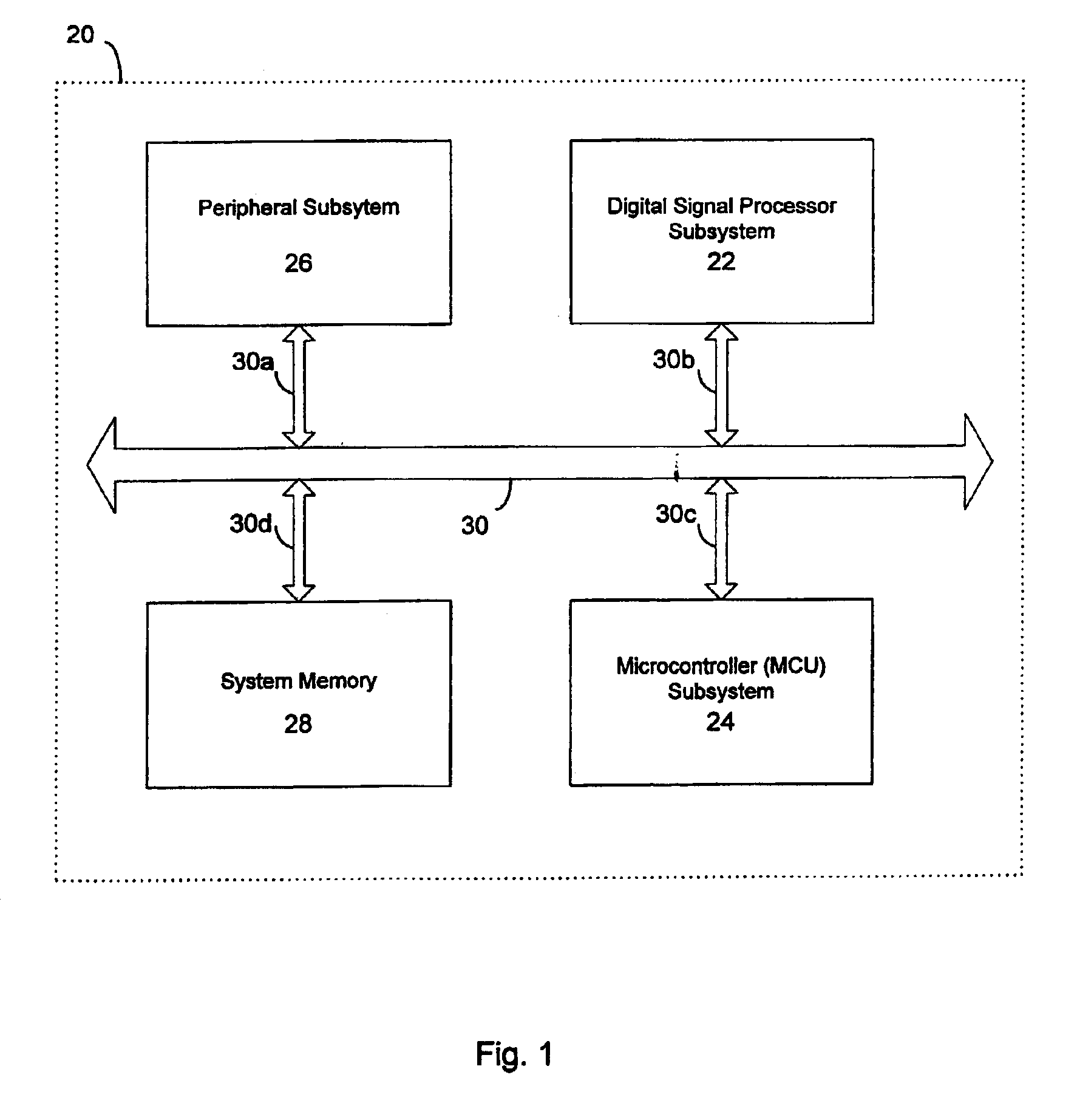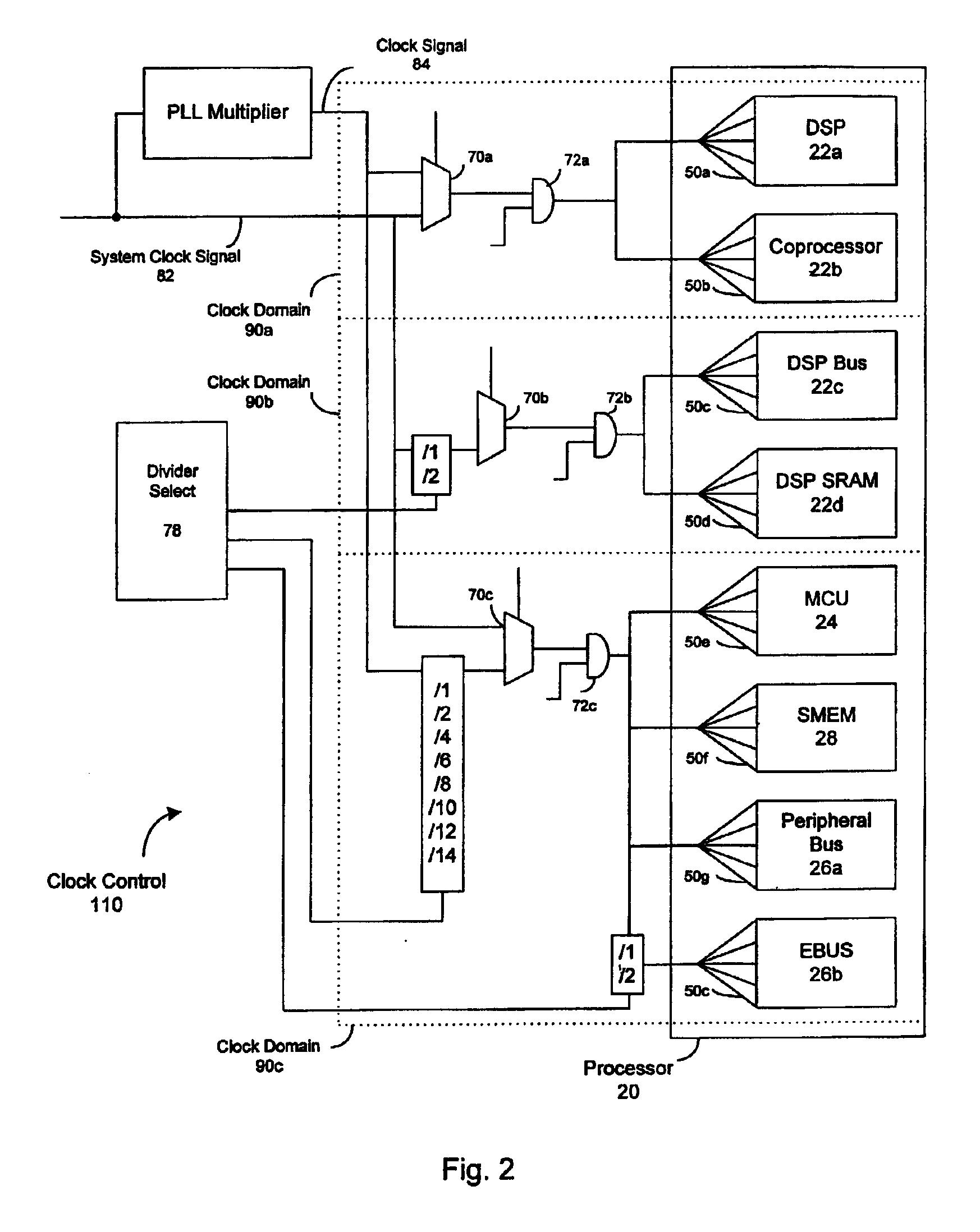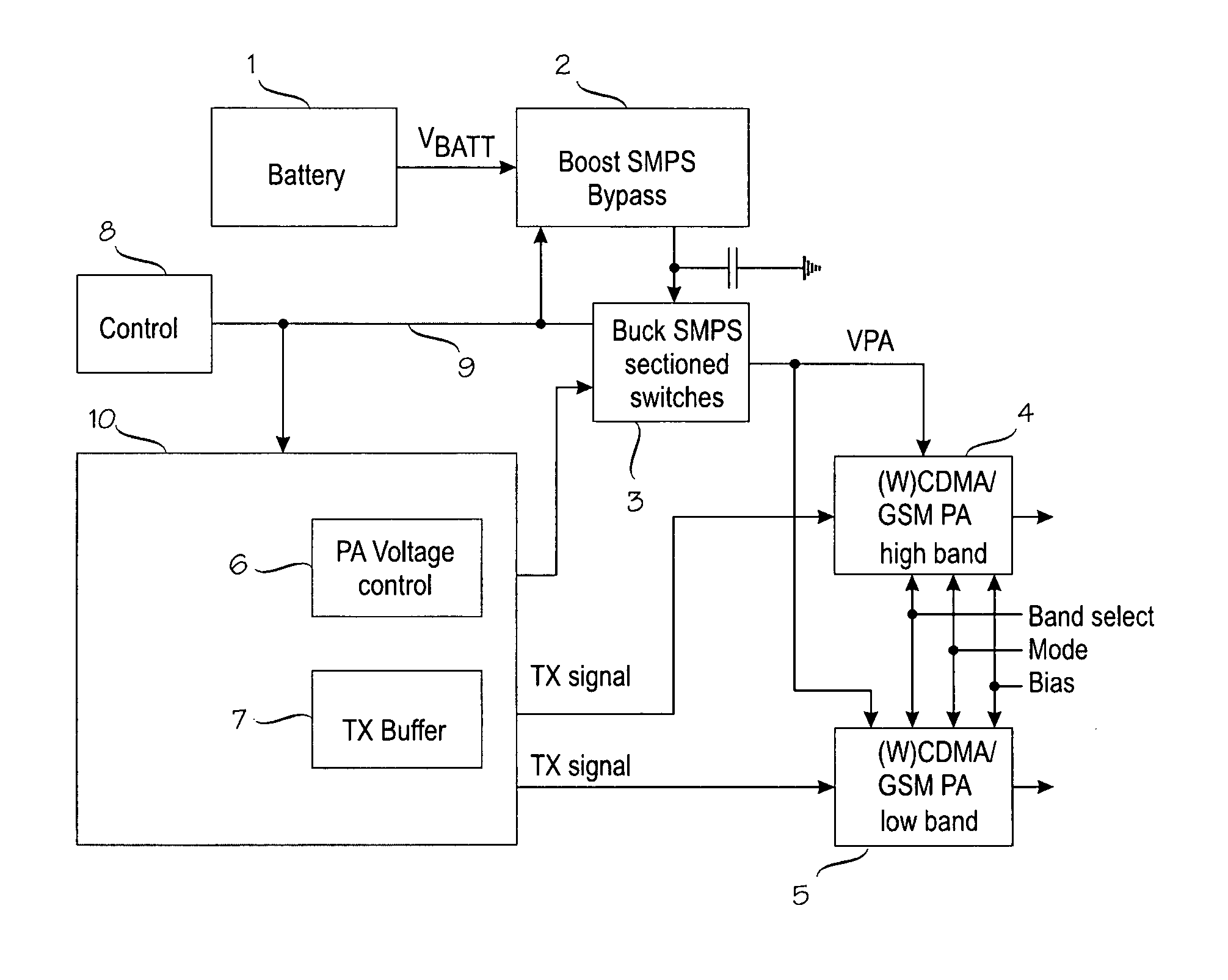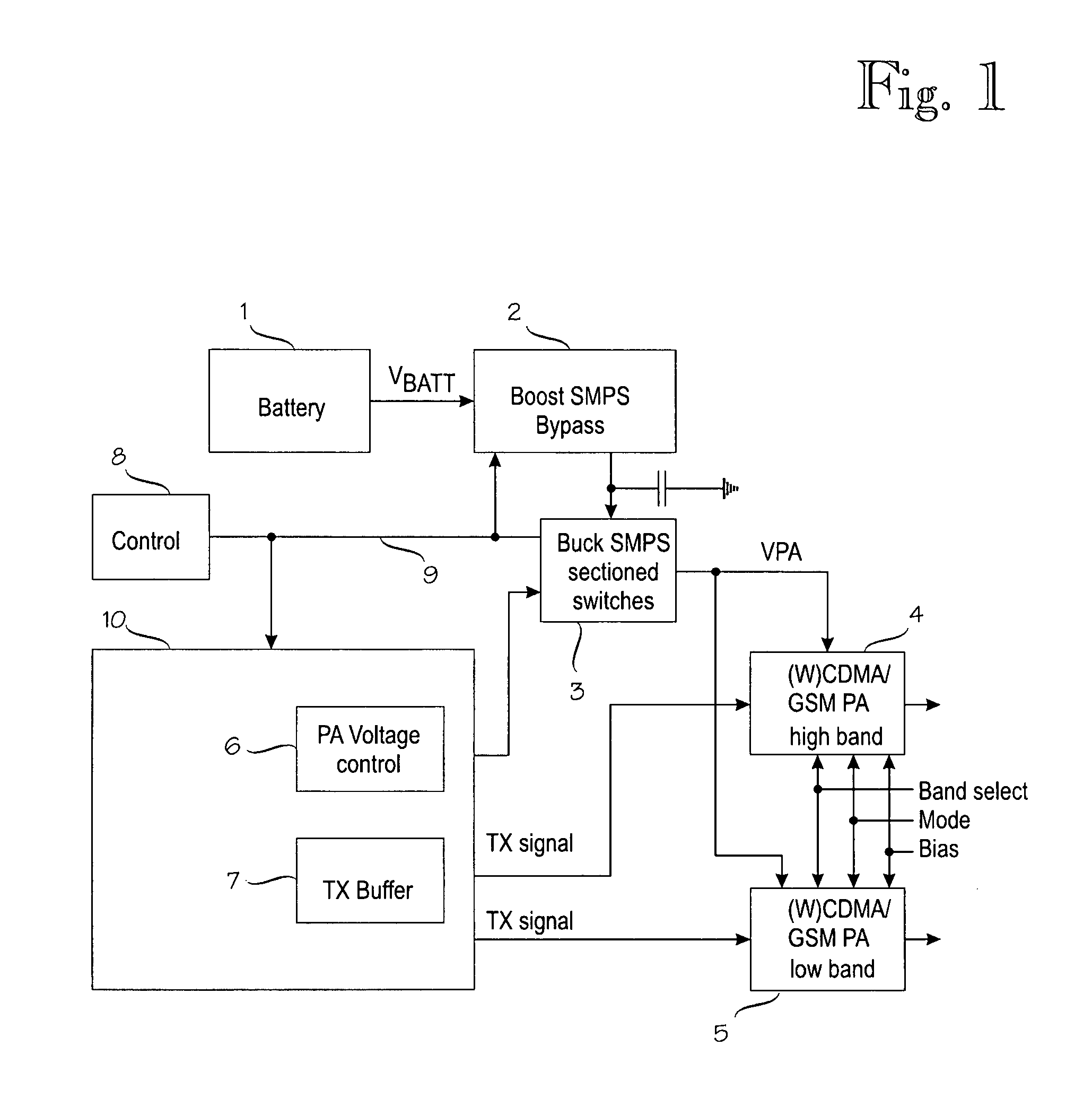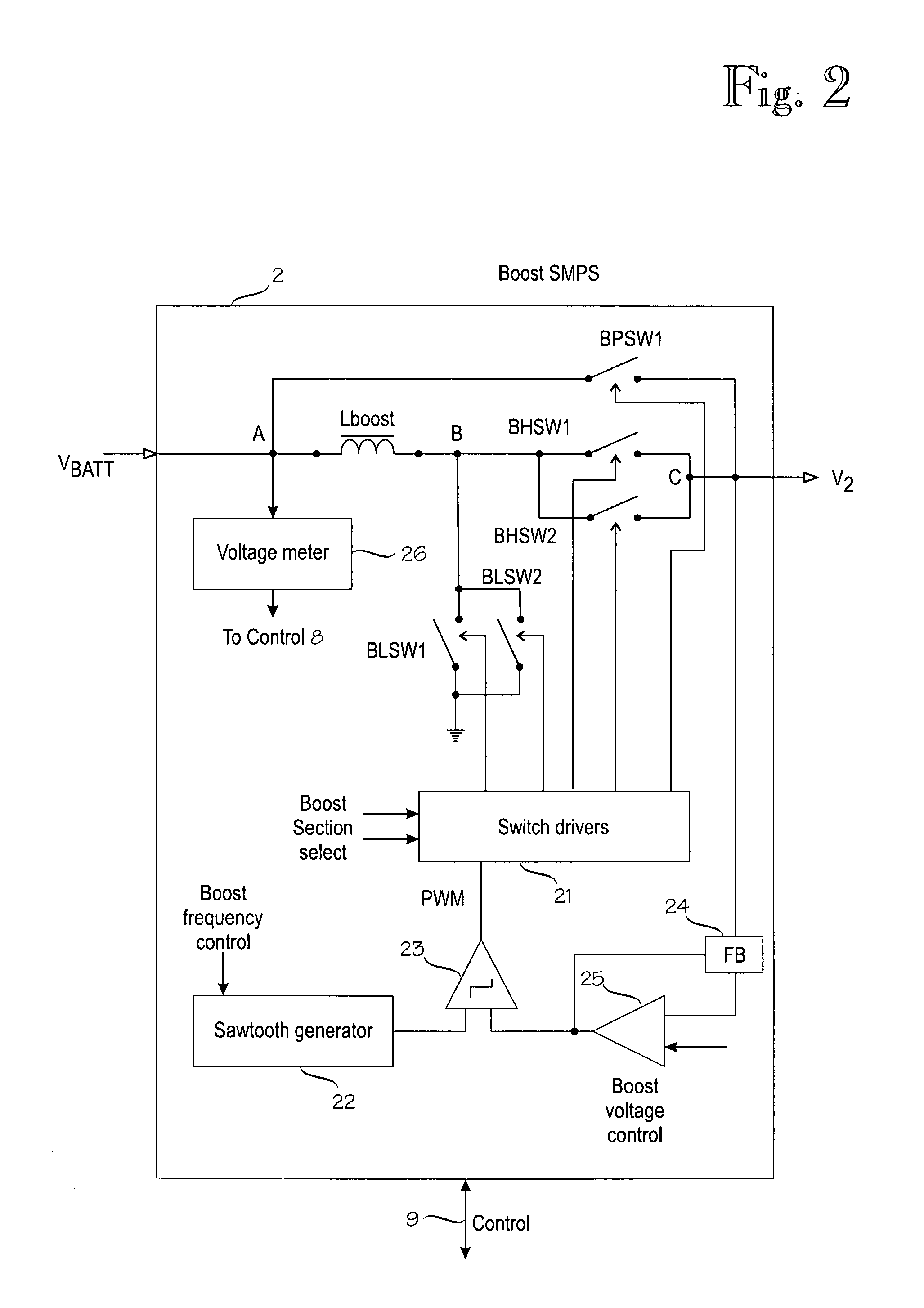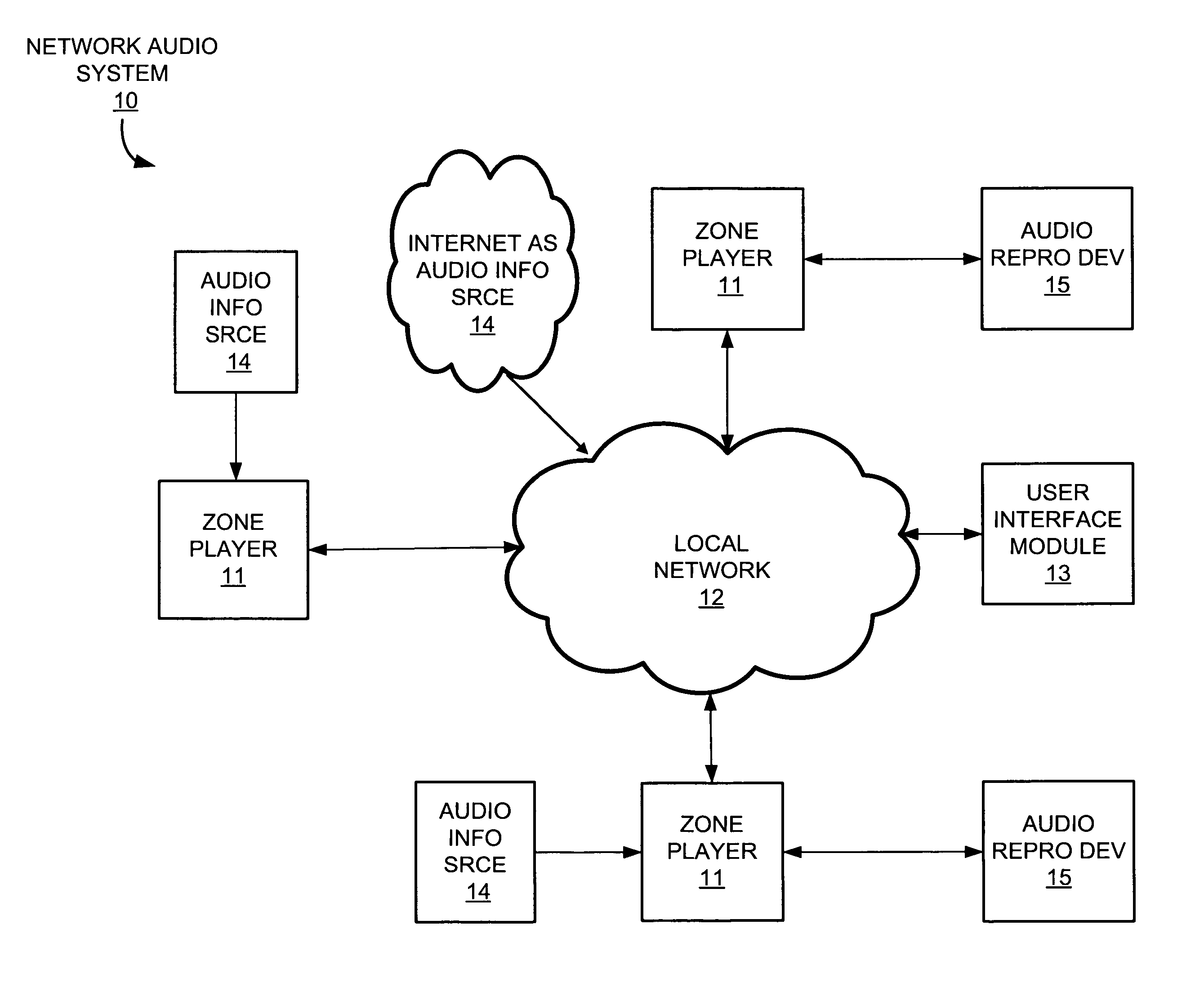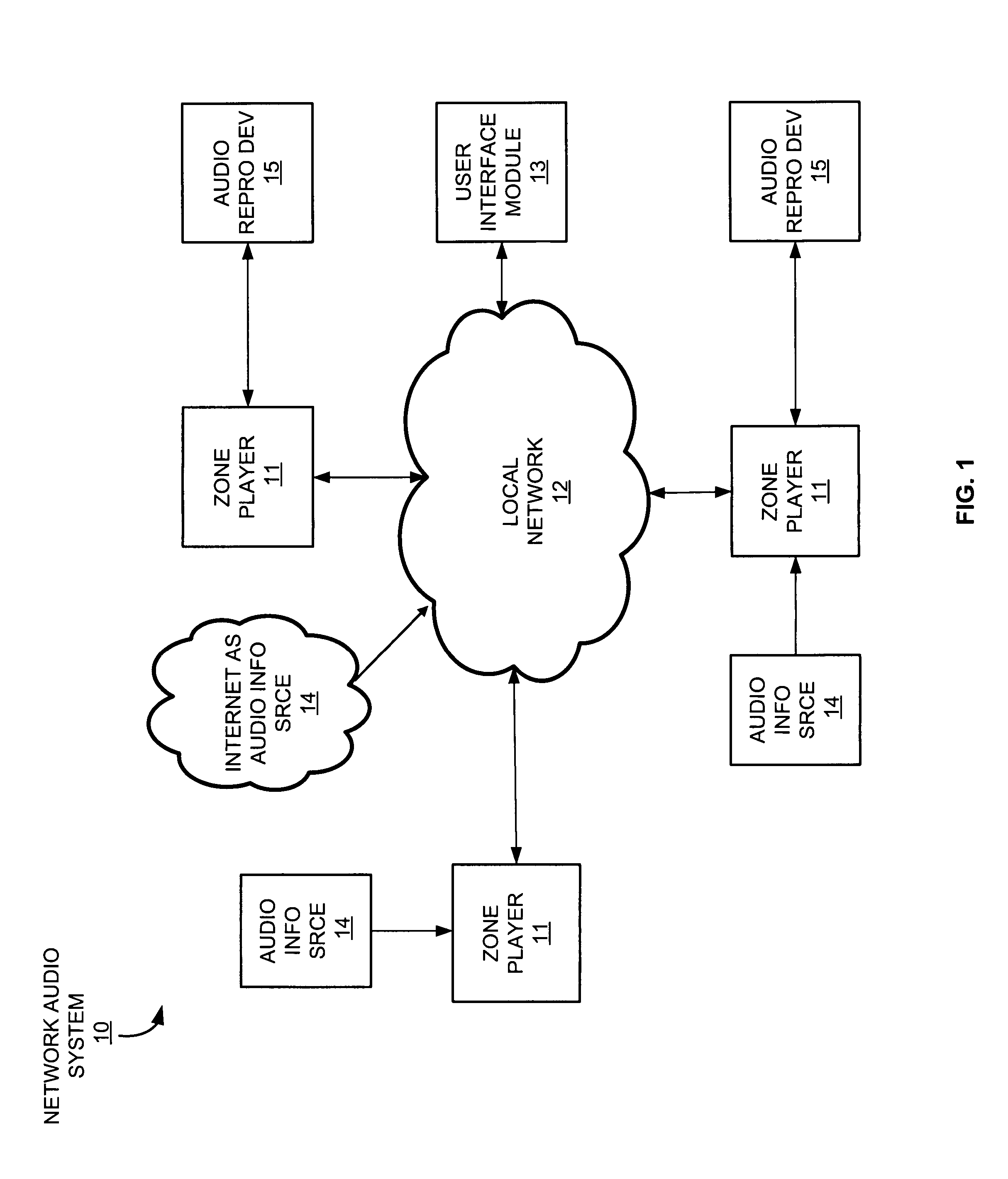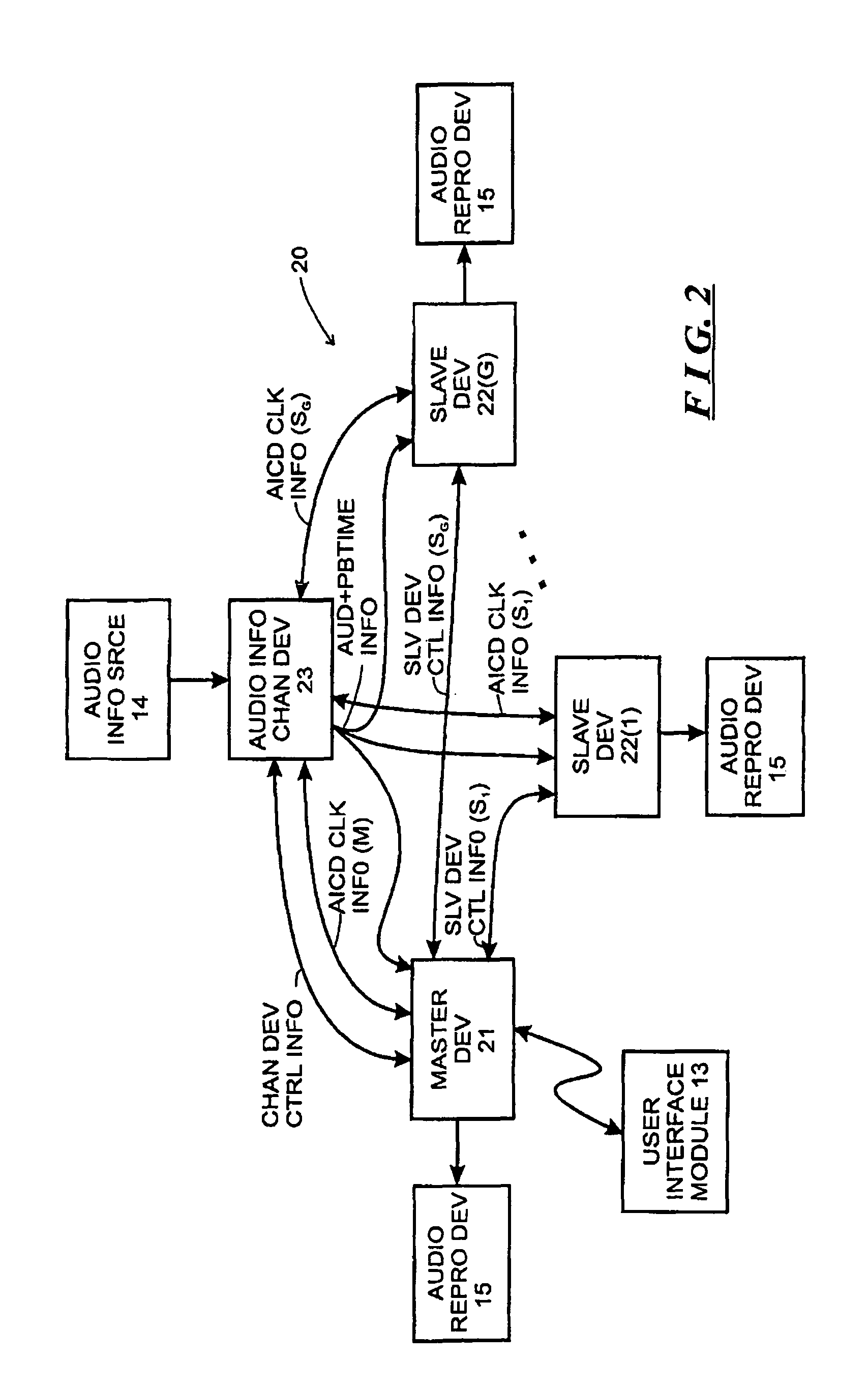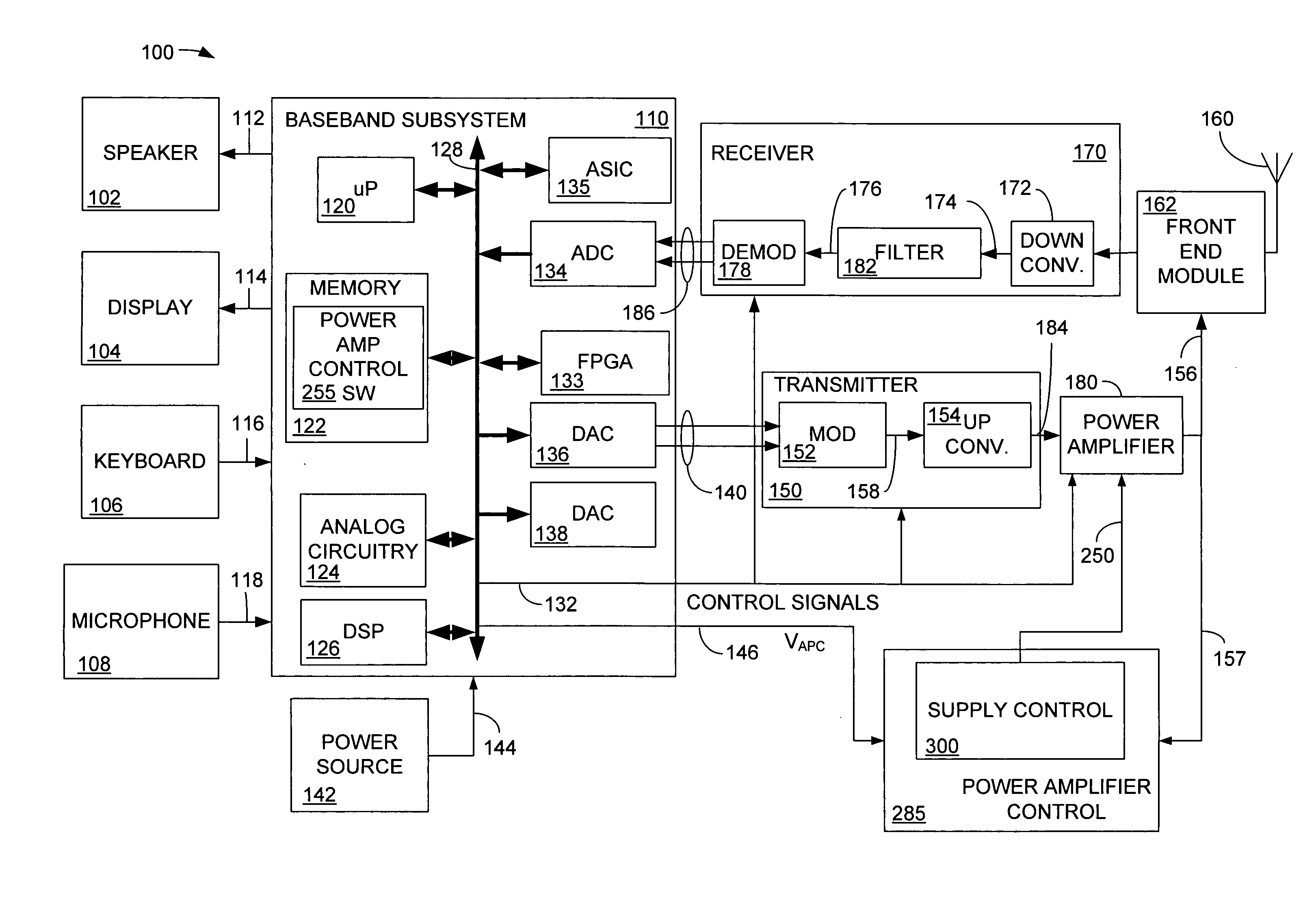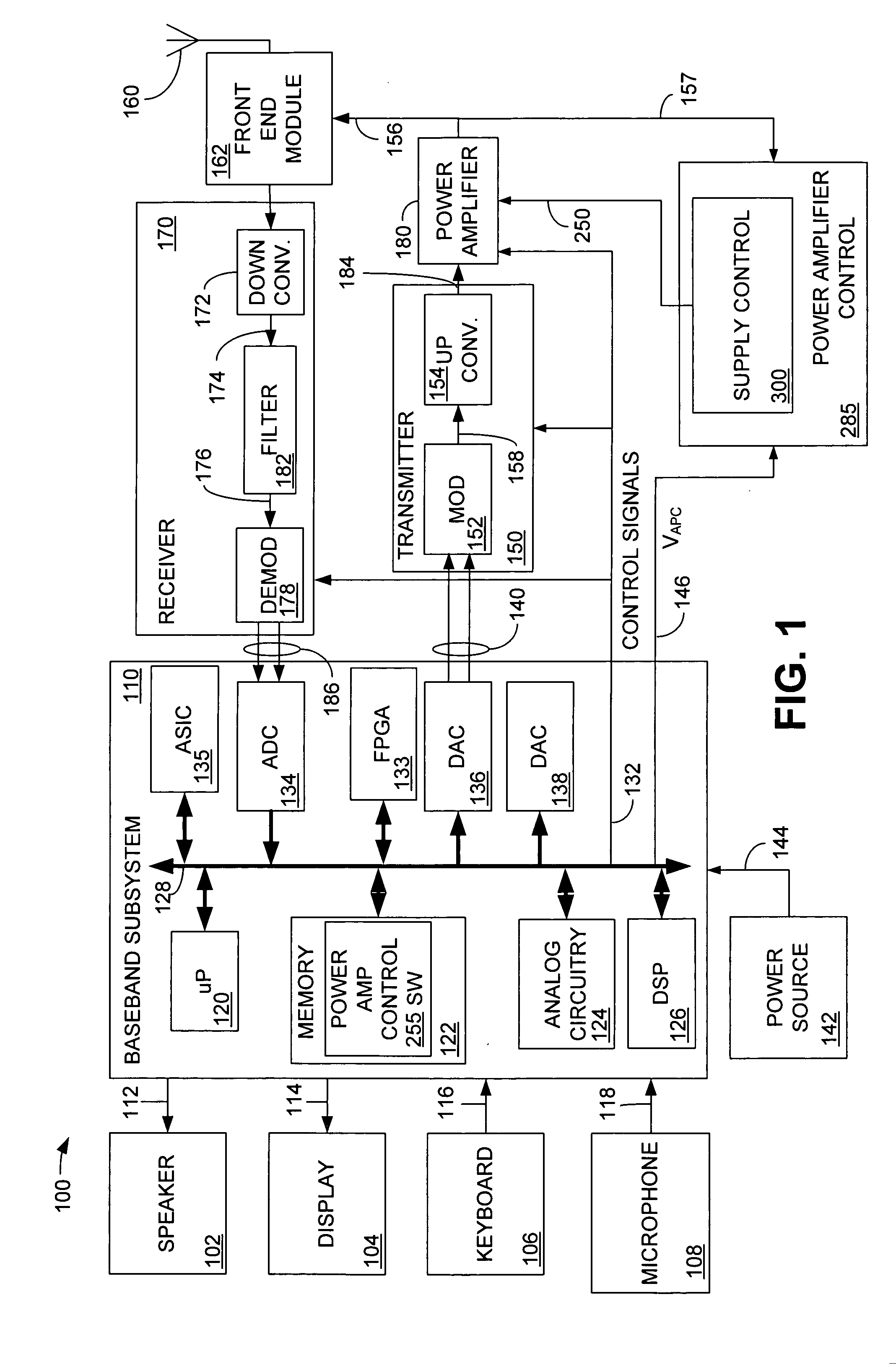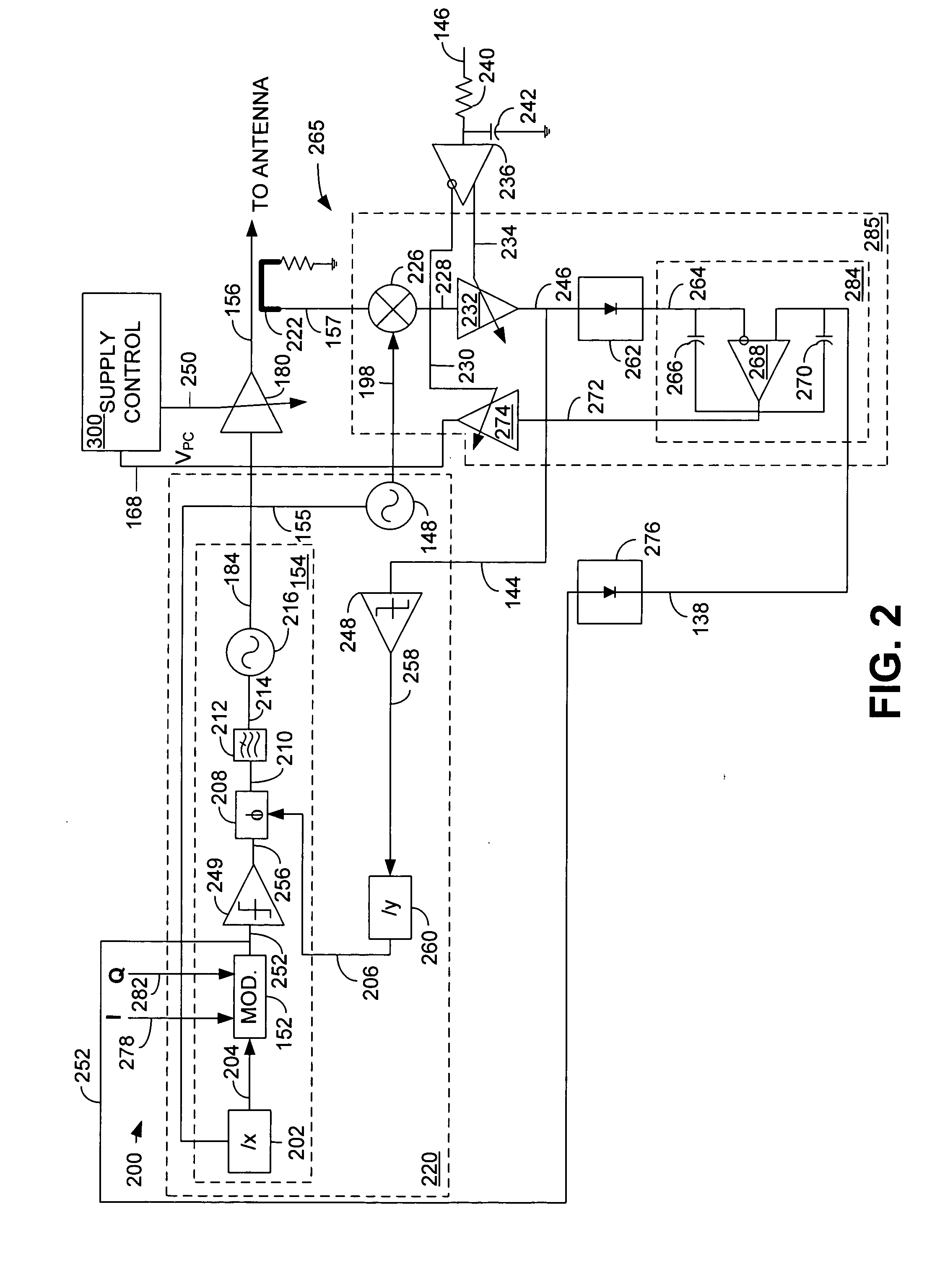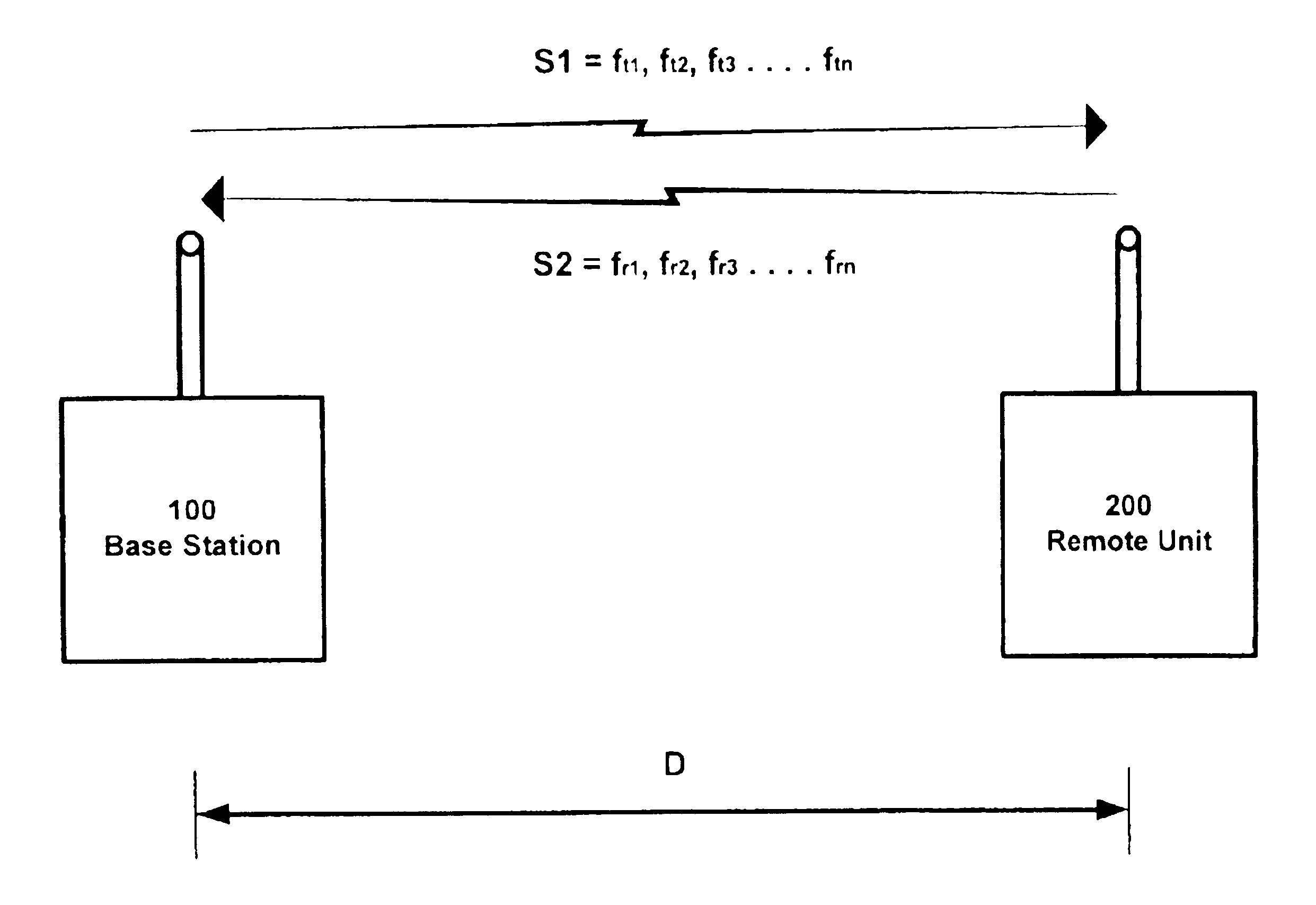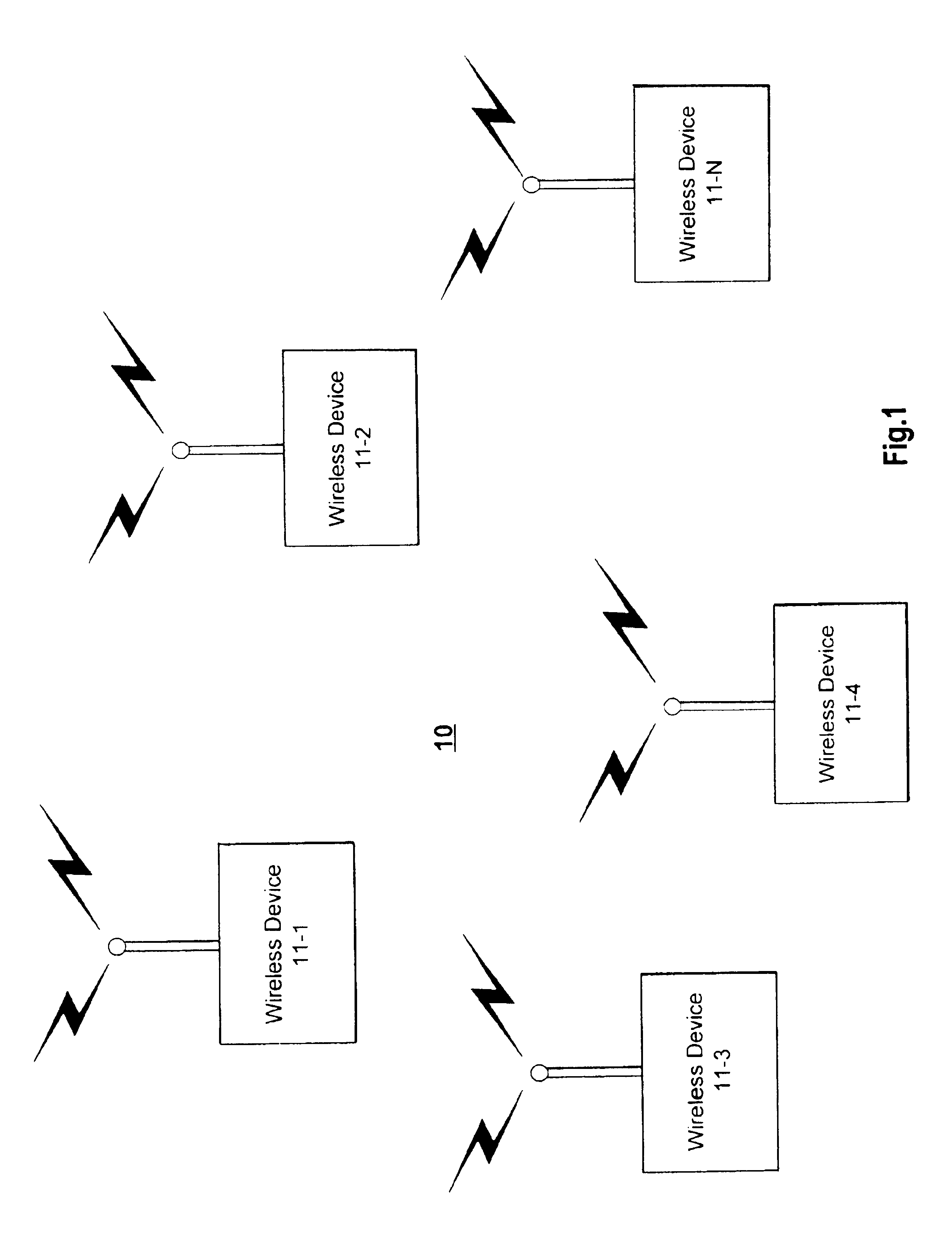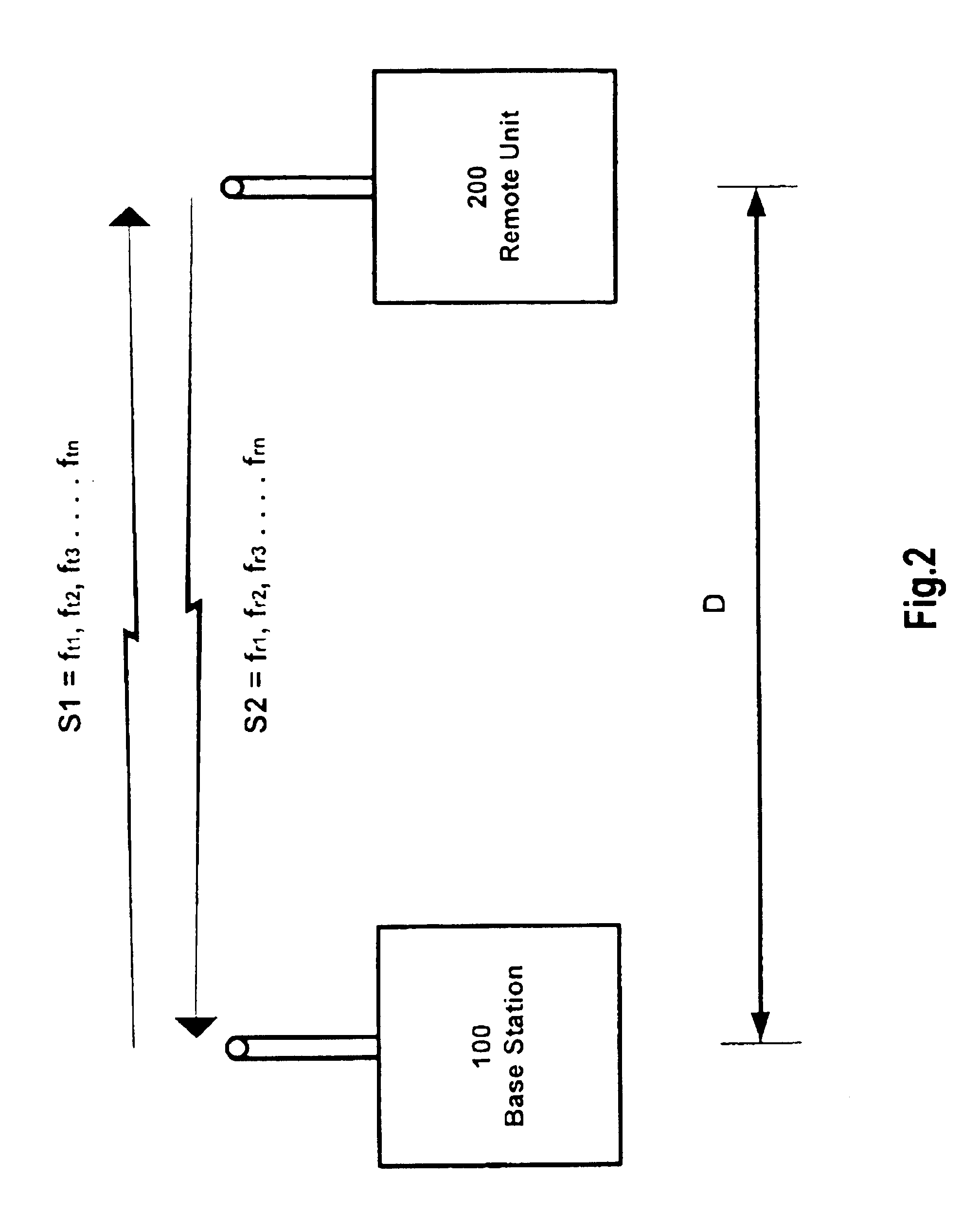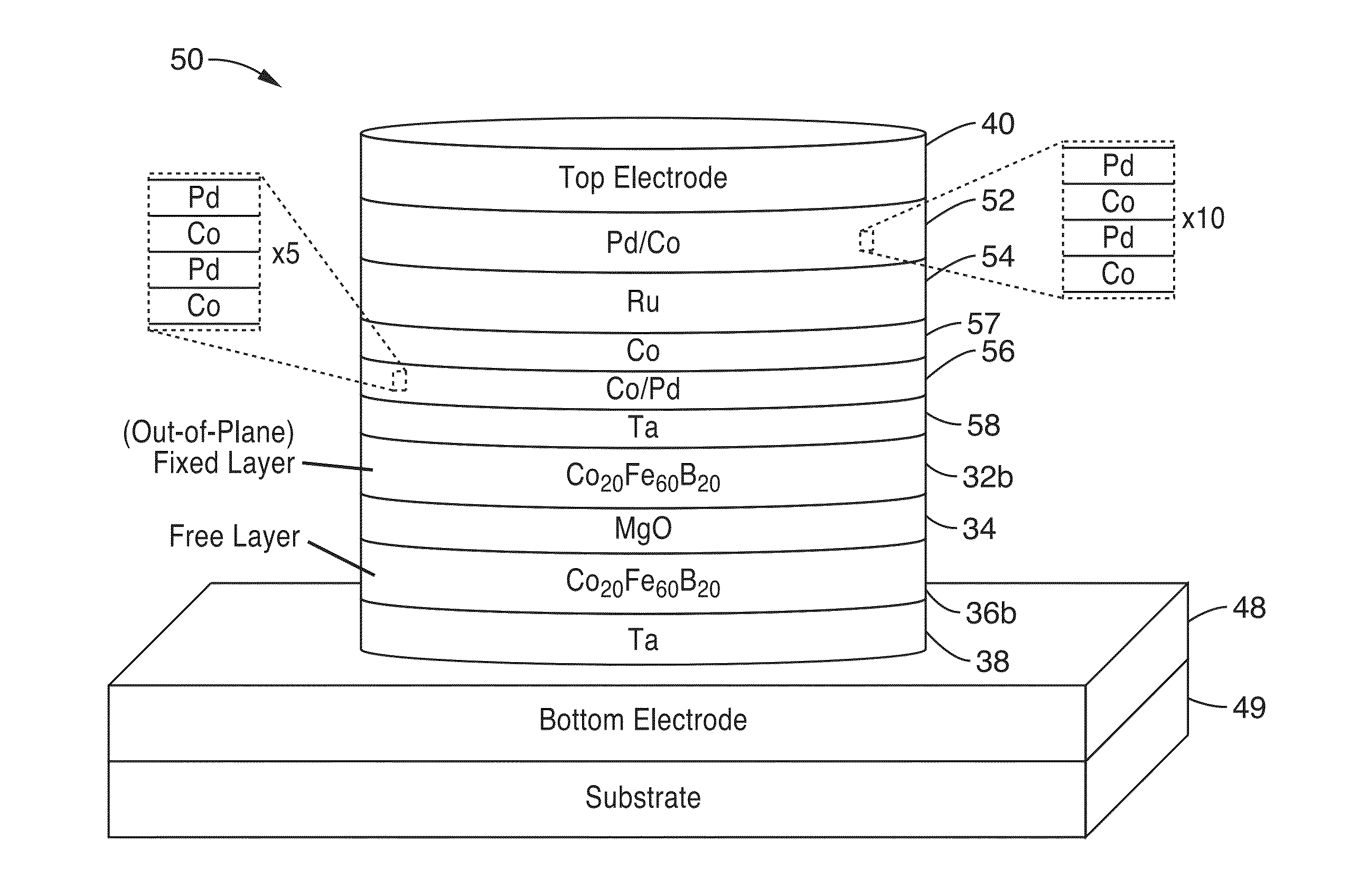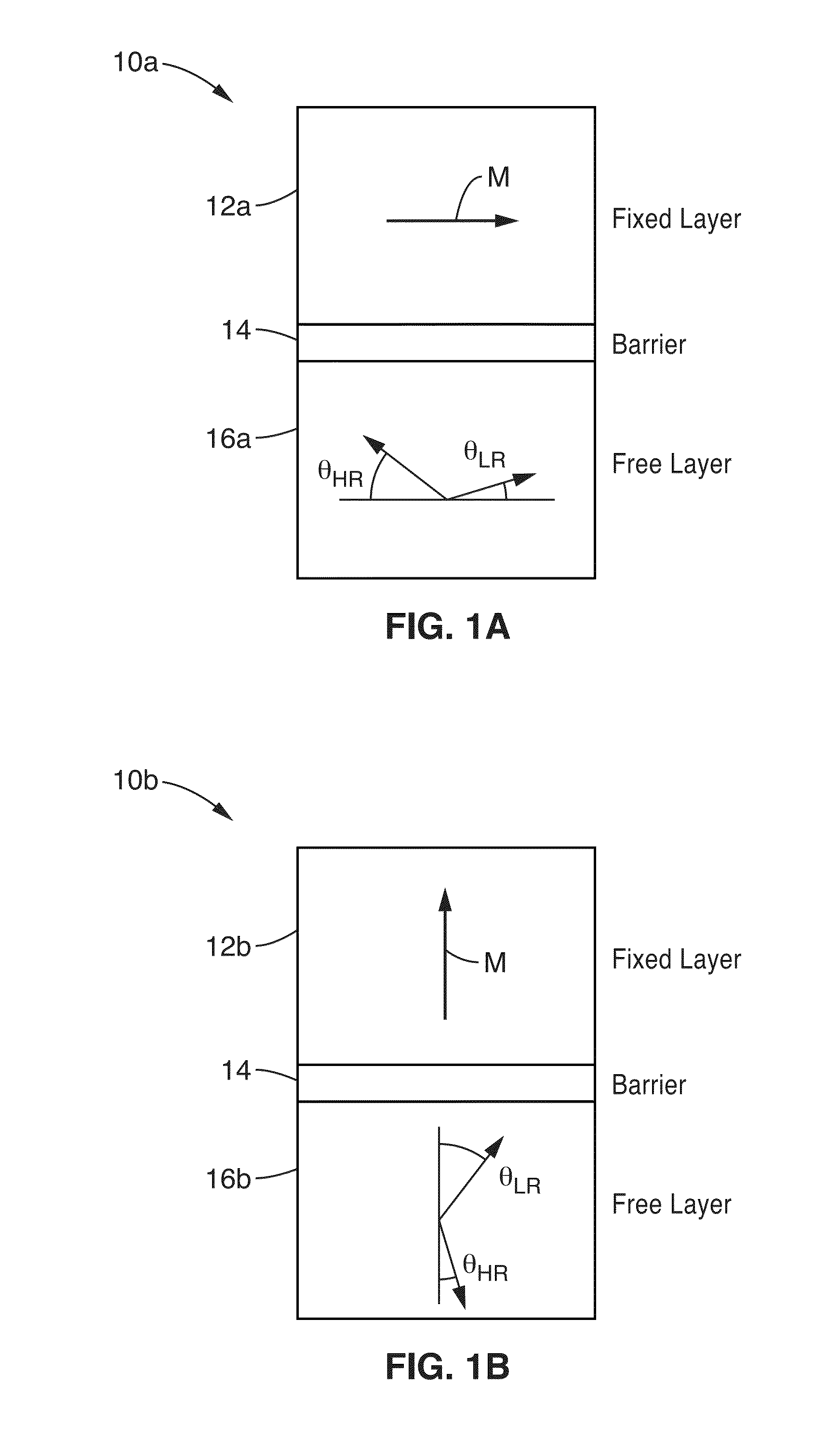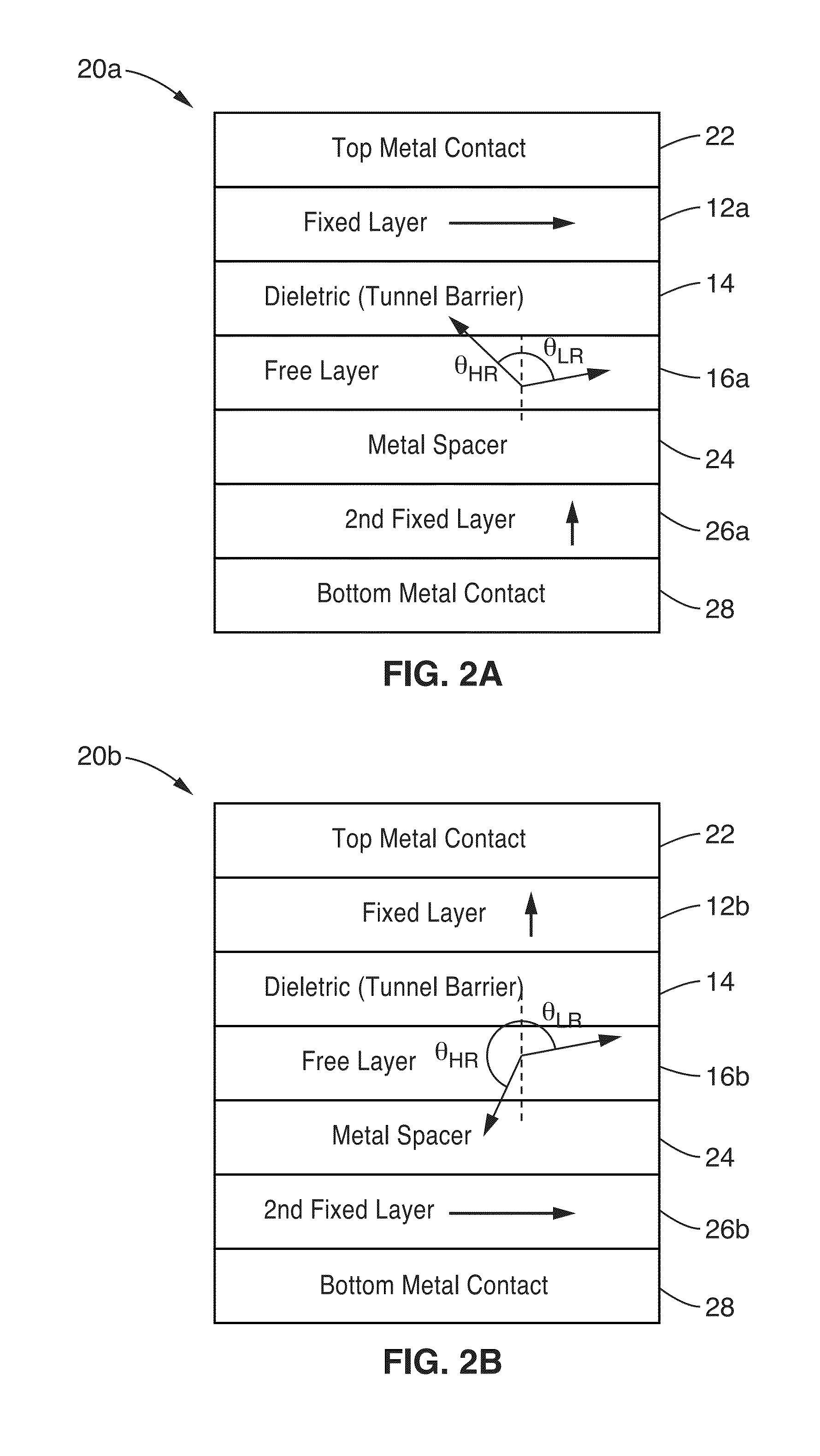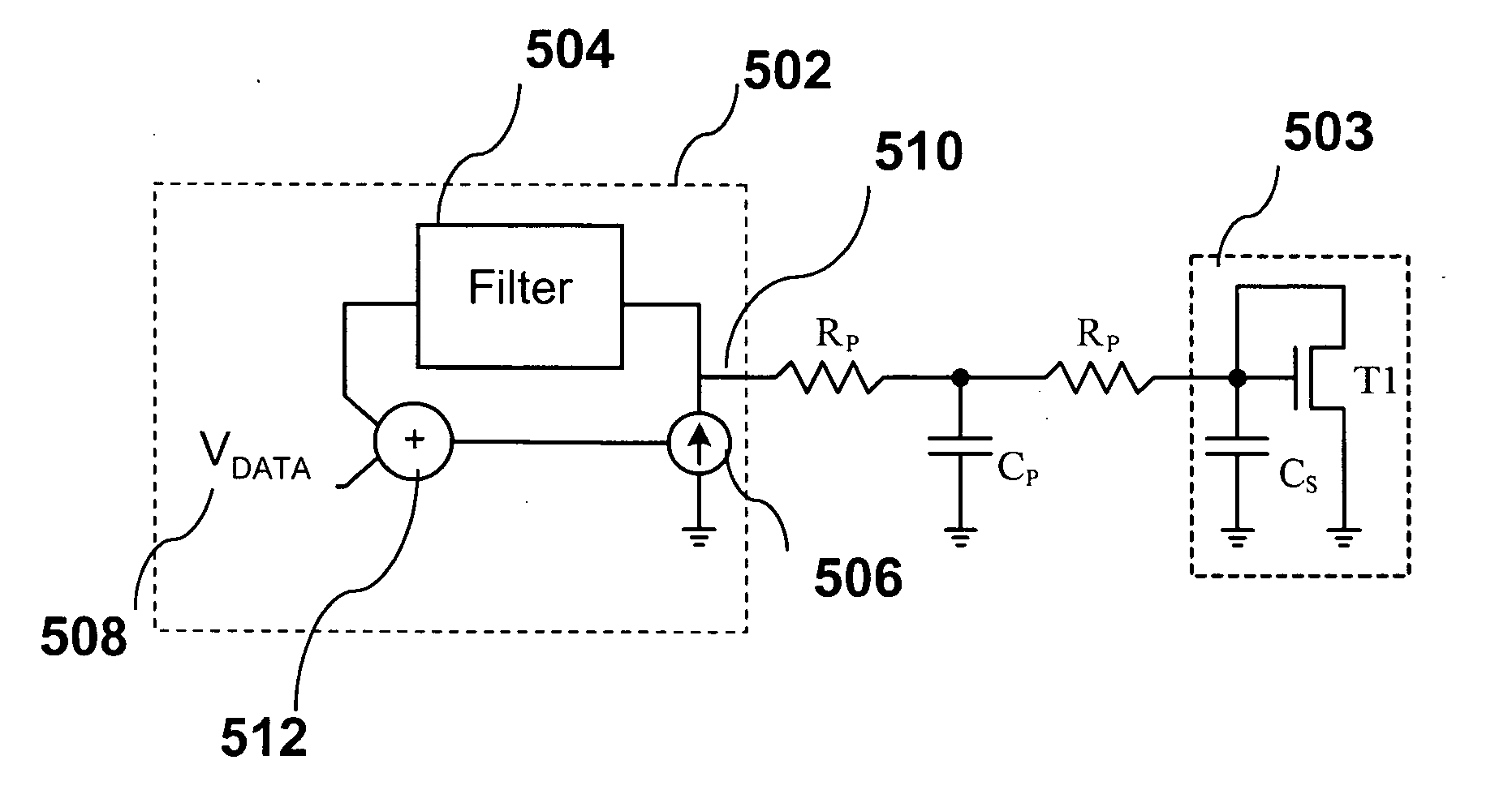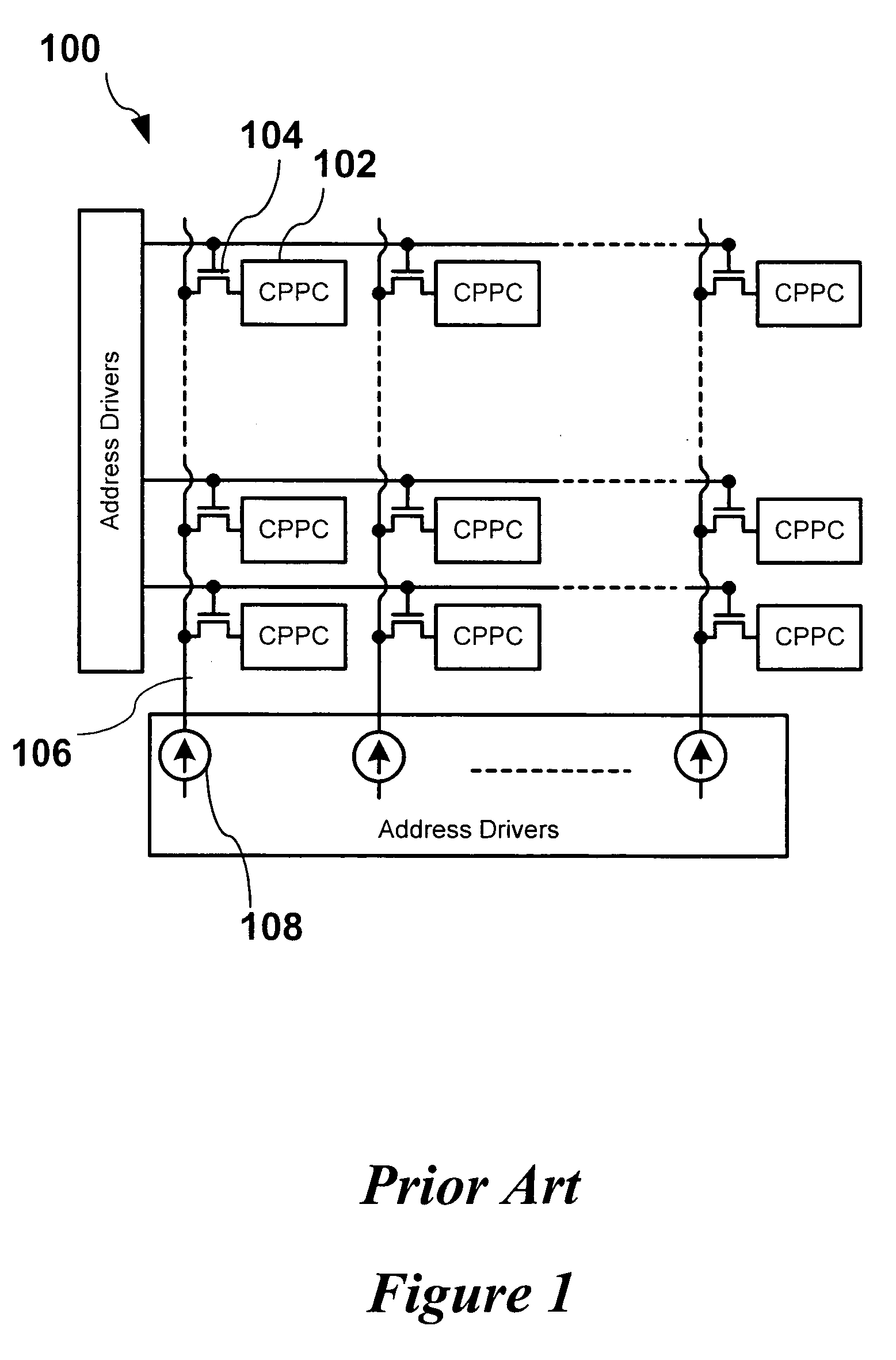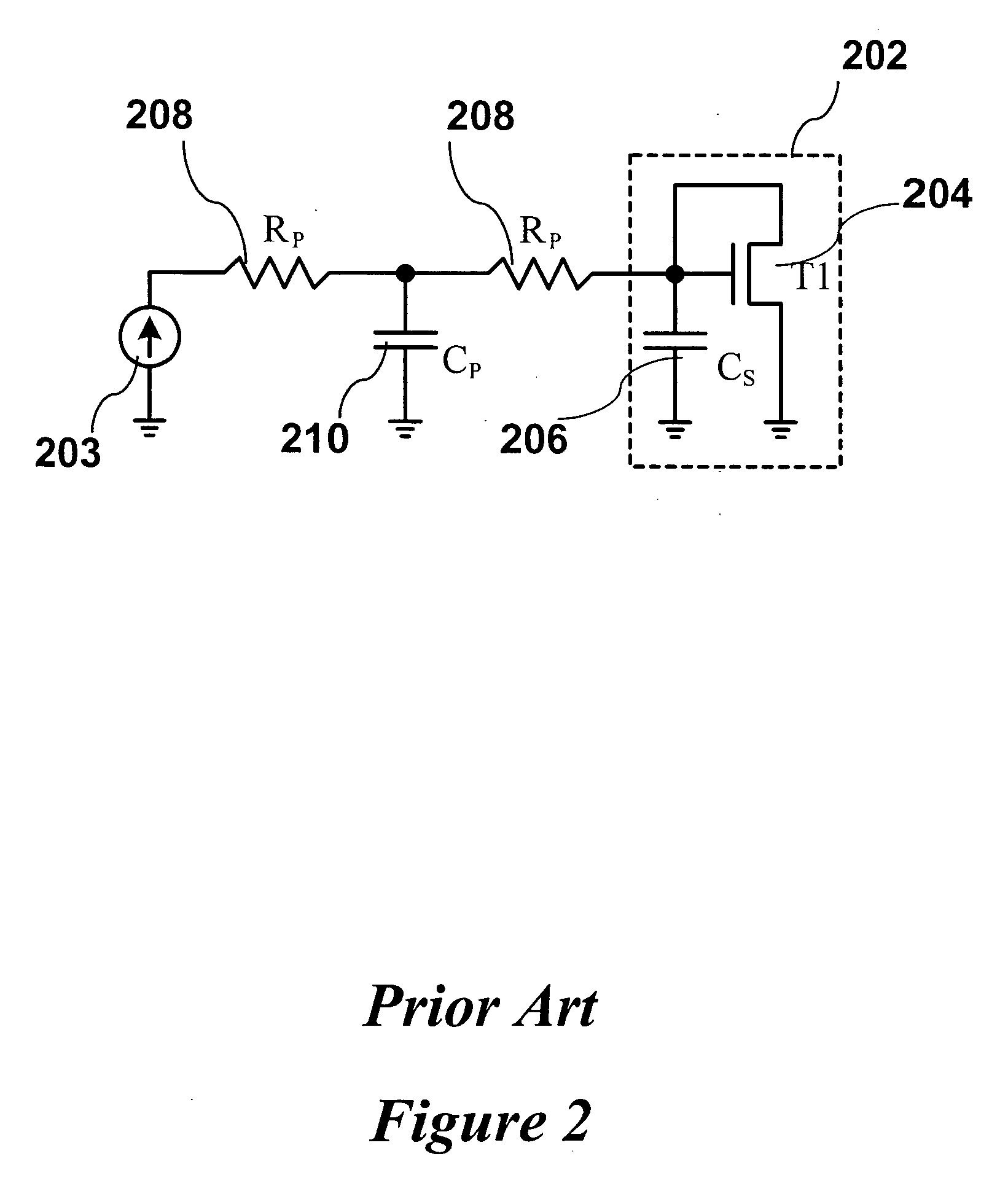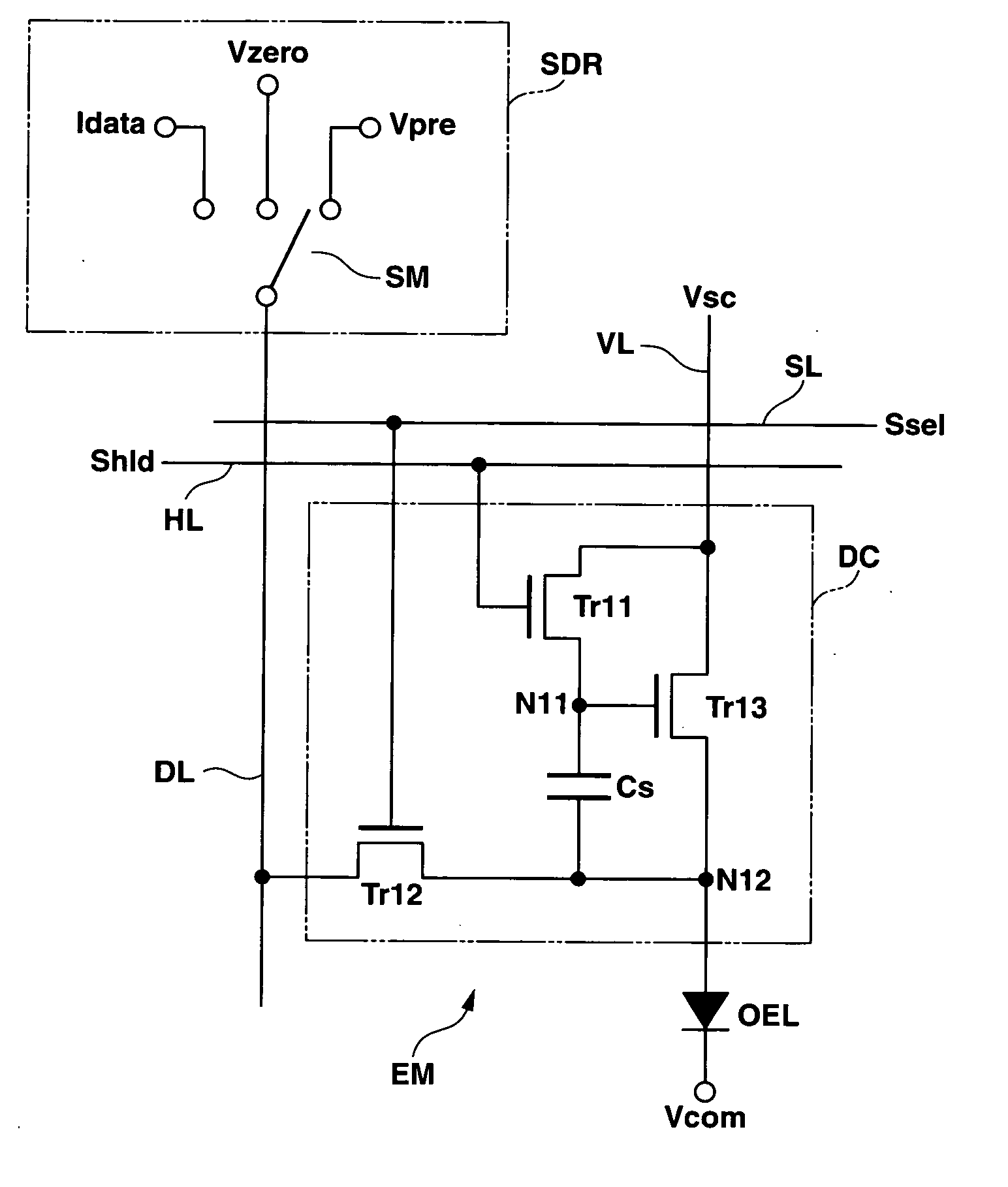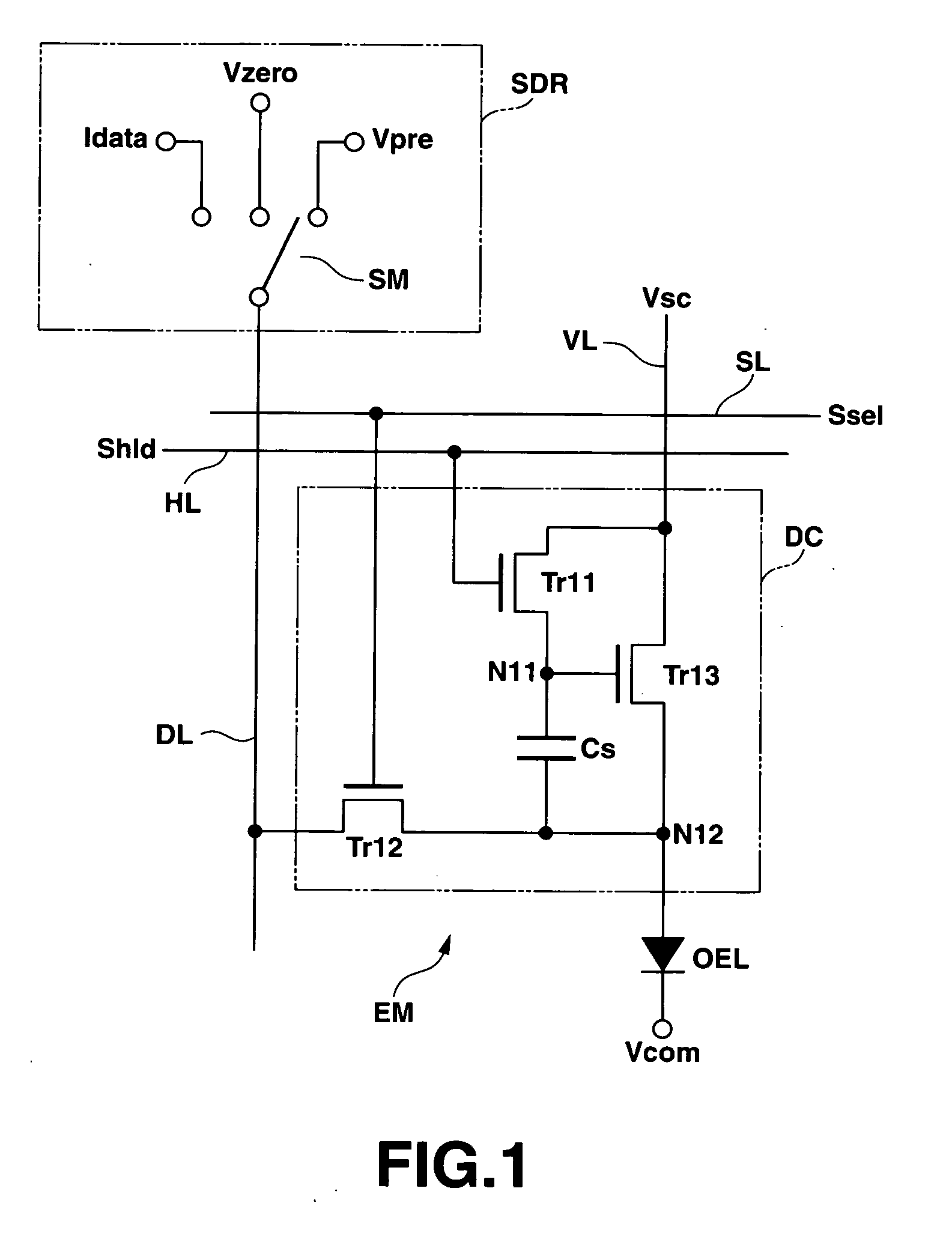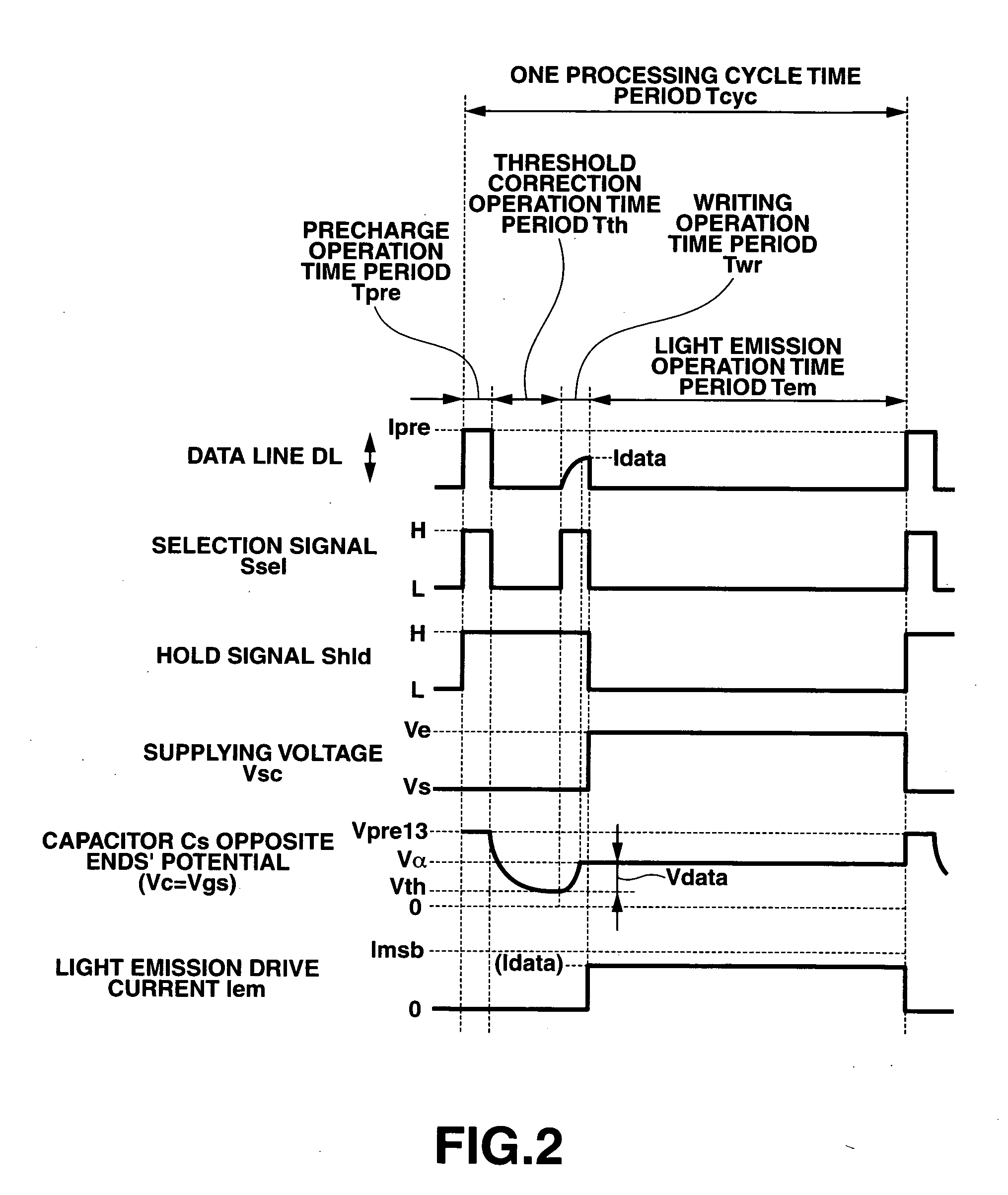Patents
Literature
14397 results about "Voltage control" patented technology
Efficacy Topic
Property
Owner
Technical Advancement
Application Domain
Technology Topic
Technology Field Word
Patent Country/Region
Patent Type
Patent Status
Application Year
Inventor
Electrosurgical instrument and method of use
ActiveUS7087054B2Reduce conductancePrevent any substantial dehydrationElectrotherapySurgical instruments for heatingEngineeringMedical device
An electrosurgical medical device and method for creating thermal welds in engaged tissue. In one embodiment, at least one jaw of the instrument defines a tissue engagement plane that carries a recessed central portion. In another embodiment, the controller coupled to the Rf source is adapted to switch from a power control operational mode to a voltage controlled operational mode at a selected transition impedance level.
Owner:ETHICON ENDO SURGERY INC
Battery assembly for battery-powered surgical instruments
ActiveUS8663262B2Alter functionAlter performanceSurgical instruments for heatingCell component detailsElectrical batteryVoltage control
A battery assembly is used in battery-powered surgical instruments with handles having a battery chamber and different handle types. The battery assembly includes a housing having an exterior shape formed to removably connect with the battery chamber of the handles and a voltage-control circuit. The housing has at least one energy storage cell operable to power a signal generation assembly of the surgical instruments and a battery / handle interface having a plurality of connectors shaped to mate with a plurality of corresponding connectors within the battery chamber of the handles. The voltage-control circuit is operable to communicatively couple with and provide power to the signal generation assembly, detect which one of the handle types is connected to the housing, provide a first output in response to a detection of a first handle type, and provide at least a second output in response to a detection of a second handle type.
Owner:COVIDIEN AG
Cordless medical cauterization and cutting device
ActiveUS8377059B2Precise positioningSufficient forceCatheterSurgical instrument detailsRadio frequency signalActuator
A cordless surgical device includes a modular battery, a radio-frequency signal generating assembly, a surgical handle and an interchangeable circuit casing. The RF signal generating assembly includes RF-signal-generating circuitry, a voltage-control circuit and an external output. The voltage circuit is configured to control an output of the RF-signal-generating circuitry. The handle is configured to support a bipolar end effector having jaws with bipolar contacts and a cutting blade disposed between the jaws. The handle includes leads operable to receive RF signals from the external output and defines an aseptically sealable battery-holding compartment configured to hold the battery. The circuit casing is configured to house the RF signal generating assembly and includes a securing connection adapted to couple the external output of the RF signal generating assembly to the leads. The external output is operable to impart RF signals to the handle when the circuit casing connects to the handle.
Owner:COVIDIEN AG
LED brightness control system for a wide-range of luminance control
ActiveUS6987787B1Improve the level ofReduce brightnessLaser detailsElectroluminescent light sourcesControl signalControl system
The LED brightness control system for a wide range of luminance control includes a brightness control module that provides a pulse width modulation (PWM) control signal and a peak current control signal. A pulse width modulation (PWM) converter circuit receives the PWM control signal and converts it to a PWM signal. A multiplier receives the PWM signal and the peak current control signal from the brightness control module and multiplies the same to provide a light emitting diode (LED) current control signal with a variable “on” time as well as variable “on” level. A voltage-controlled current source utilizes the LED current control signal and an LED current feedback signal for providing an LED current. An LED illuminator array receives the LED current. A current sensing element connected to the LED illuminator array for providing an LED current feedback signal representing LED peak current. The voltage-controlled current source controls a drive voltage to the LED illuminator array at a commanded level.
Owner:ROCKWELL COLLINS INC
Methods and systems for control of microfluidic devices
InactiveUS20020143437A1Overcome deficienciesFixed microstructural devicesVolume/mass flow measurementControl systemLow voltage
The present invention provides control methods, control systems, and control software for microfluidic devices that operate by moving discrete micro-droplets through a sequence of determined configurations. Such microfluidic devices are preferably constructed in a hierarchical and modular fashion which is reflected in the preferred structure of the provided methods and systems. In particular, the methods are structured into low-level device component control functions, middle-level actuator control functions, and high-level micro-droplet control functions. Advantageously, a microfluidic device may thereby be instructed to perform an intended reaction or analysis by invoking micro-droplet control function that perform intuitive tasks like measuring, mixing, heating, and so forth. The systems are preferably programmable and capable of accommodating microfluidic devices controlled by low voltages and constructed in standardized configurations. Advantageously, a single control system can thereby control numerous different reactions in numerous different microfluidic devices simply by loading different easily understood micro-droplet programs.
Owner:HANDYLAB
Waveform adaptive ultra-wideband transmitter
A waveform adaptive transmitter that conditions and / or modulates the phase, frequency, bandwidth, amplitude and / or attenuation of ultra-wideband (UWB) pulses. The transmitter confines or band-limits UWB signals within spectral limits for use in communication, positioning, and / or radar applications. One embodiment comprises a low-level UWB source (e.g., an impulse generator or time-gated oscillator (fixed or voltage-controlled)), a waveform adapter (e.g., digital or analog filter, pulse shaper, and / or voltage variable attenuator), a power amplifier, and an antenna to radiate a band-limited and / or modulated UWB or wideband signals. In a special case where the oscillator has zero frequency and outputs a DC bias, a low-level impulse generator impulse-excites a bandpass filter to produce an UWB signal having an adjustable center frequency and desired bandwidth based on a characteristic of the filter. In another embodiment, a low-level impulse signal is approximated by a time-gated continuous-wave oscillator to produce an extremely wide bandwidth pulse with deterministic center frequency and bandwidth characteristics. The UWB signal may be modulated to carry multi-megabit per second digital data, or may be used in object detection or for ranging applications. Activation of the power amplifier may be time-gated in cadence with the UWB source thereby to reduce inter-pulse power consumption. The UWB transmitter is capable of extremely high pulse repetition frequencies (PRFs) and data rates in the hundreds of megabits per second or more, frequency agility on a pulse-to-pulse basis allowing frequency hopping if desired, and extensibility from below HF to millimeter wave frequencies.
Owner:ZEBRA TECH CORP
Connection cable and method for activating a voltage-controlled generator
ActiveUS7834484B2Batteries circuit arrangementsIncorrect coupling preventionSurgical operationElectrosurgery
A connection cable is disclosed for controlling a voltage-controlled generator such as an electrosurgery generator from a controlling device such as a robotic surgery system. The cable includes a first connector adapted to connect to a voltage-controlled generator and a second connector adapted to connect to a controlling device. Within the cable is a voltage divider interdisposed between the first connector and the second connector. The voltage divider is configured to divide a reference voltage provided by the voltage-controlled generator into at least one control voltage which is selectable by the controlling device. The cable additionally includes a plurality of electrical wires which operatively connect the first connector, the second connector and the voltage divider. During robotic electrosurgery, said operating parameters can be actuated by a surgeon operating at the robotic surgical system console, which causes a corresponding control voltage to be switched to a control voltage input on an electrosurgery generator, which, in turn, generates a corresponding electrosurgical signal in response thereto.
Owner:COVIDIEN LP
Low level light therapy method and apparatus with improved wavelength, temperature and voltage control
InactiveUS6471716B1Energy penetrationLow costDentistrySurgical instrument detailsEngineeringVoltage source
A photo-therapy device emits photo-therapeutic radiation to treat. living tissue. The device incorporates an array of emitters, the photo emissions of which is dependent on their temperature. Temperature feedback is provided to a voltage supply that supplies current to the emitters, to regulate the voltage supply level and the temperature of the emitters. Additionally, the wavelength of the radiation is dependent on the temperature of the emitters, so the wavelength is moved closer to an optimum wavelength for absorption by the tissue by controlling the temperature of the emitters. Furthermore, the useful life of the emitters is extended by pulsing the emitters on and off by sequentially applying an activation signal to one group of emitters at a time. Also, the device can operate on a wide range of voltage input levels since it utilizes a switching regulator, which can convert a voltage level in the range to the level required to drive the array of emitters. The photo-therapeutic infrared light may be used to treat insect bites and to relieve headaches in human beings. The infrared light emitters may be incorporated into a mouthpiece for treating gum tissues.
Owner:FOX SHERRY PERSONALLY
Method and device relating to supervision and control of an oscillator signal
InactiveUS6147560AEasy to controlEffective and accurate treatmentPulse automatic controlAngle modulation detailsPhysicsSelf adaptive
The present invention relates to methods and devices for such control and supervision of an oscillator signal from a controllable oscillator that is done mainly to control the frequency variation of the oscillator signal. According to the invention, the controllable oscillator is controlled by a controlling voltage, which in turn is modified by a correction signal, generated in a control loop. A time discrete representation of a secondary phase is generated in the control loop, the secondary phase corresponding to a frequency being the difference between the frequency of the oscillator signal and a constant frequency. A time discrete approximation signal is generated in dependence of the time discrete representation of the secondary phase. A time discrete error signal is generated in dependence of the time discrete approximation signal, the time discrete error signal indicating the difference between the actual frequency slope of the oscillator signal and a desired frequency slope. The correction signal is generated in dependence of the time discrete error signal. The control loop can also be adaptive, meaning that data from one control sequence is being used in a later control sequence.
Owner:TELEFON AB LM ERICSSON (PUBL)
System and Method for Providing Voltage Regulation in a Power Distribution System
InactiveUS20090265042A1Mechanical power/torque controlDc network circuit arrangementsLow voltageDistribution power system
A system and method of regulating the voltage of the power supplied to a plurality of power customers via a power distribution system that includes low voltage power lines and medium voltage power lines is provided. In one embodiment, the method includes measuring the voltage of a plurality of low voltage power lines at a plurality locations in the power distribution system with a plurality of voltage monitoring devices; with the plurality of voltage monitoring devices, transmitting voltage data in real time to a remote computer system; receiving, with the computer system, the real time voltage data of the voltage measured from the voltage monitoring devices; comparing, with the computer system, the real time voltage data with a first threshold value; and if the real time voltage data is beyond the first threshold value, transmitting with the computer system a first voltage adjustment instruction to a voltage control device configured to adjust the voltage supplied to a low voltage power line.
Owner:S&C ELECTRIC
Ultra wideband data transmission system and method
InactiveUS6690741B1Amplitude-modulated carrier systemsAngle modulationBandpass filteringExtensibility
A data-modulated ultra wideband transmitter that modulates the phase, frequency, bandwidth, amplitude and / or attenuation of ultra-wideband (UWB) pulses. The transmitter confines or band-limits UWB signals within spectral limits for use in communication, positioning, and / or radar applications. One embodiment comprises a low-level UWB source (e.g., an impulse generator or time-gated oscillator (fixed or voltage-controlled)), a waveform adapter (e.g., digital or analog filter, pulse shaper, and / or voltage variable attenuator), a power amplifier, and an antenna to radiate a band-limited and / or modulated UWB or wideband signals. In a special case where the oscillator has zero frequency and outputs a DC bias, a low-level impulse generator impulse-excites a bandpass filter to produce an UWB signal having an adjustable center frequency and desired bandwidth based on a characteristic of the filter. In another embodiment, a low-level impulse signal is approximated by a time-gated continuous-wave oscillator to produce an extremely wide bandwidth pulse with deterministic center frequency and bandwidth characteristics. The UWB signal may be modulated to carry multi-megabit per second digital data, or may be used in object detection or for ranging applications. Activation of the power amplifier may be time-gated in cadence with the UWB source thereby to reduce inter-pulse power consumption. The UWB transmitter is capable of extremely high pulse repetition frequencies (PRFs) and data rates in the hundreds of megabits per second or more, frequency agility on a pulse-to-pulse basis allowing frequency hopping if desired, and extensibility from below HF to millimeter wave frequencies.
Owner:ZEBRA TECH CORP
Methods and systems for control of microfluidic devices
InactiveUS7010391B2Easy programmingSludge treatmentFixed microstructural devicesControl systemLow voltage
Owner:HANDYLAB
Programmable radio frequency waveform generator for a synchrocyclotron
ActiveUS7402963B2Stability-of-path spectrometersBeam/ray focussing/reflecting arrangementsCapacitanceRadio frequency
Owner:MEVION MEDICAL SYST
Gastric stimulator apparatus and method for use
InactiveUS6895278B1Increases level of stimulationImprove the level ofInternal electrodesExternal electrodesReal-time clockCurrent threshold
Apparatus and method for stimulating neuromuscular tissue in the stomach. The neuromuscular stimulator stimulates the neuromuscular tissue by applying current-controlled electrical pulses. A voltage sensor detects the voltage across the neuromuscular tissue to determine if the voltage meets a predetermined voltage threshold. A control circuit adjusts the current-controlled pulse if the voltage is found to meet the voltage threshold, such that the voltage does not exceed the voltage threshold. A voltage-controlled pulse may also be applied to the tissue. A current sensor would then detect whether the current on the neuromuscular tissue meets a predetermined current threshold, and a control circuit adjusts the voltage controlled pulse such that the current does not exceed the current threshold. A real time clock may be provided which supplies data corresponding to the time of day during the treatment period. A programmable calendar stores parameters of the stimulating pulse, wherein the parameters have a reference to the time of day.
Owner:MEDTRONIC TRANSNEURONIX
Active-matrix display, the emitters of which are supplied by voltage-controlled current generators
The display comprises an array of pixel circuits each comprising an emitter 1 in series with a current modulation transistor, and at least one address circuit, which integrates, for each column, a differential amplifier and a passive element preferably a resistive element, which cooperate with the current modulation transistors so as to form, during address phases in which the emitters are switched “out of the circuit”, a voltage-programmable current generator. After the address phases, thanks to a suitable switch, the emitters are switched “into the circuit” and supplied with the preprogrammed current. Such a display allows the image display quality to be inexpensively improved.
Owner:INTERDIGITAL CE PATENT HLDG
Battery voltage reduction
InactiveUS6936995B2Reduce charging voltageCircuit monitoring/indicationSecondary cellsBattery chargeState of charge
A regulator voltage control includes measuring a current of a battery, determining a state of charge (SOC) of the battery based on the current, and determining a nominal optimum charging voltage as a function of the SOC of the battery. The nominal optimum charging voltage is converted to a % duty cycle, and a generator is operated relative to the % duty cycle for charging the battery. The nominal optimum charging voltage is reduced when either a battery charge current is below a predetermined value, or a current drawing accessory is turned on.
Owner:GM GLOBAL TECH OPERATIONS LLC
Systems and methods for synchronizing operations among a plurality of independently clocked digital data processing devices without a voltage controlled crystal oscillator
ActiveUS20120029671A1Television system detailsDigital data processing detailsDigital dataEngineering
Owner:SONOS
Integrated closed loop control method and apparatus for combined uninterruptible power supply and generator system
InactiveUS20050012395A1Improve performanceOptimize and improveFlexible AC transmissionActive power filteringControl systemClosed loop
The present invention provides a method, computer program product, and apparatus and control system and method for providing substantially uninterrupted power to a load. The apparatus includes a control system coupled with an electrical power storage subsystem and a electrical power generator. The control system is configured to provide a plurality of modes of operation including at least a static compensator (STATCOM) mode, an uninterruptible power supply (UPS) mode and a generator mode (gen set), and to control transitions between each of the plurality of modes. In one embodiment, the control system is an integrated closed loop control system that includes a current control system and a voltage control system. The apparatus is capable of operating at least two of the plurality of modes simultaneously, including ramping the gen set mode up and simultaneously ramping the UPS mode down as the gen set mode is ramped down.
Owner:ELECTRIC POWER RES INST INC
Shift register
An output buffer in each stage of a shift register applies a first clock signal to an output line under control of a first node and a second driving voltage to the output line under control of second and third nodes. A first node controller controls the first node using a start pulse and an output signal of the next stage. A second node controller selectively applies a voltage at a fourth node and the second driving voltage to the second node under control of the first and second clock signals. A third node controller applies the voltage at the fourth node and the second driving voltage to the third node opposite to the second node. A fourth node controller controls the fourth node such that the fourth node has a voltage opposite to the first node using a voltage at the first node and the first driving voltage.
Owner:LG DISPLAY CO LTD
Write driver circuit in phase change memory device and method for applying write current
ActiveUS6928022B2Maximize reliabilityReduce the voltage levelSolid-state devicesRead-only memoriesDriver circuitPhase-change memory
A write driver circuit including a plurality of programmable fuses for a phase change memory device in which a write operation is correctly performed even in the case where a current output shift in a write current generation circuit; or in the case where a phase change memory cell having a phase change property shift due to an external factor or due a process change. The write driver circuit includes a write current control unit for outputting a first or second level of voltage selected, by selecting one of a first or second programmable current path, based on whether a first or second selection pulse signal is applied; and a current driving unit for generating a write current controlled by the output voltage of the write current control unit. Each of the first and second programmable current paths includes fuses that can be programmed to adjust their resistance to adjust the respective selected output voltage to compensate for the current output shift in the write current generation circuit or for the phase change memory cell having the phase change property shift.
Owner:SAMSUNG ELECTRONICS CO LTD
Energy source isolation and protection circuit for an electronic device
An energy source isolation and protection circuit is provided for an electronic device, such as a patient-worn or patient-carried medical device. The isolation and protection circuit includes a supply voltage rail, a reference voltage rail, an electrical load coupled across the supply voltage rail and the reference voltage rail, and an energy source for supplying a voltage to the electrical load via the supply voltage rail and the reference voltage rail. The isolation and protection circuit also includes a voltage-controlled switch architecture that is configured to detach and electrically isolate the energy source from the electrical load (and from itself) in response to the voltage of the energy source falling below a threshold voltage. The voltage-controlled switch architecture is also designed to maintain the energy source in the detached and electrically isolated state in the absence of operating voltage provided by the energy source to the voltage-controlled switch architecture.
Owner:MEDTRONIC MIMIMED INC
Multi-phase switching regulator
InactiveUSRE39976E1Overcome problemsEasy to controlDc-dc conversionElectric variable regulationPhase currentsAudio power amplifier
An N-phase switching voltage regulator includes N current sensing elements which carry respective phase currents. The voltages present at the switch node sides of the sensing elements are summed and presented to an amplifier which also receives the regulator's output voltage, to produce an output which is proportional to the regulator's total output current Iout. The invention also provides a means for direct insertion of total inductor output current information into a regulator's voltage-mode control loop, to provide active voltage positioning (AVP) for the output voltage. A voltage based on total inductor output current is summed with the regulator's reference voltage; this sum and Vout are applied to the voltage control error amplifier, the output of which is processed to operate the regulator's switches. This enables the regulator's output to have a desired droop impedance and to provide AVP of Vout as a function of total filtered inductor output current Iout(fltr).
Owner:ANALOG DEVICES INC
Dynamic voltage control method and apparatus
Owner:MEDIATEK INC
Power supplies for RF power amplifier
ActiveUS20080278136A1Increase the switching frequencyReduce switching frequencyBatteries circuit arrangementsPower amplifiersElectrical batteryEnvelope Tracking
Switched-mode power supplies (SMPSs) and their control methods for radio frequency (RF) power amplifiers in battery-powered wireless transmitter devices involve a Boost-type SMPS and a Buck-type SMPS in cascade connection which are controlled so that high efficiency is maintained for various loads and transmission power levels. The Boost SMPS and the Buck SMPS can be controlled based on the mode of operation of the transmitter, such as the actual battery voltage, the needed output power, the selected frequency band, the selected RF power amplifier (PA), the selected modulation method of the transmission signal, and / or the selected PA voltage control method, such as the envelope elimination and restoration (EER) technique, the envelope tracking (ET) technique, or the power-level tracking (PT) technique.
Owner:NOKIA TECHNOLOGLES OY
Systems and methods for synchronizing operations among a plurality of independently clocked digital data processing devices without a voltage controlled crystal oscillator
Exemplary systems and methods include a distribution device that maintains a clock rate and distributes a series of tasks to a group of execution devices. Each task has a plurality of samples per frame associated with a time stamp indicating when the task is to be executed. The execution devices execute the series of tasks at the times indicated and adjust the number of samples per frame in relation to the clock rate maintained by the distribution device.
Owner:SONOS
Dual voltage regulator for a supply voltage controlled power amplifier in a closed power control loop
ActiveUS20060270366A1Noise minimizationMinimize noiseResonant long antennasDc network circuit arrangementsAudio power amplifierVoltage regulation
A supply voltage controlled power amplifier that comprises a power amplifier, a closed power control feedback loop configured to generate a power control signal, and a dual voltage regulator coupled to the power control feedback loop, the dual voltage regulator comprising a first regulator stage and a second regulator stage, wherein the closed power control loop minimizes noise generated by the first regulator stage.
Owner:SKYWORKS SOLUTIONS INC
Distance measurement using half-duplex RF techniques
A system, apparatus, and method for determining the distance between two objects using an indirect propagation delay measurement is disclosed. A frequency hopping scheme (such as the Bluetooth.TM. technology) is used to measure the relative phase offset of the received signal between the various frequencies. For a given distance between the objects, the phase offset vs. frequency curve is a straight line with the slope dependent upon the measured distance. After the phase of the received signals is detected, the data is plotted on a curve and the slope is calculated. A wireless slave device remains phase locked with another device in a half-duplex communication mode by employing a low-drift phase locked loop employing a voltage controlled crystal oscillator. The phase locked loop further employs a mechanism that provides immunity from transitory phase slip at a time when the loop is opened.
Owner:AEROSCOUT
Voltage-controlled magnetic memory element with canted magnetization
ActiveUS20140169085A1High tunneling magnetoresistance (TMRImprove adjustabilitySolid-state devicesGalvano-magnetic material selectionStable stateMagnetic memory
A memory cell including information that is stored in the state of a magnetic bit (i.e. in a free layer, FL), where the FL magnetization has two stable states that may be canted (form an angle) with respect to the horizontal and vertical directions of the device is presented. The FL magnetization may be switched between the two canted states by the application of a voltage (i.e. electric field), which modifies the perpendicular magnetic anisotropy of the free layer.
Owner:RGT UNIV OF CALIFORNIA
Driving circuit for current programmed organic light-emitting diode displays
ActiveUS20060208961A1Extended stabilization timeStatic indicating devicesElectroluminescent light sourcesDriver circuitLow-pass filter
A load driving circuit for a load having a parasitic capacitance associated therewith is provided. The load being current programmed. The driving circuit has a data line having a voltage controlling the load, a feedback loop having a lowpass filter for monitoring the voltage of the data line; and a current source for providing a current to the data line; the current source being controlled by a signal line and an output from the lowpass filter.
Owner:IGNIS INNOVATION
Light emission drive circuit and its drive control method and display unit and its display drive method
ActiveUS20060125740A1Improve display image qualityElectrical apparatusElectroluminescent light sourcesSequence signalDriving current
A light emission drive circuit includes an electric charge accumulating section for accumulating electric charges on the basis of a gradation sequence signal designating a luminance gradation sequence. A light emission control section flows a light emission drive current having a current value in accordance with an amount of the electric charges accumulated in the electric charge accumulating section. A writing control section controls a supplying state of the electric charges based on the gradation sequence signal to the electric charge accumulating section on the basis of a first control signal. A voltage control section controls a drive voltage for operating the light emission controlling section on the basis of a second control signal.
Owner:SOLAS OLED LTD
Features
- R&D
- Intellectual Property
- Life Sciences
- Materials
- Tech Scout
Why Patsnap Eureka
- Unparalleled Data Quality
- Higher Quality Content
- 60% Fewer Hallucinations
Social media
Patsnap Eureka Blog
Learn More Browse by: Latest US Patents, China's latest patents, Technical Efficacy Thesaurus, Application Domain, Technology Topic, Popular Technical Reports.
© 2025 PatSnap. All rights reserved.Legal|Privacy policy|Modern Slavery Act Transparency Statement|Sitemap|About US| Contact US: help@patsnap.com
